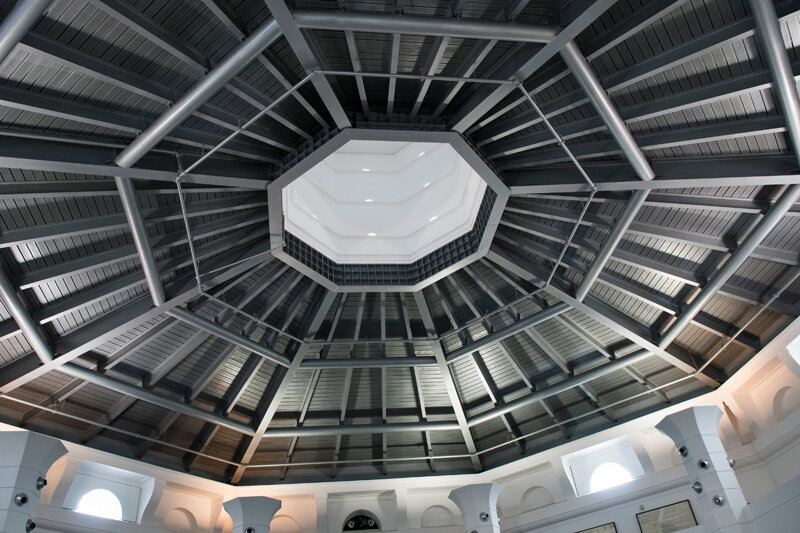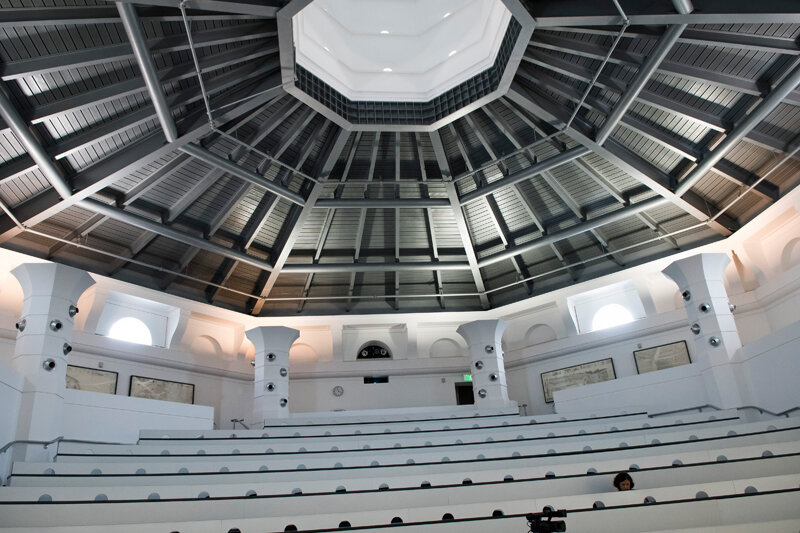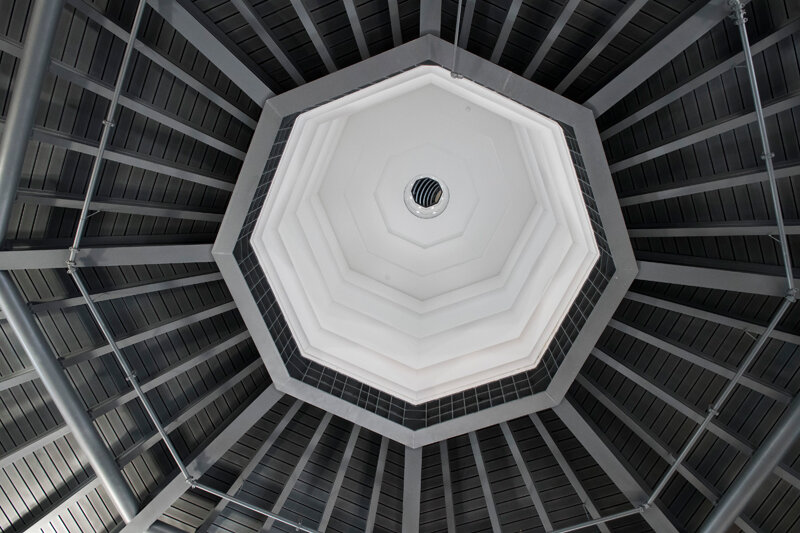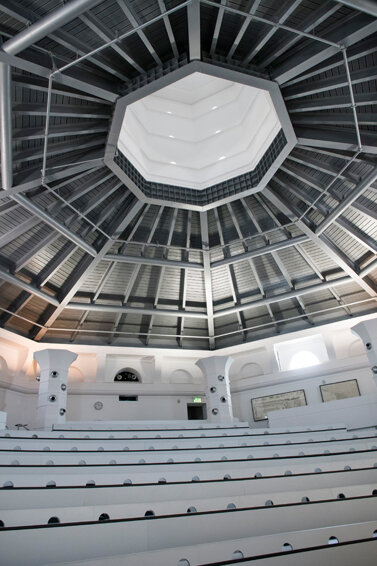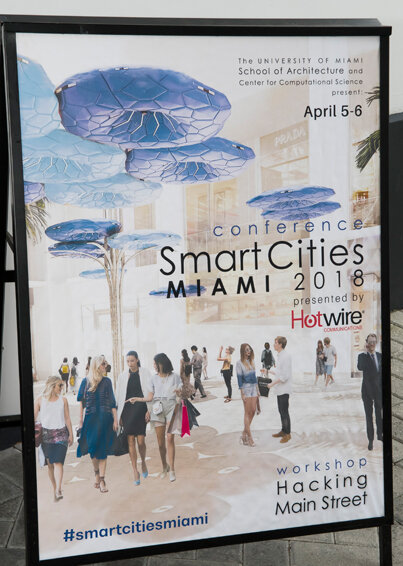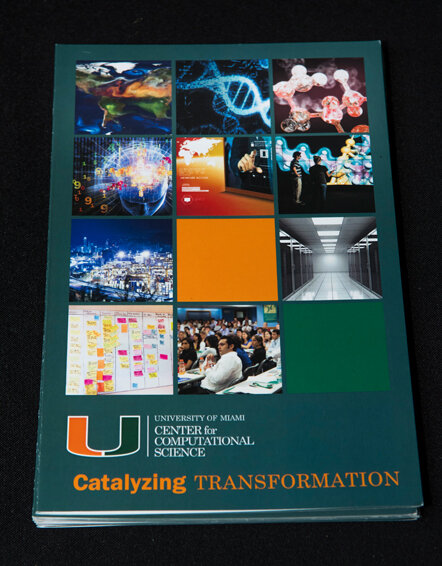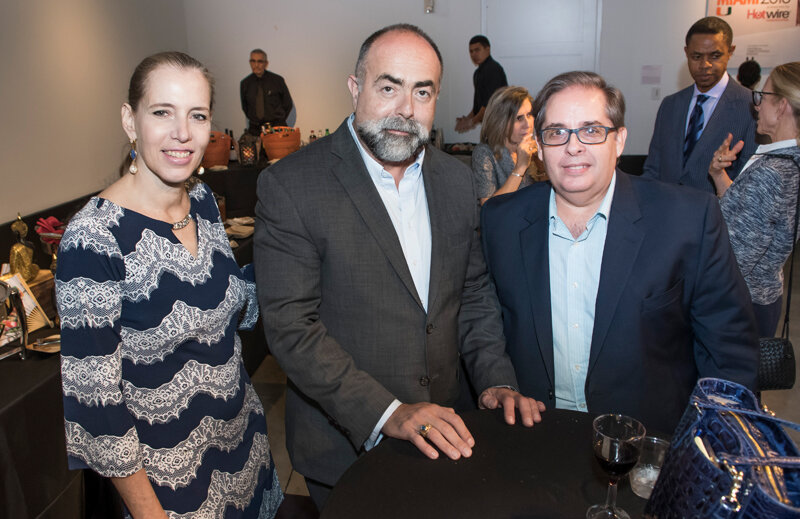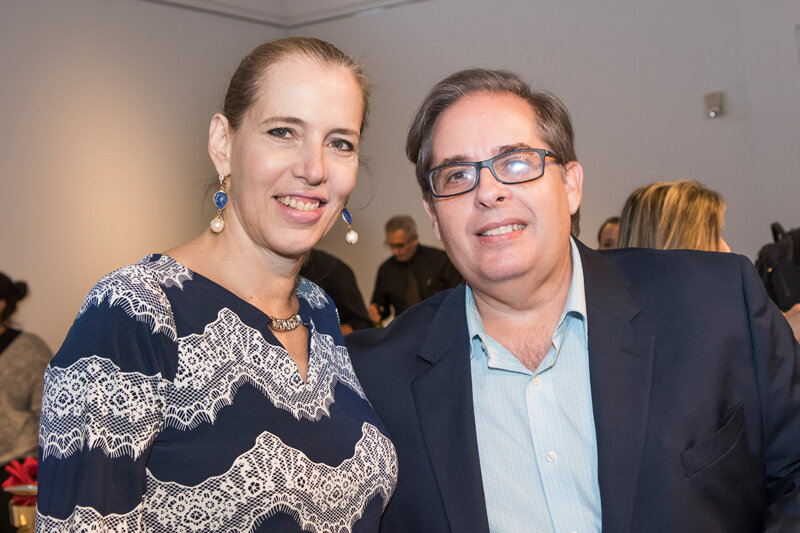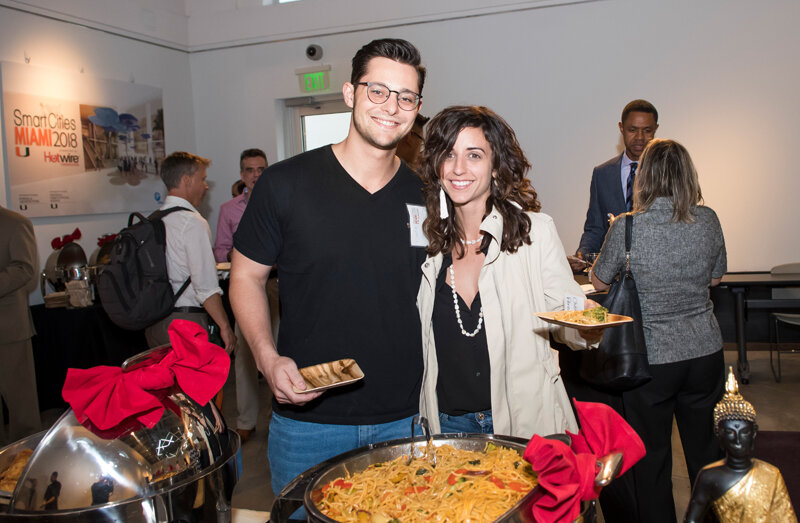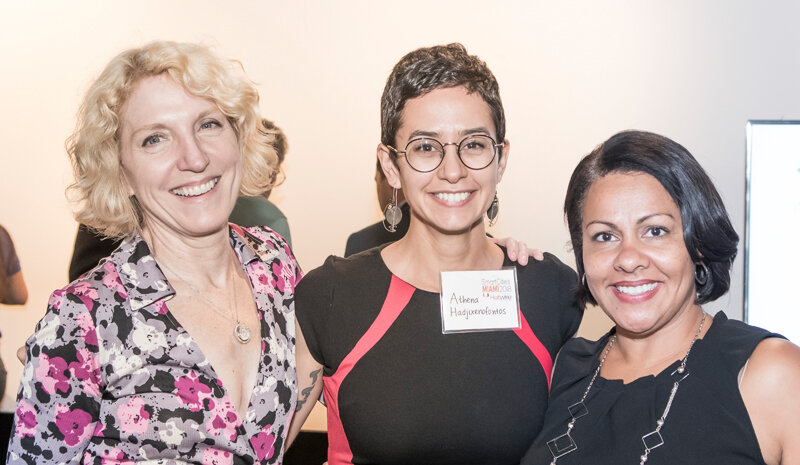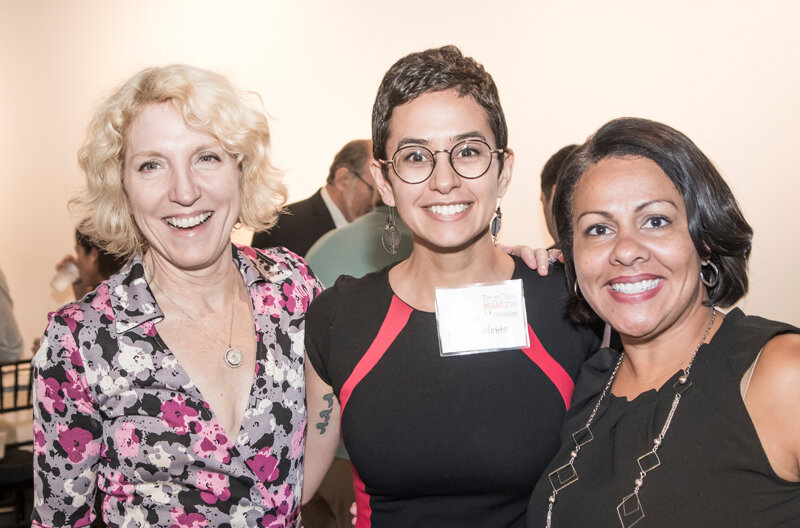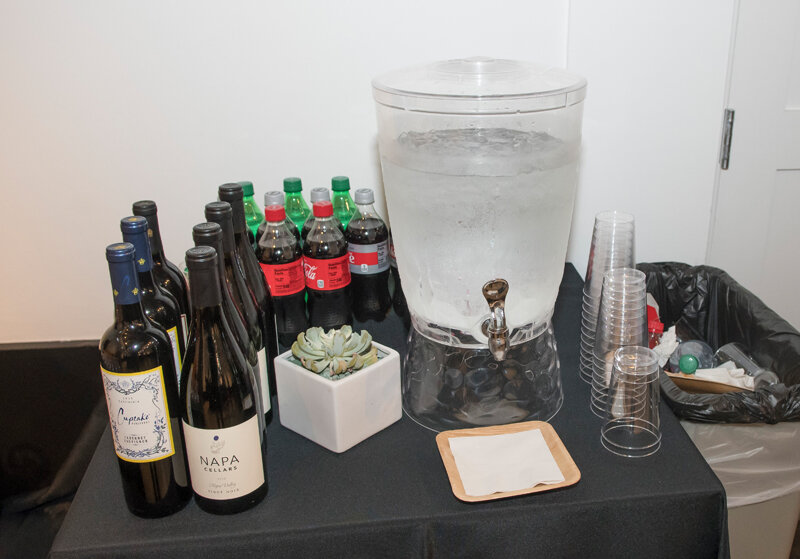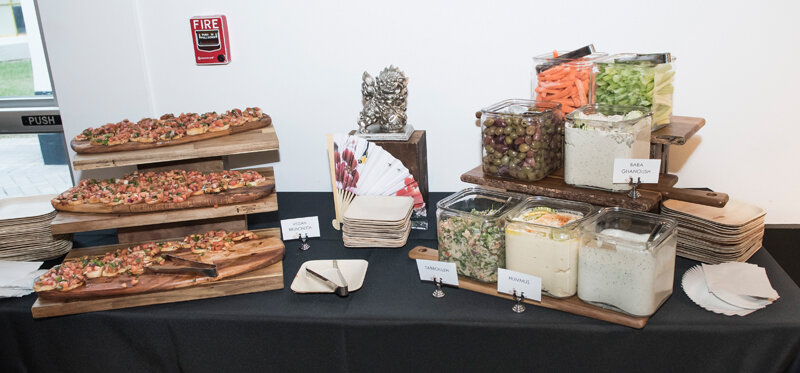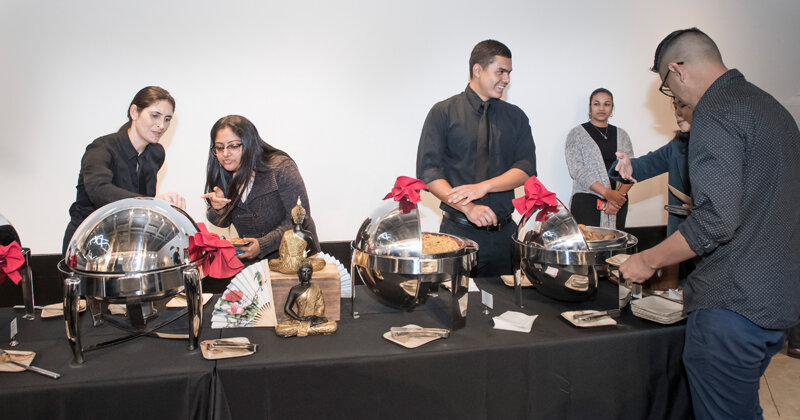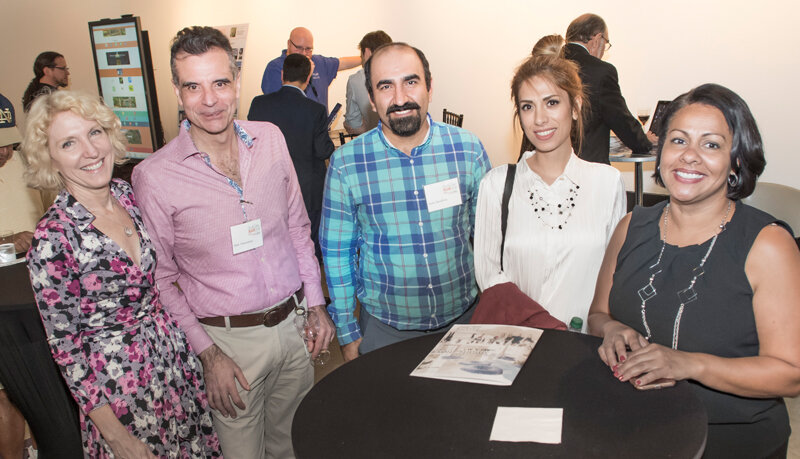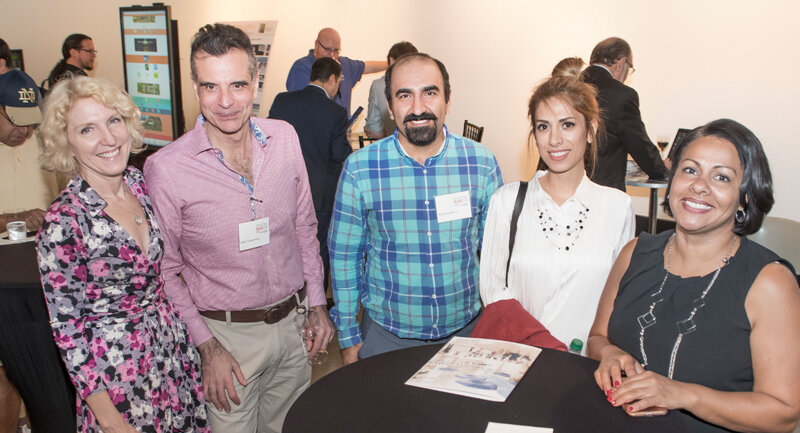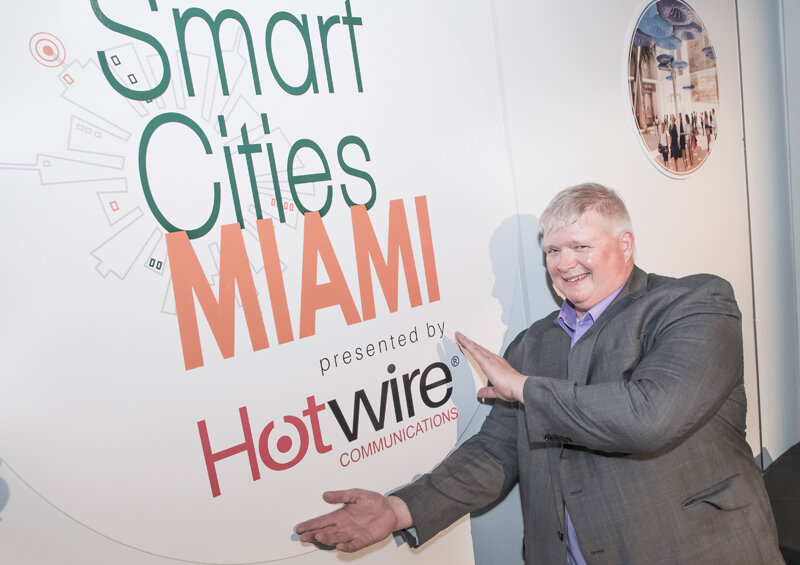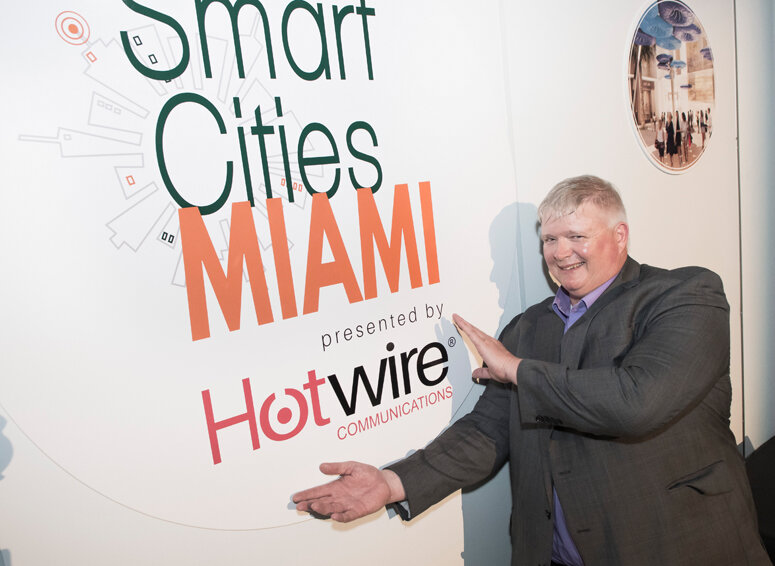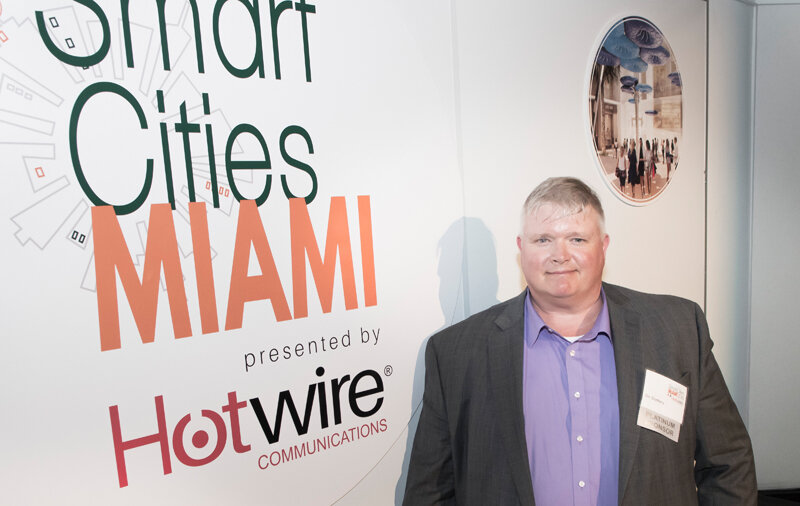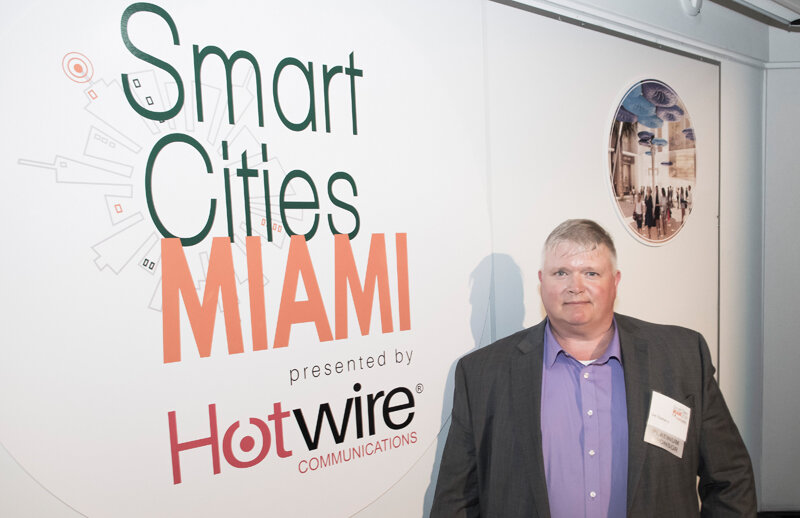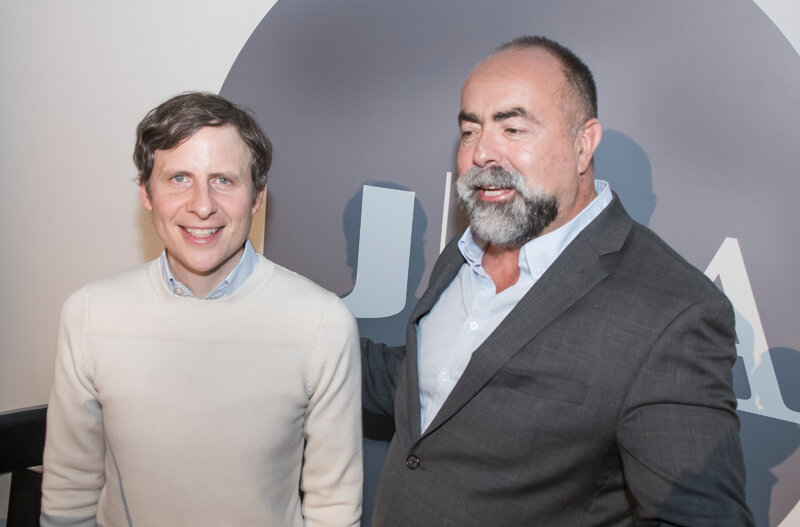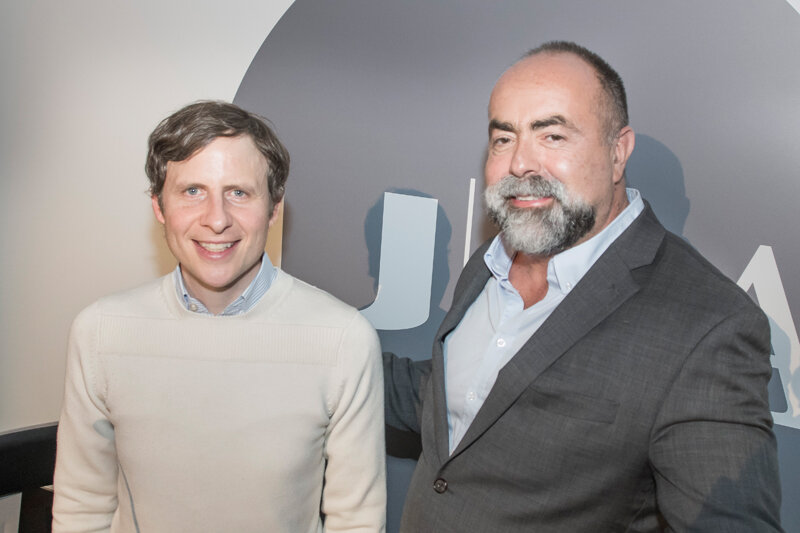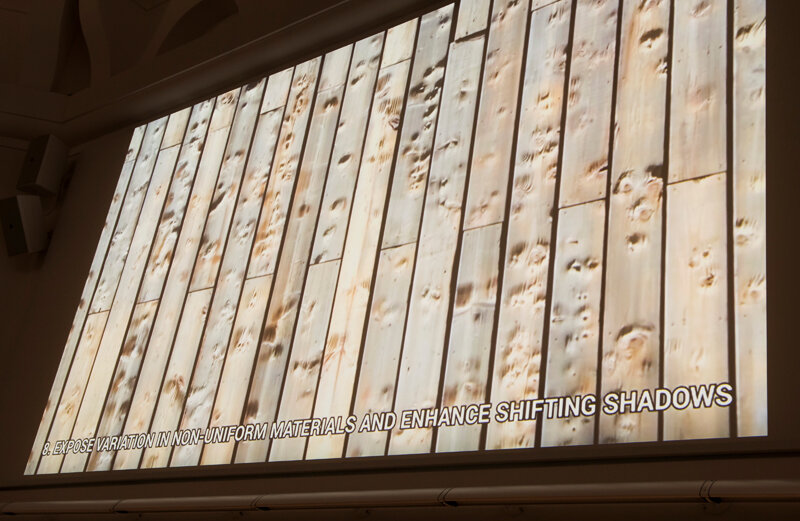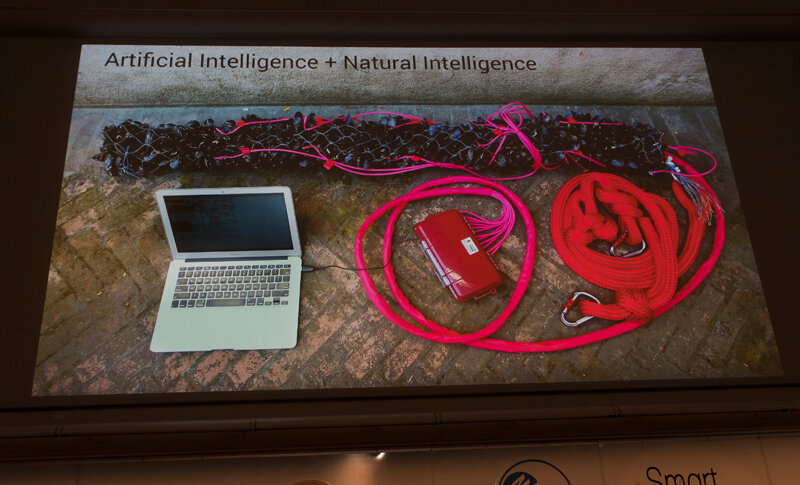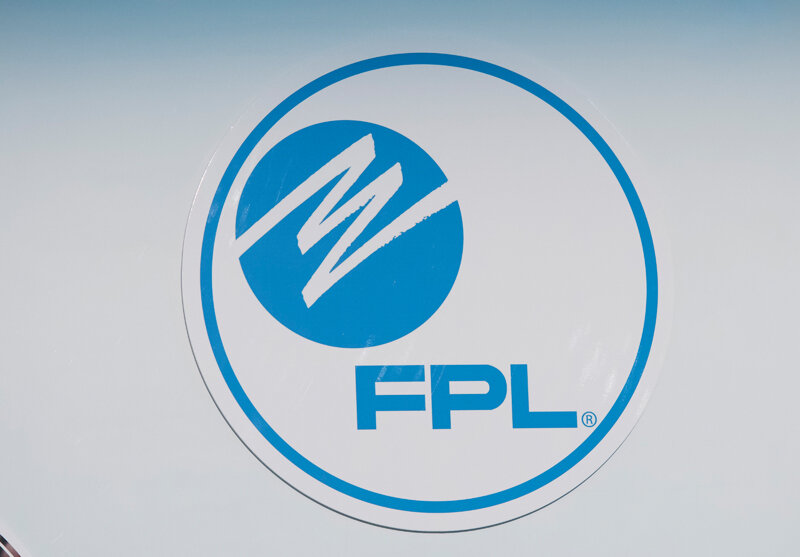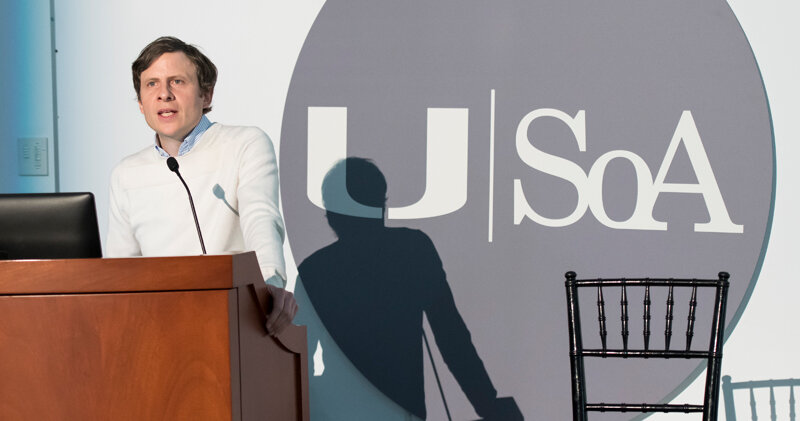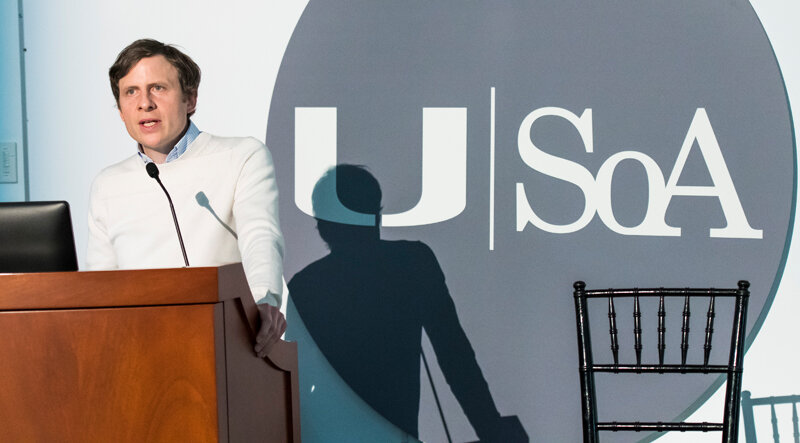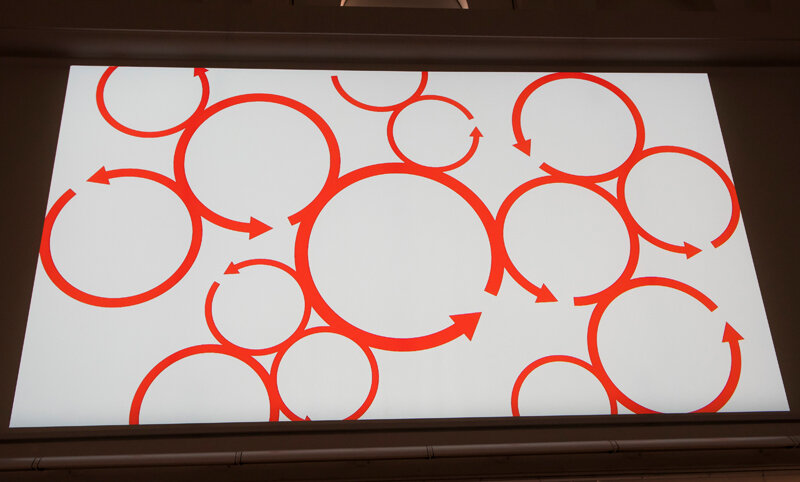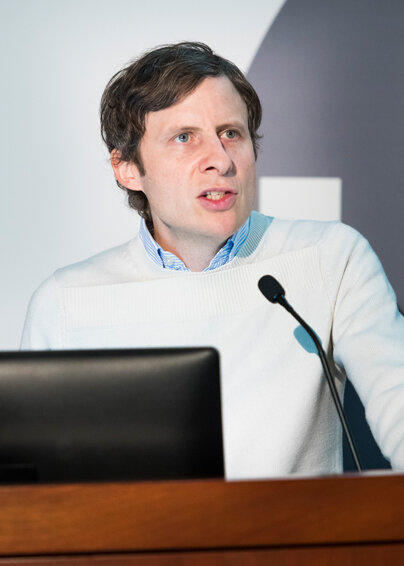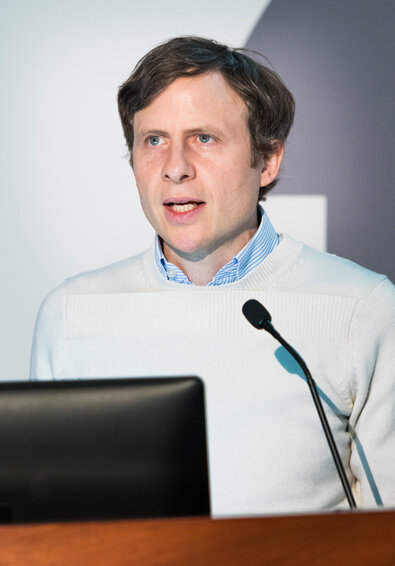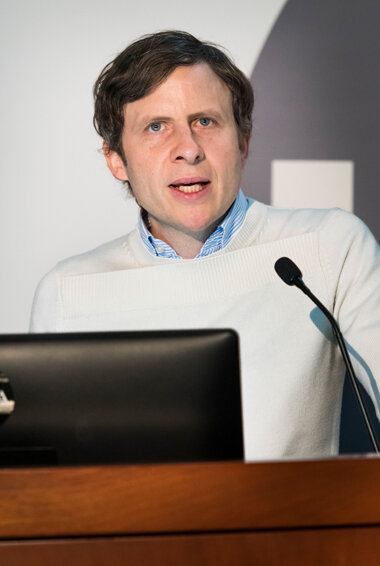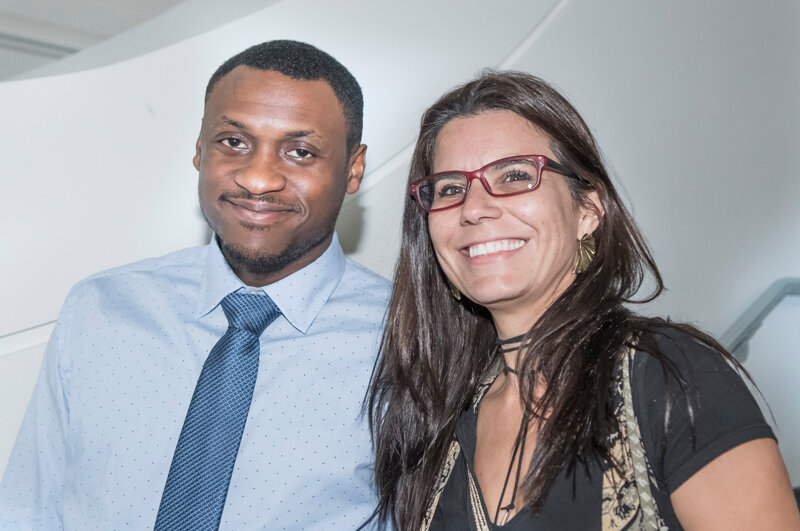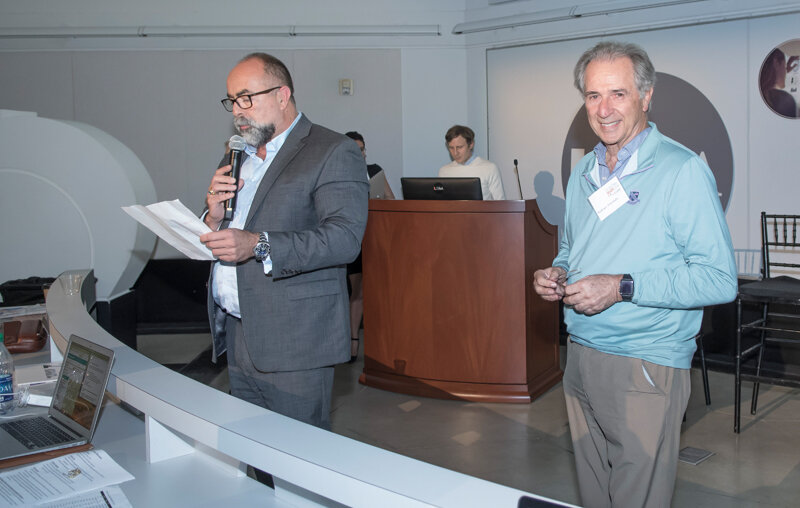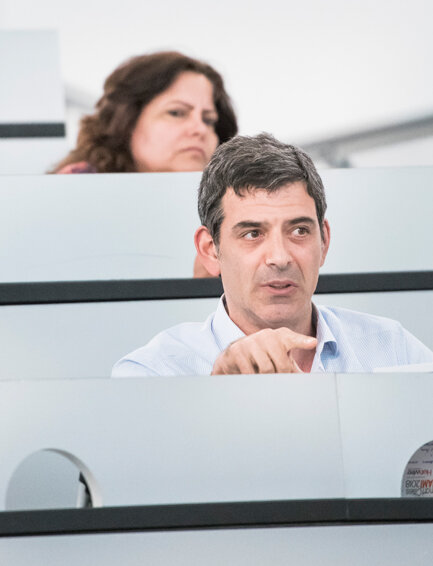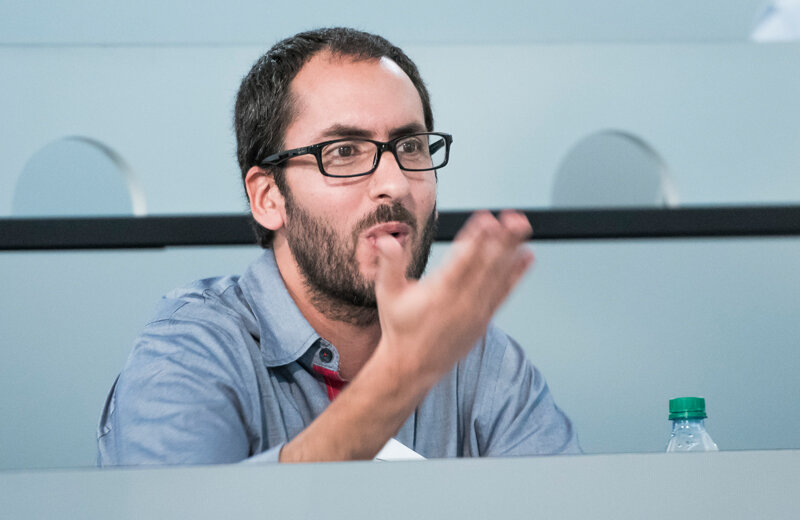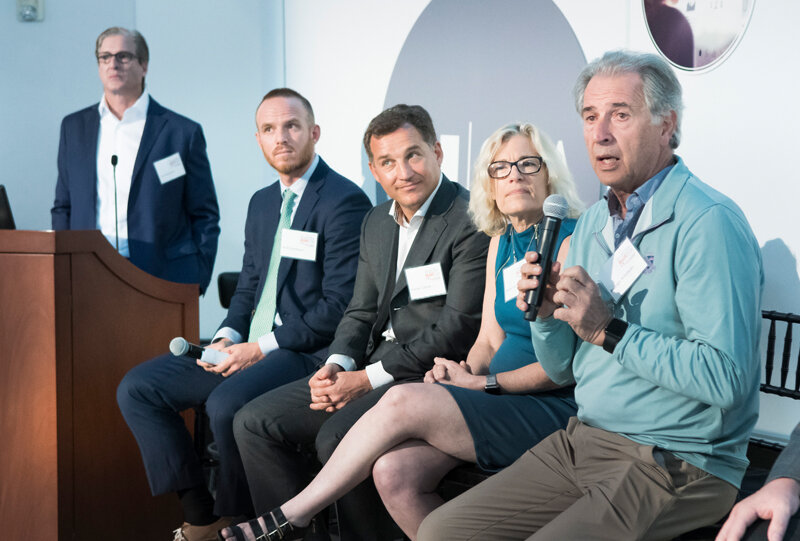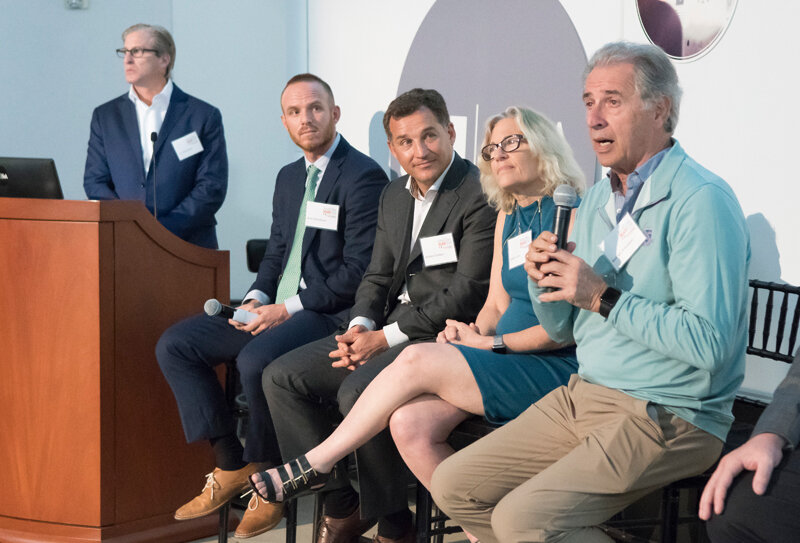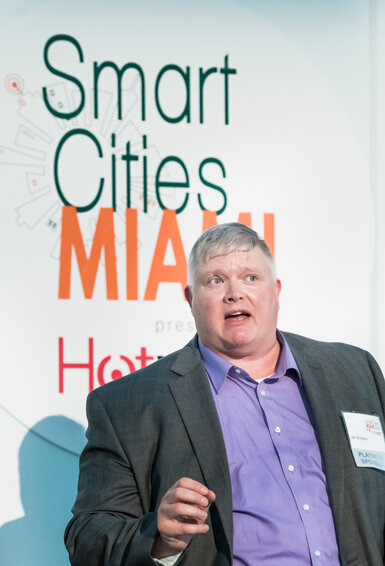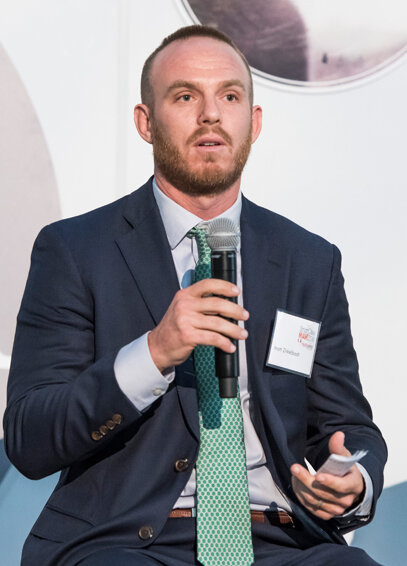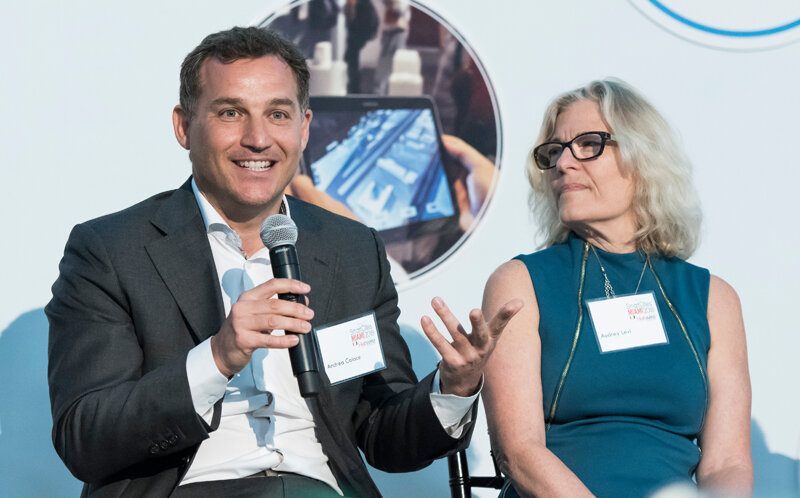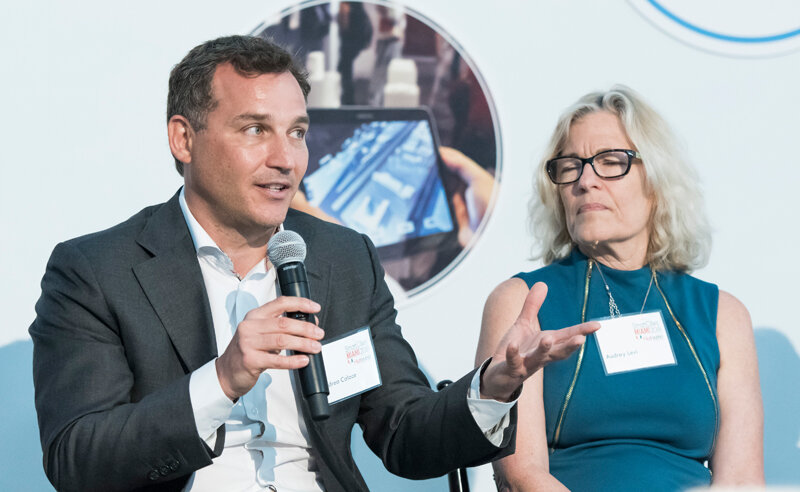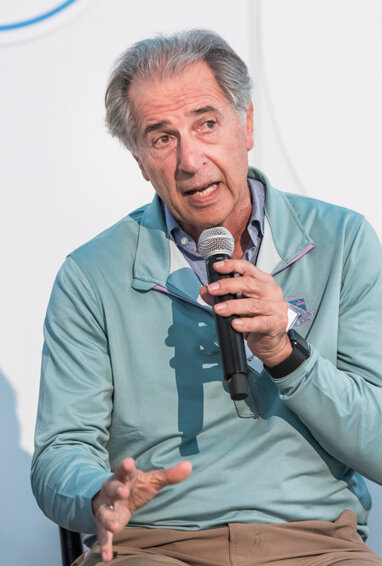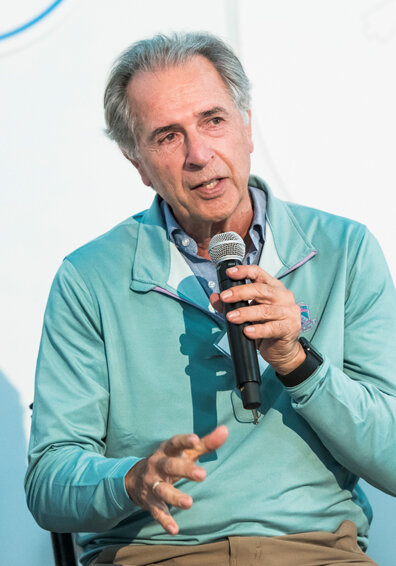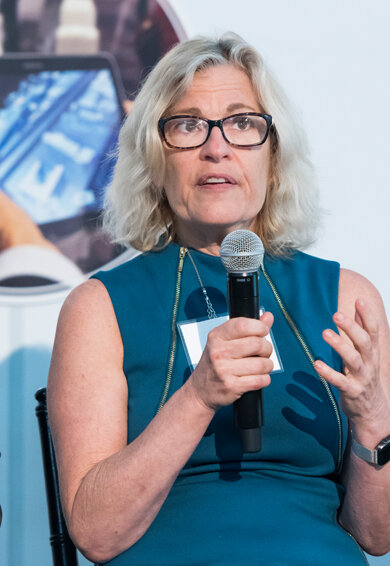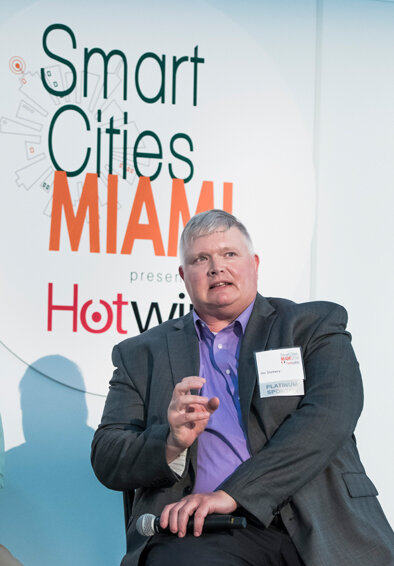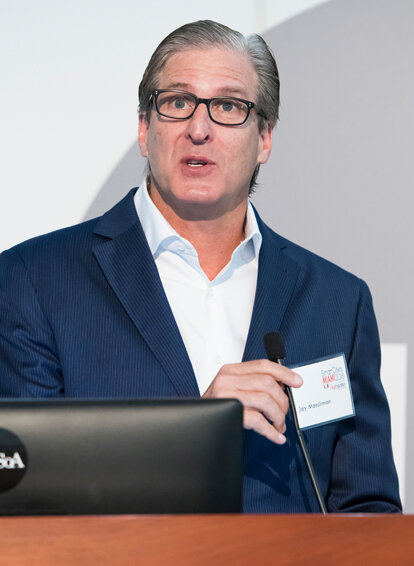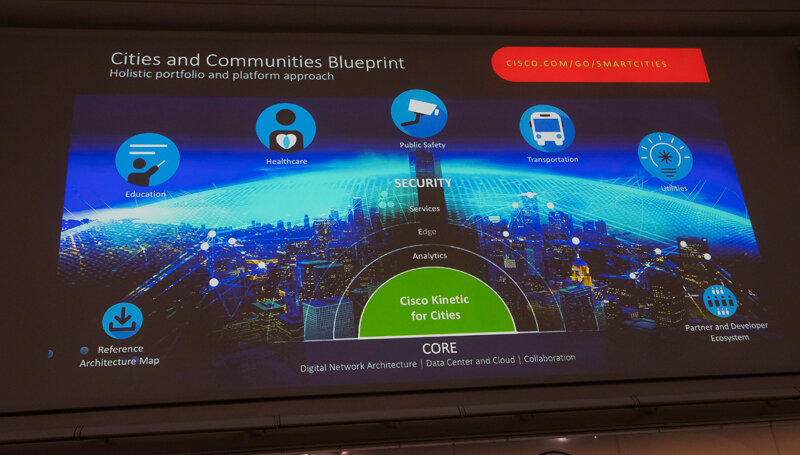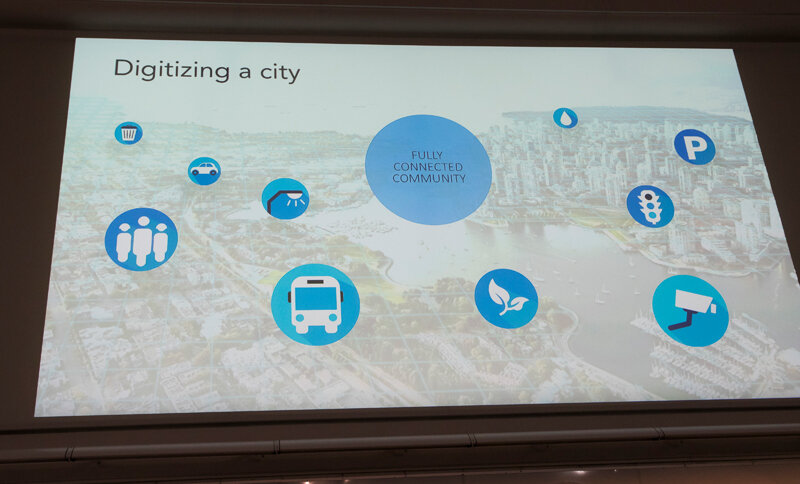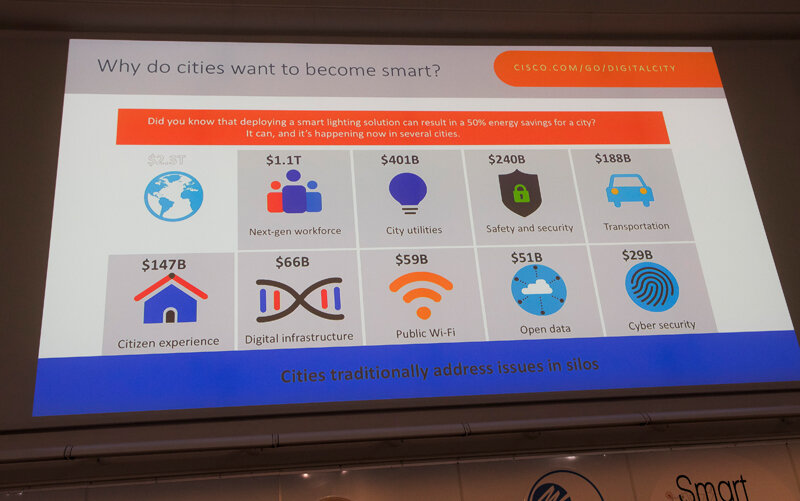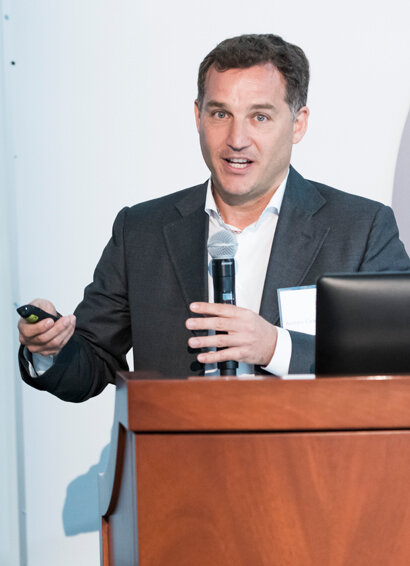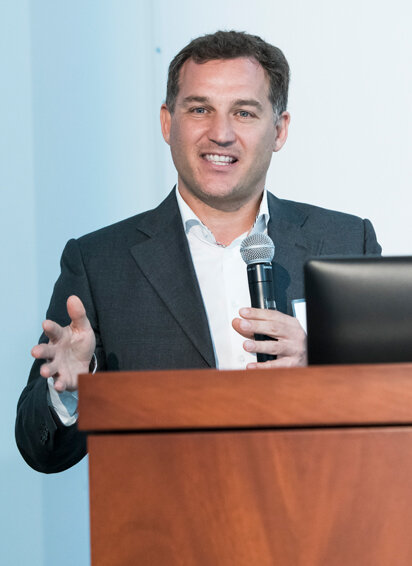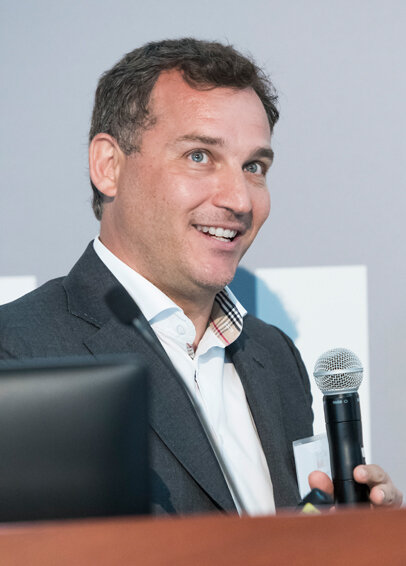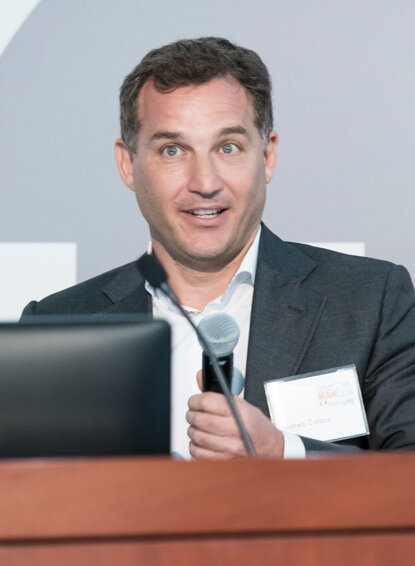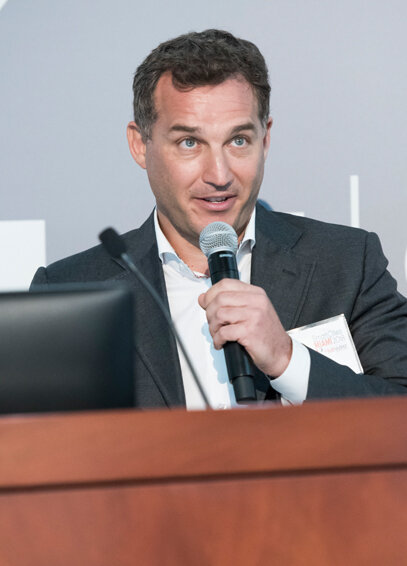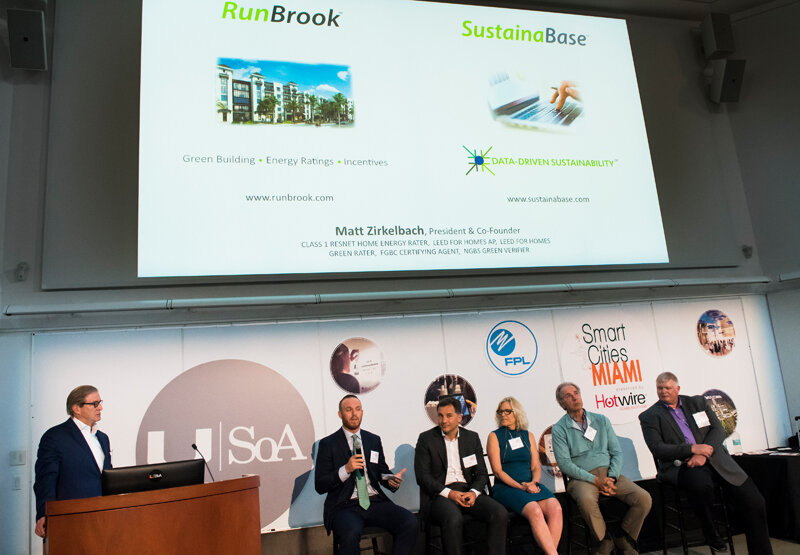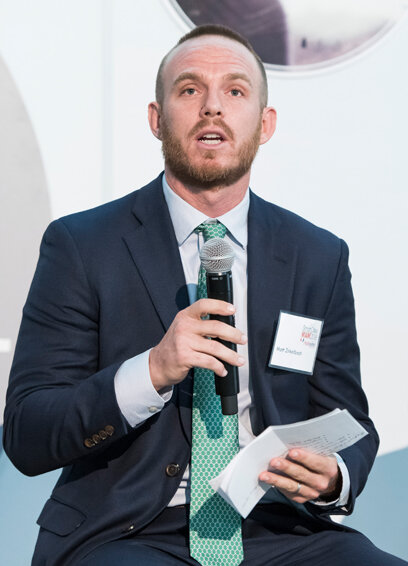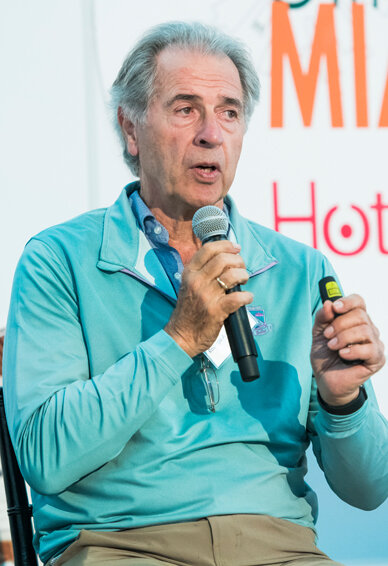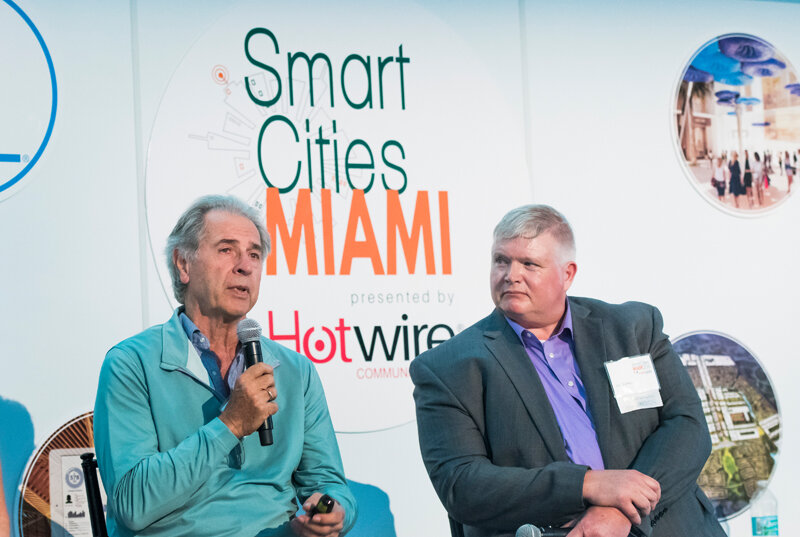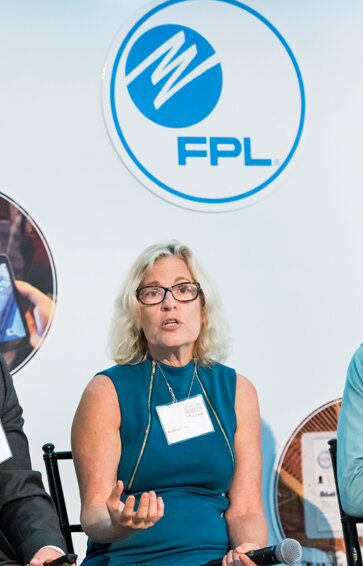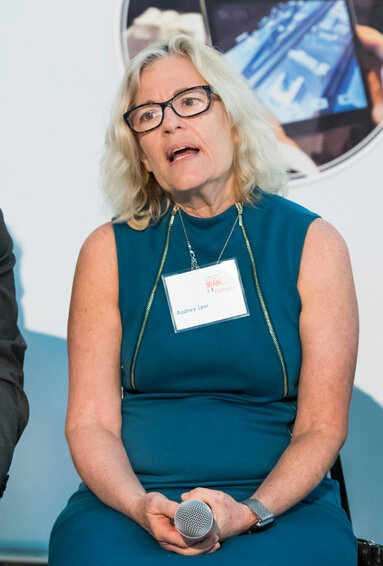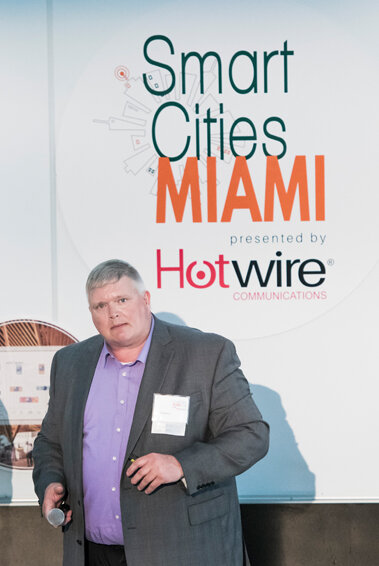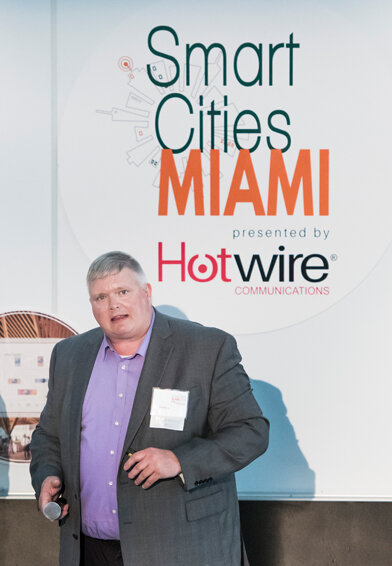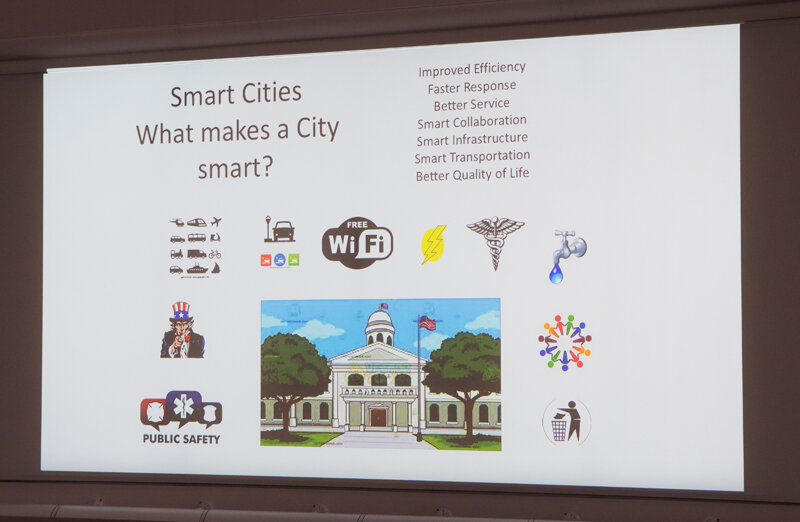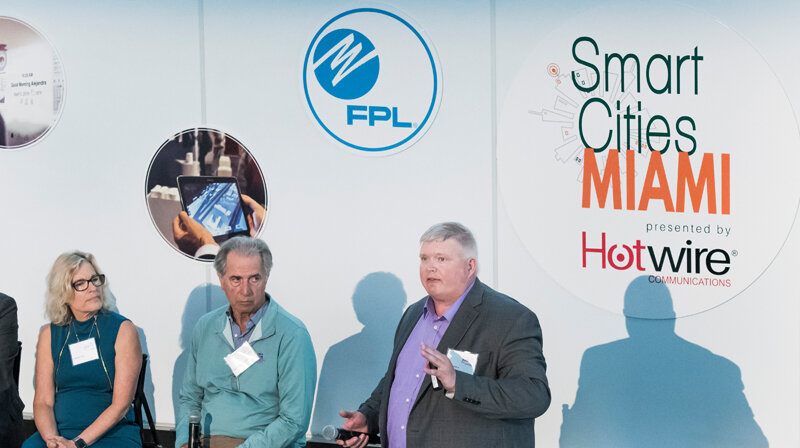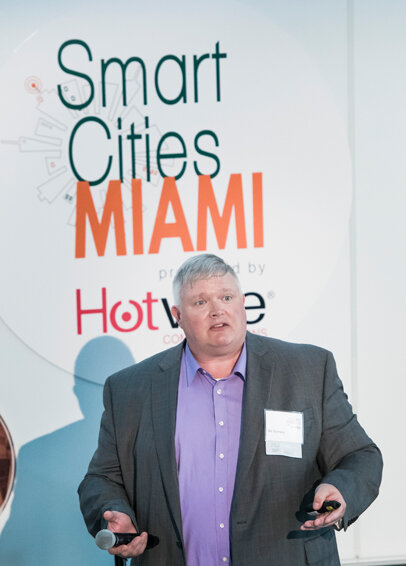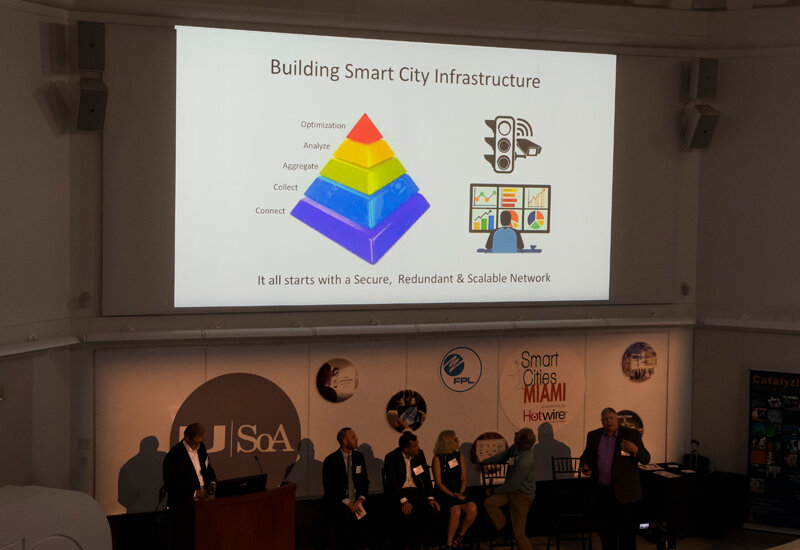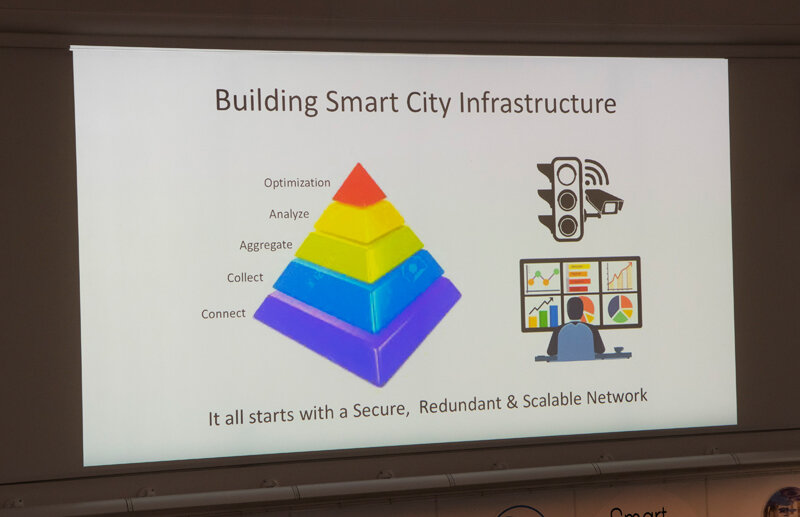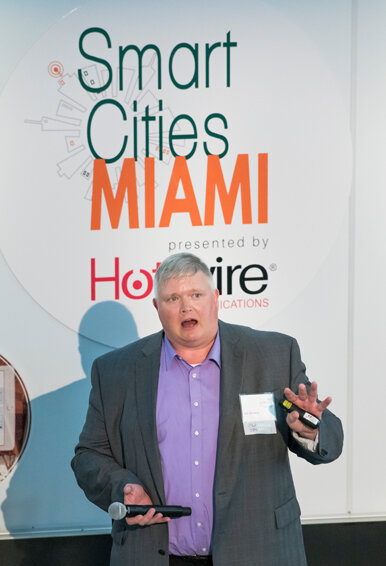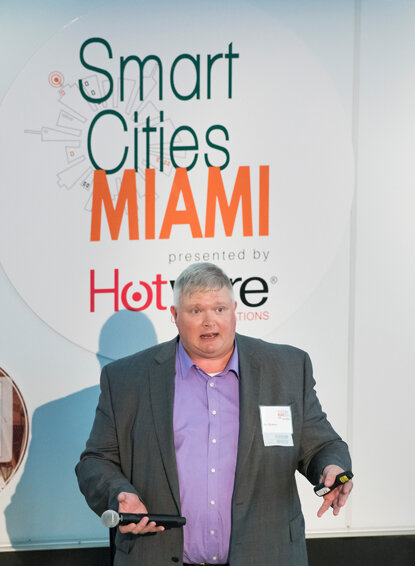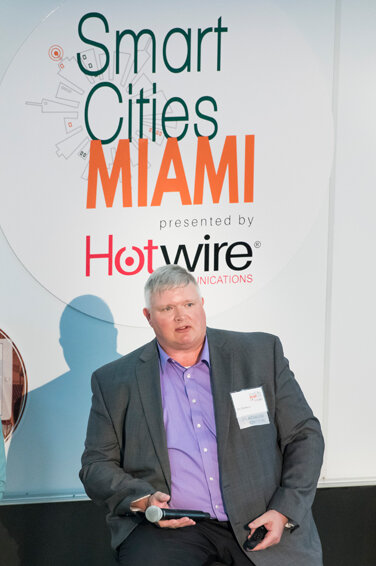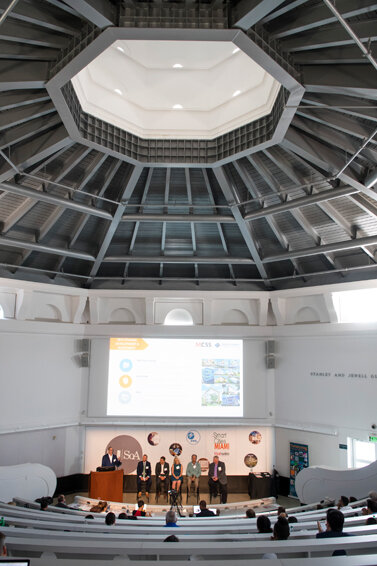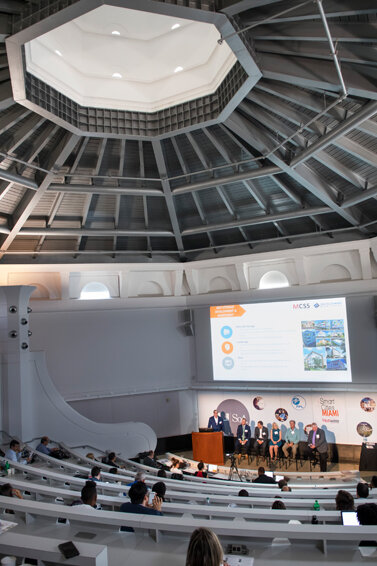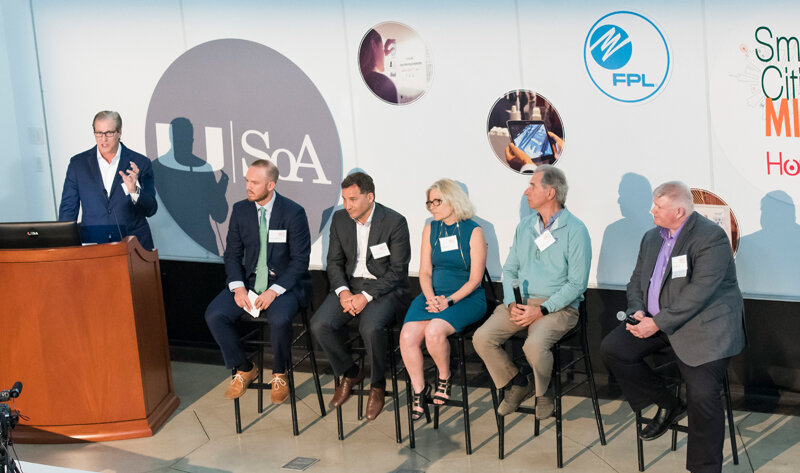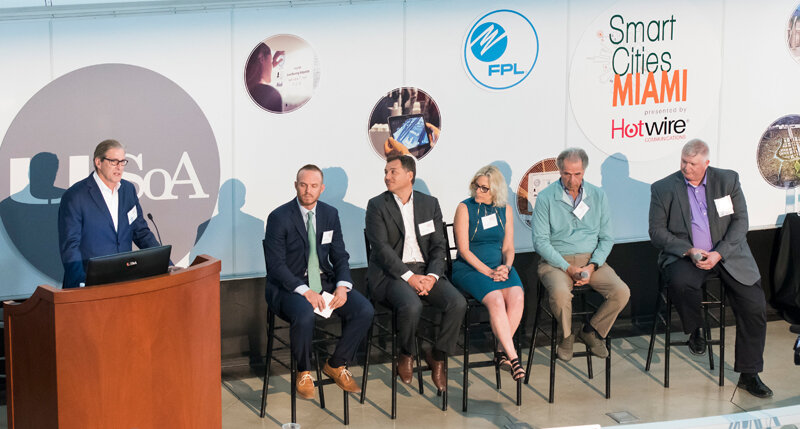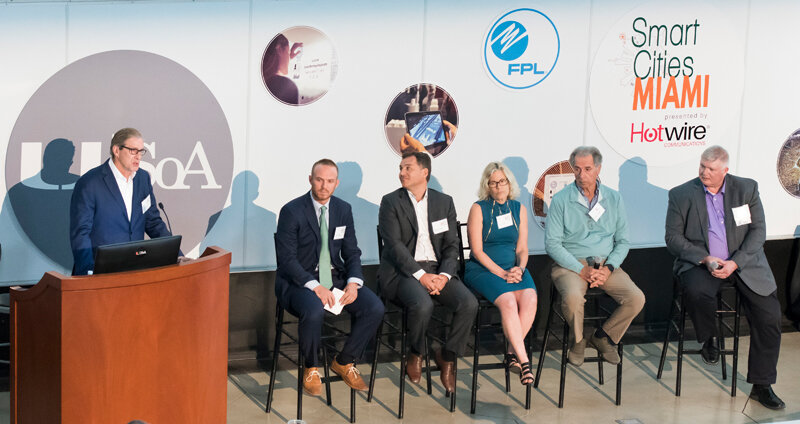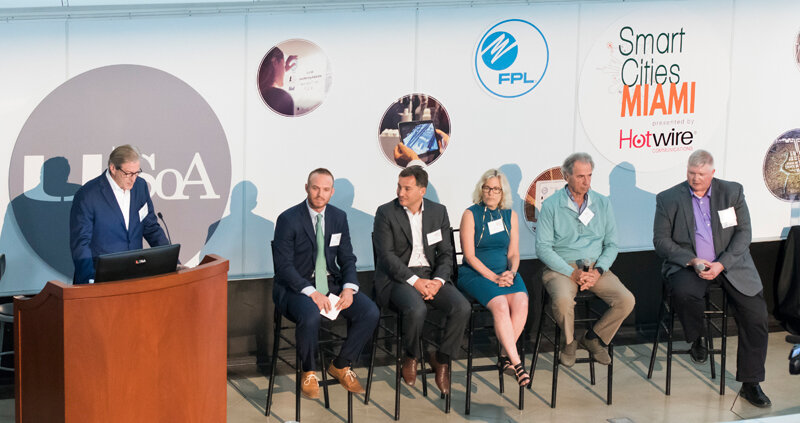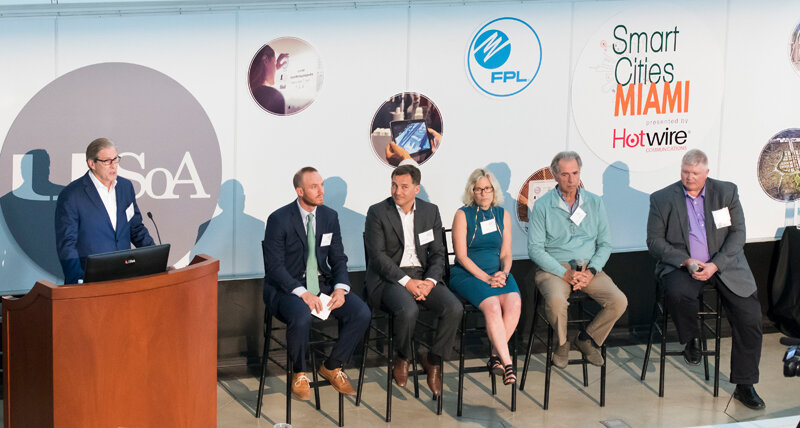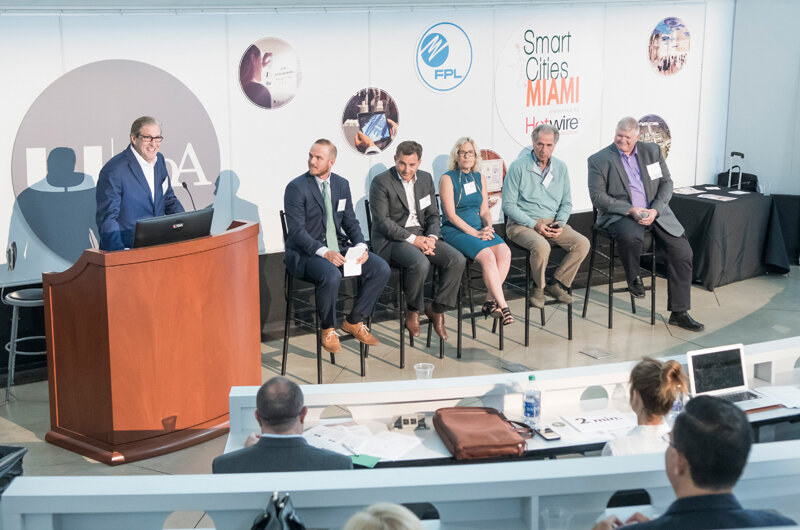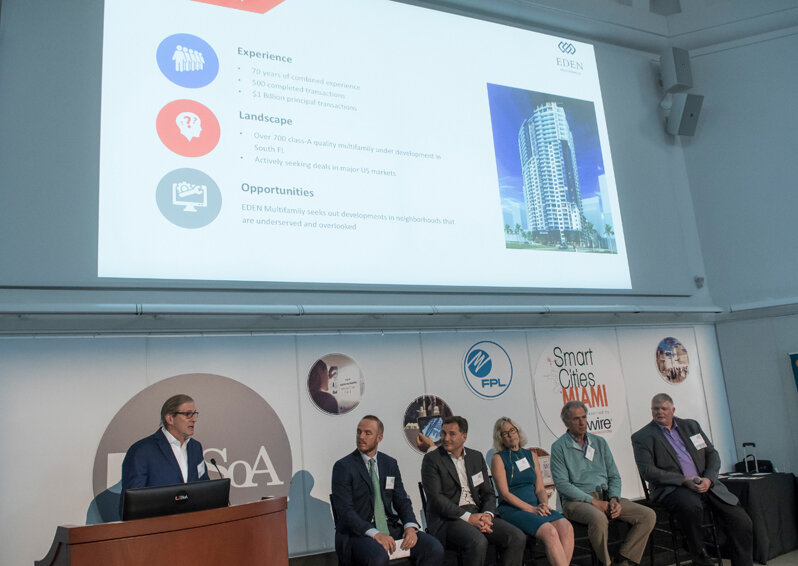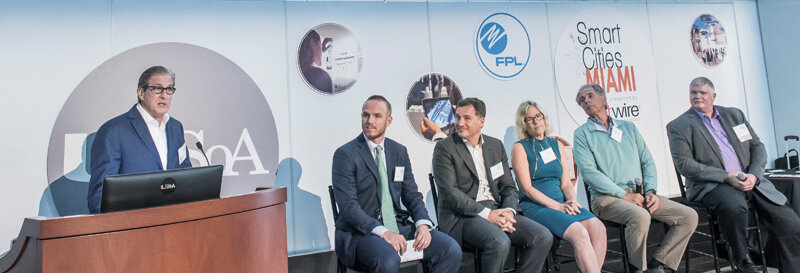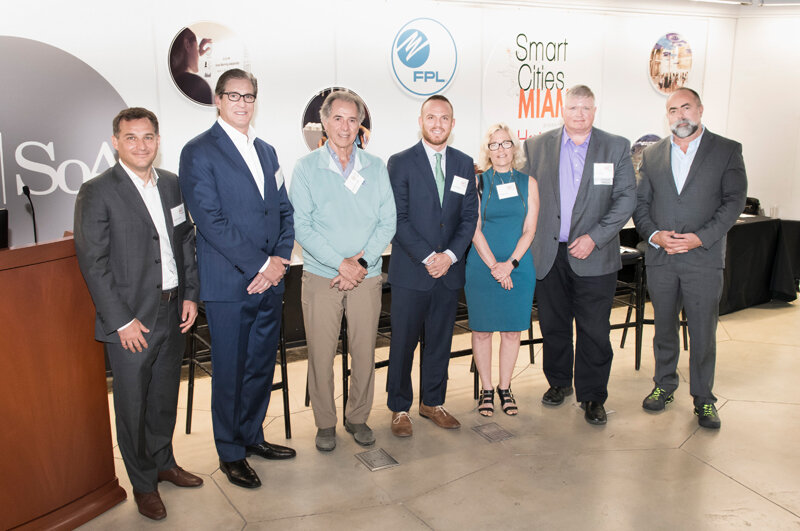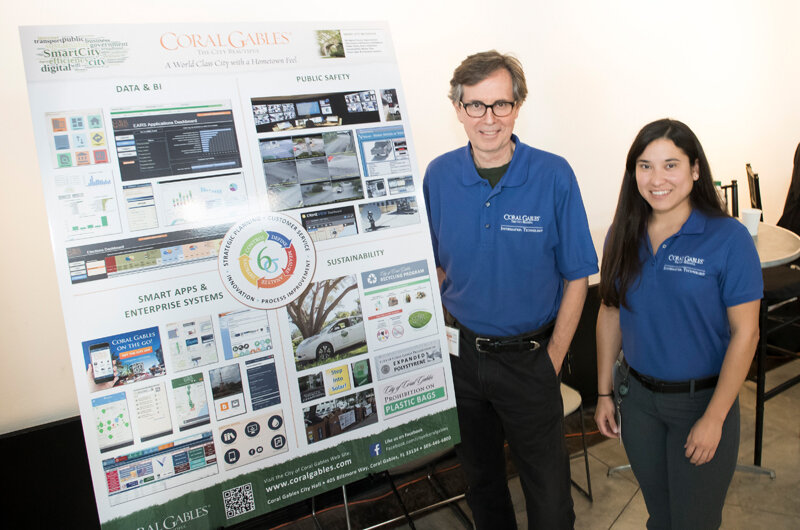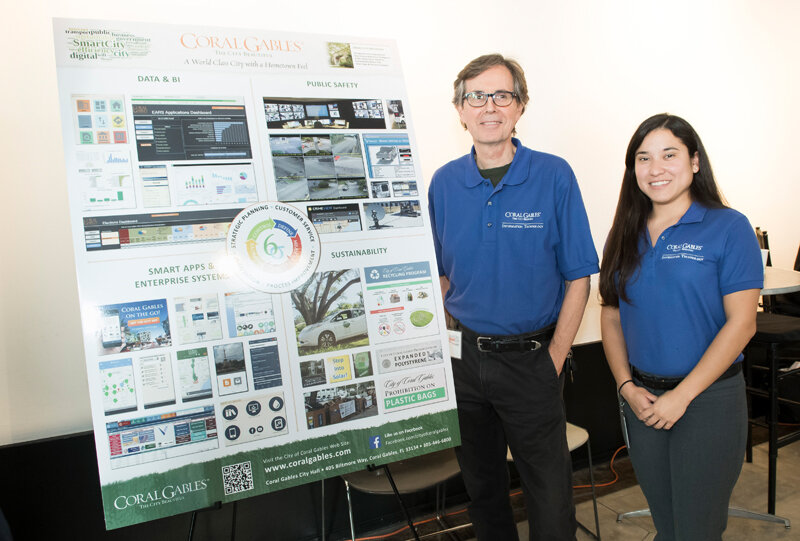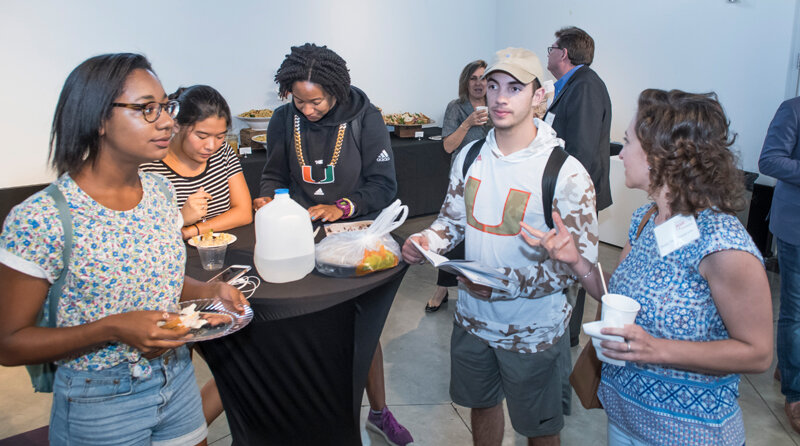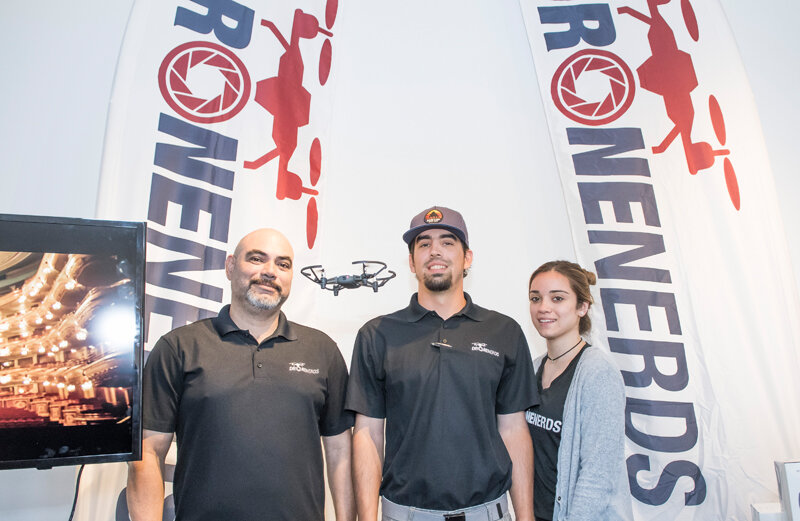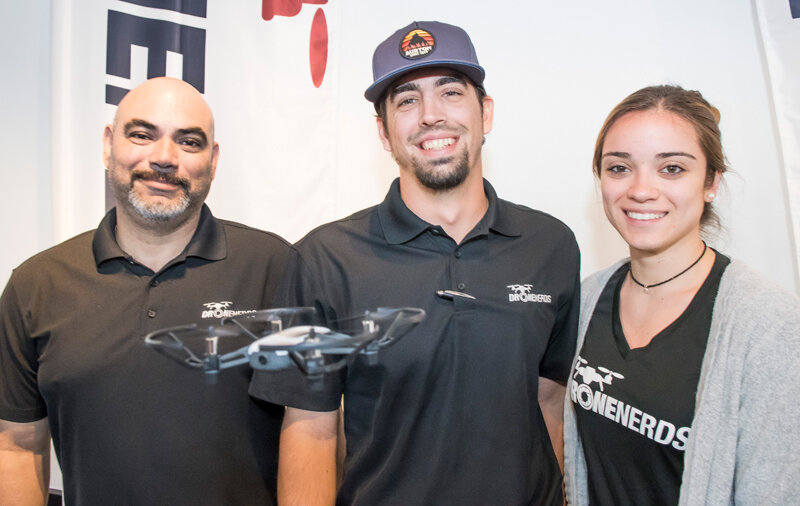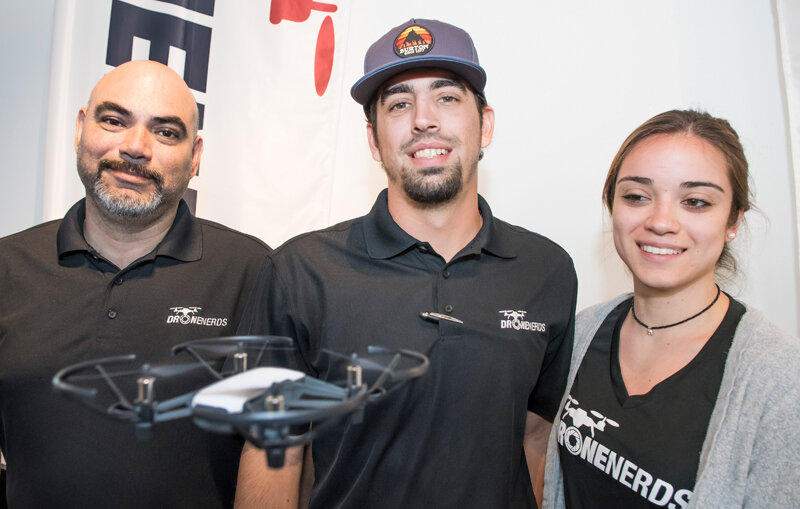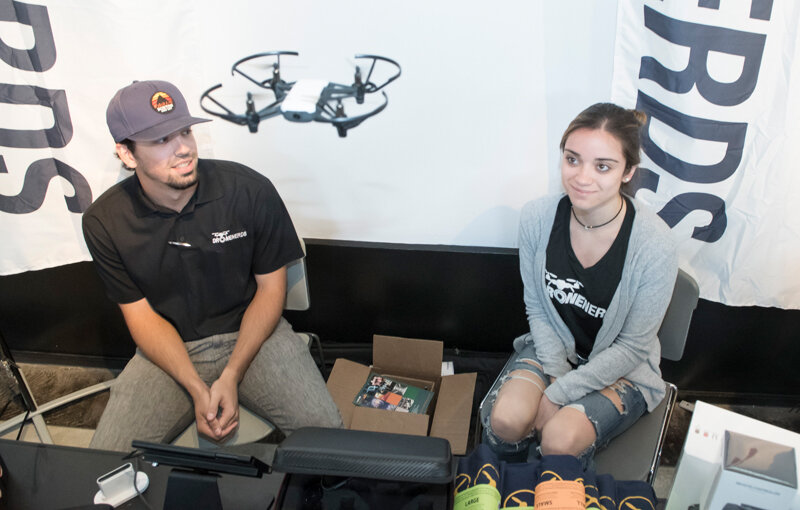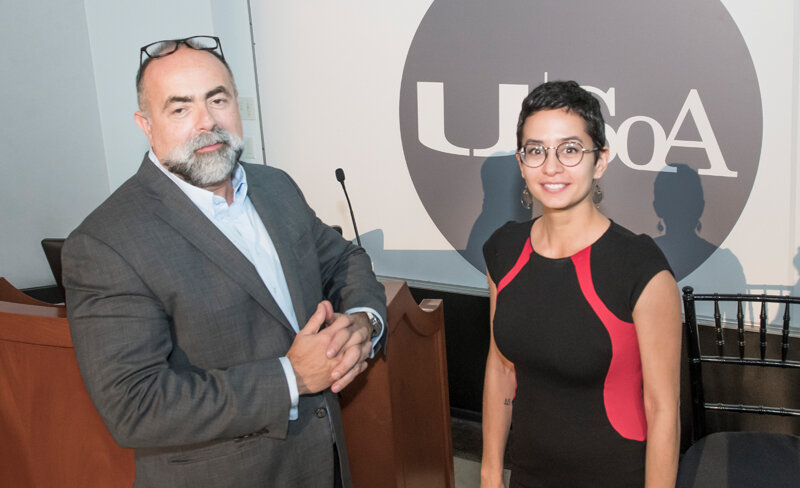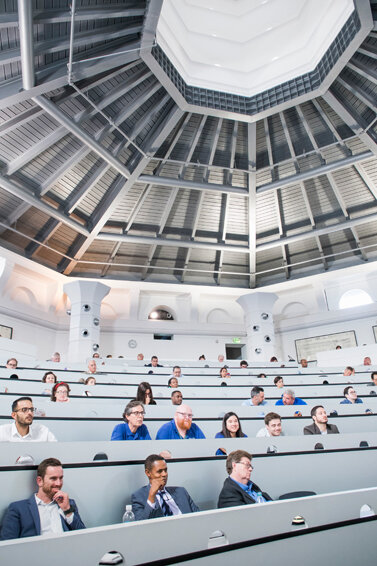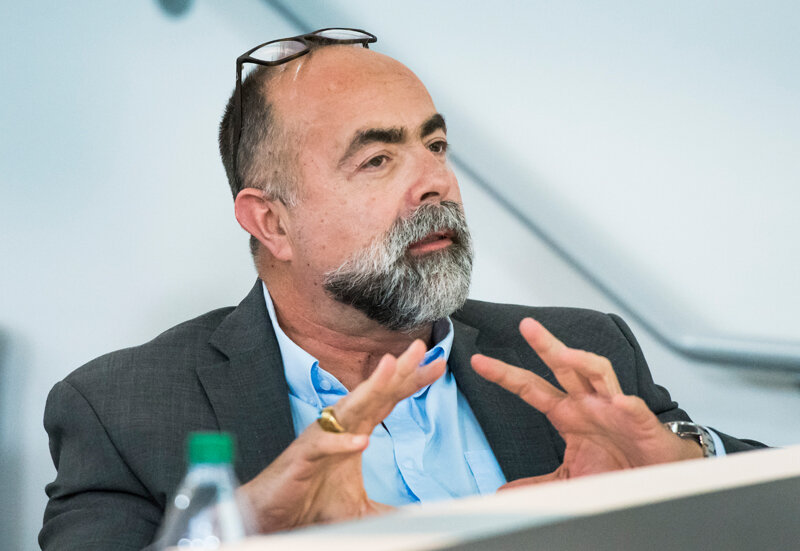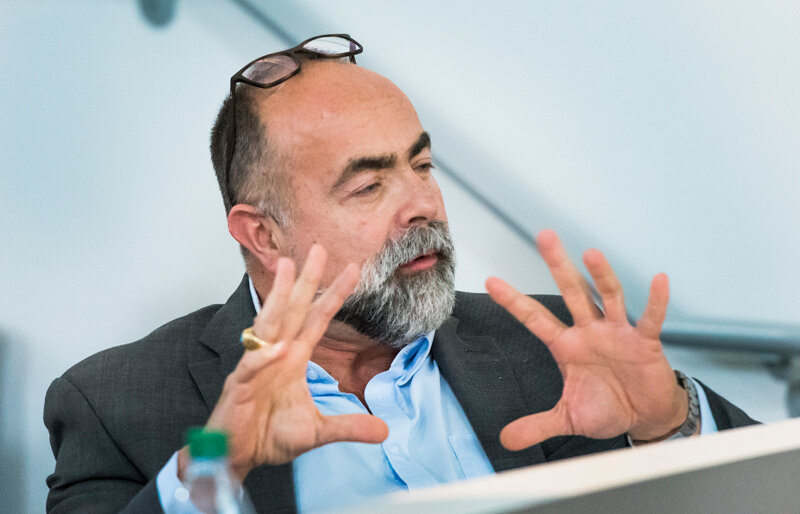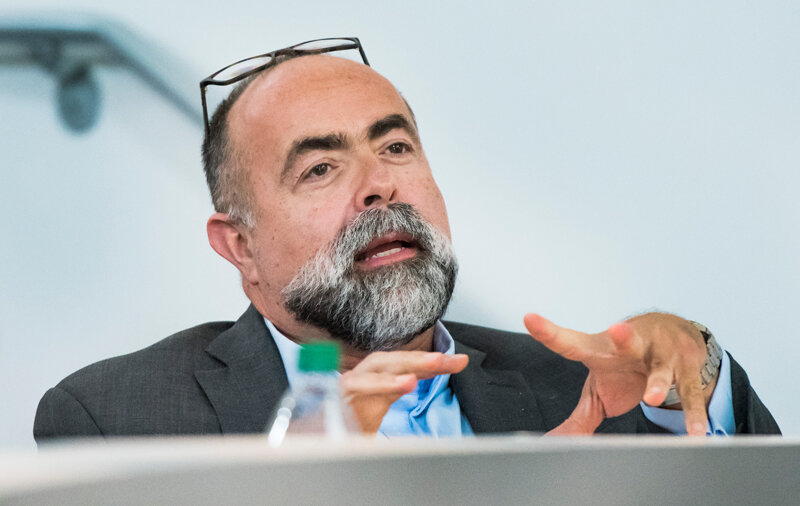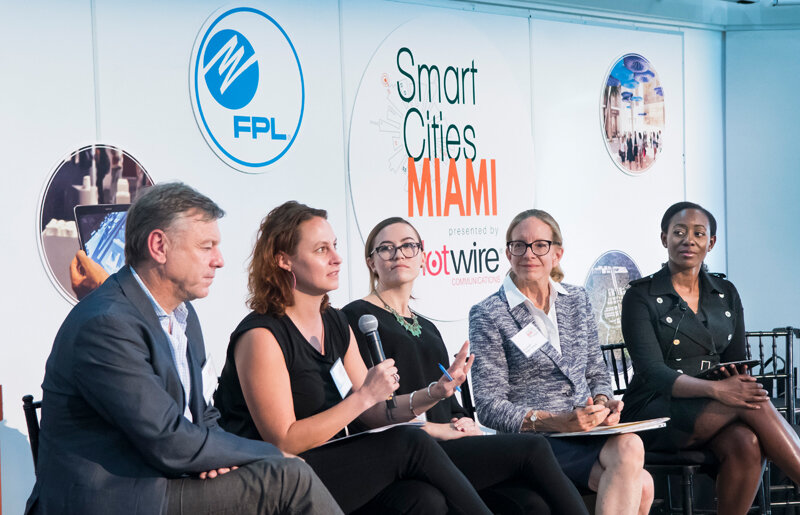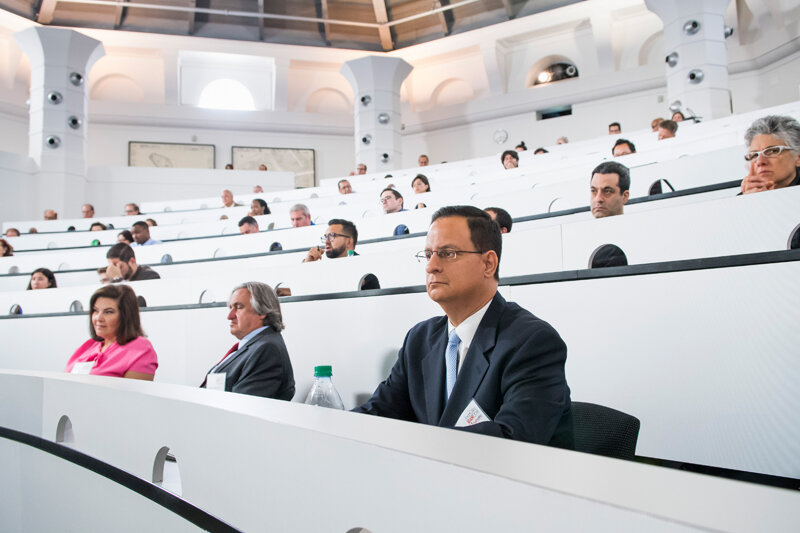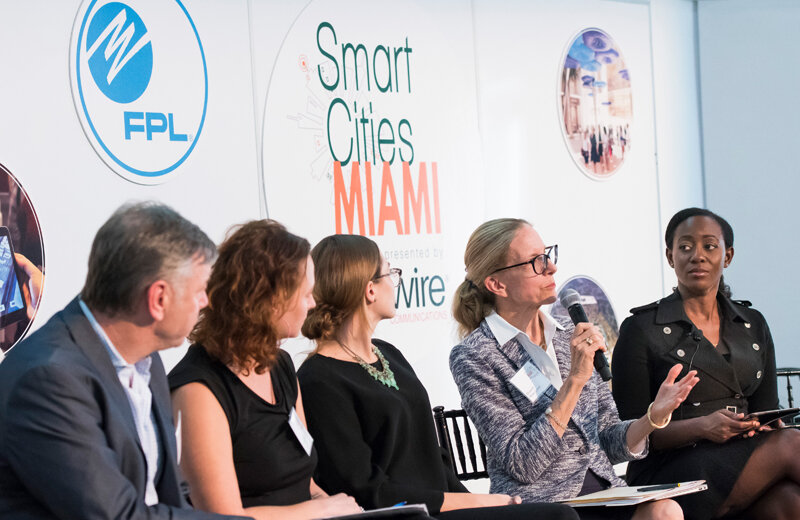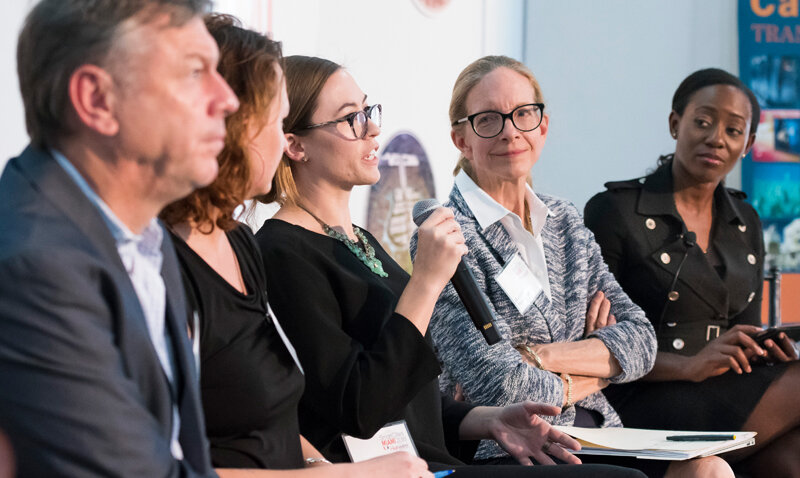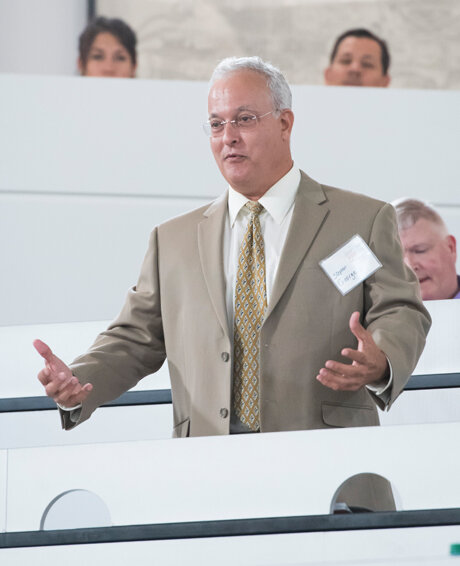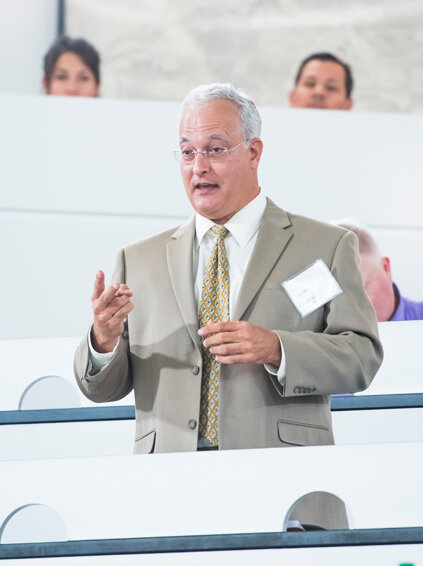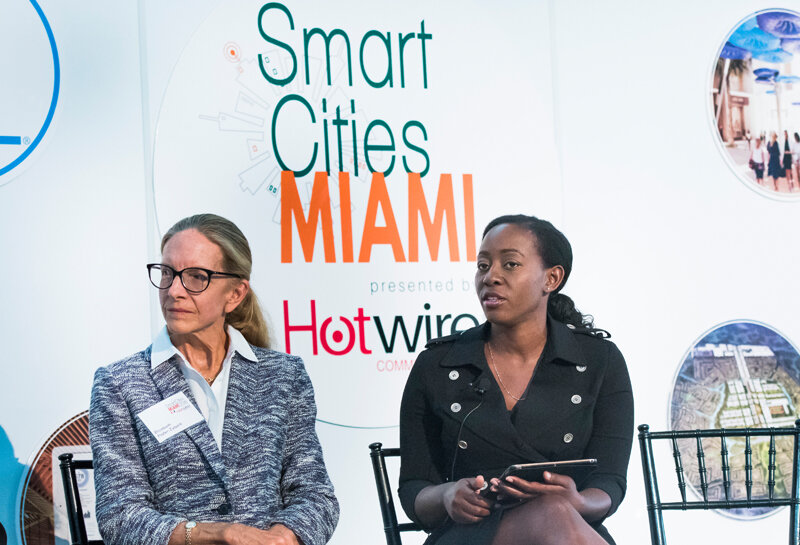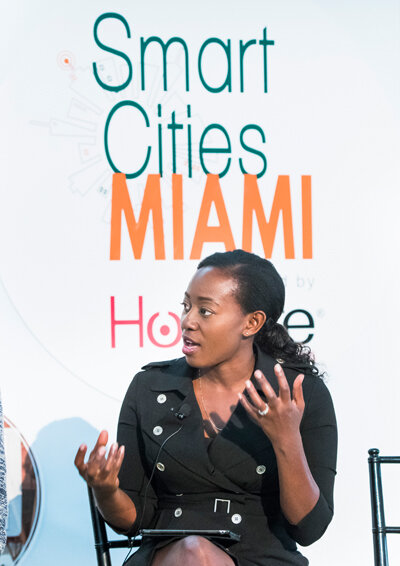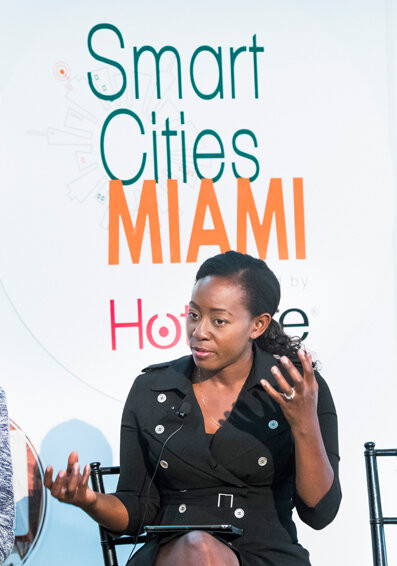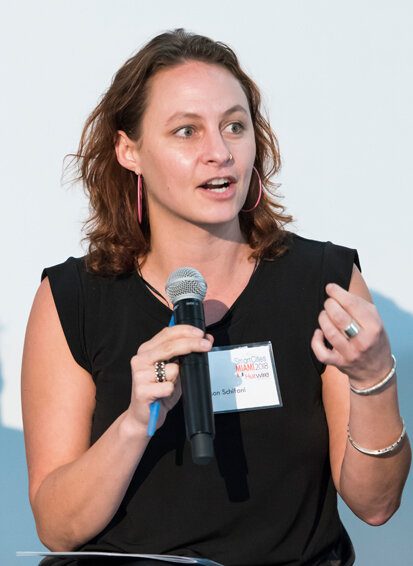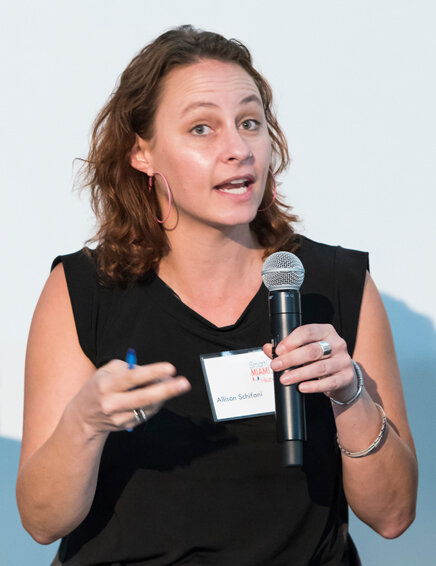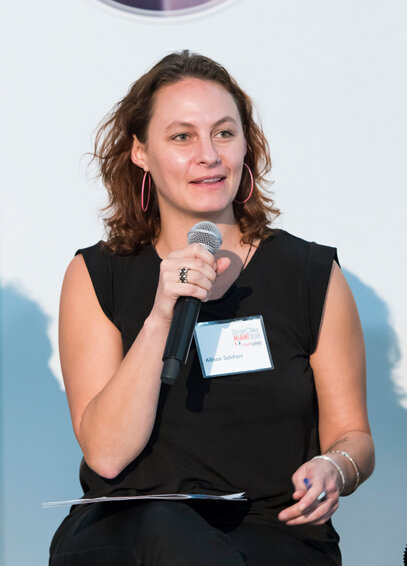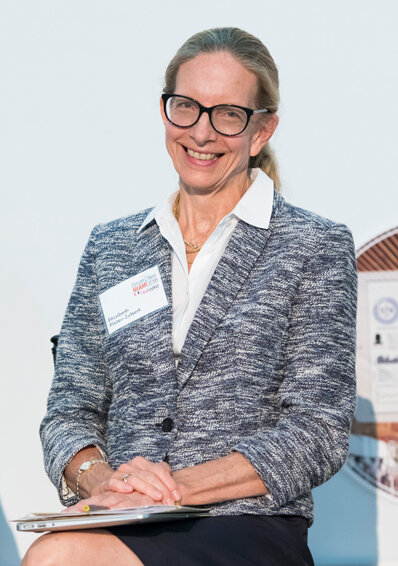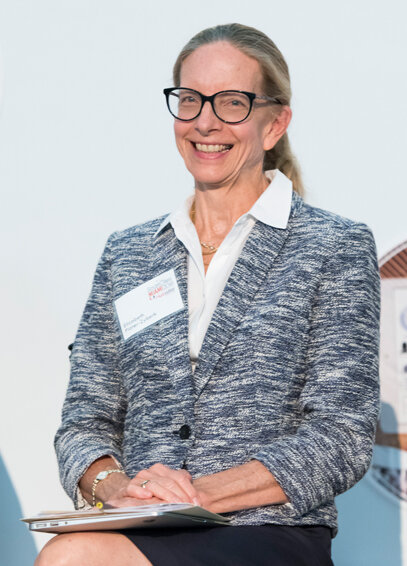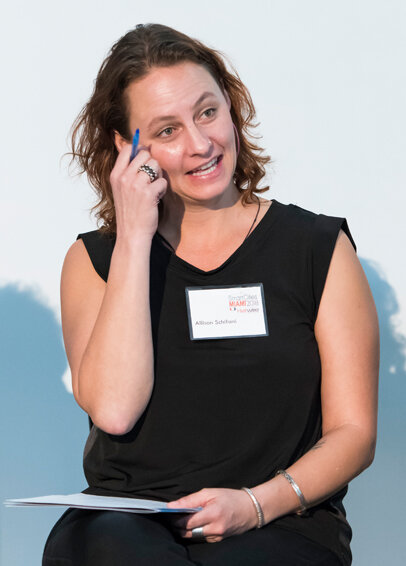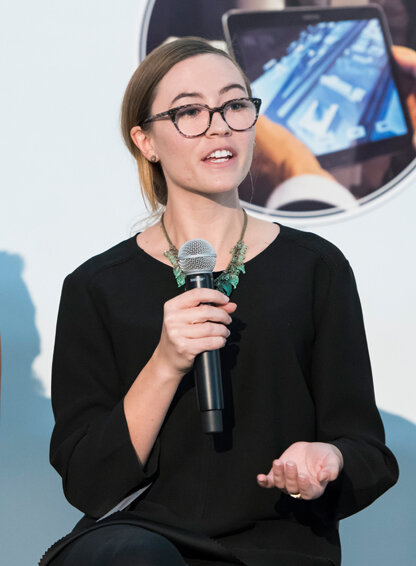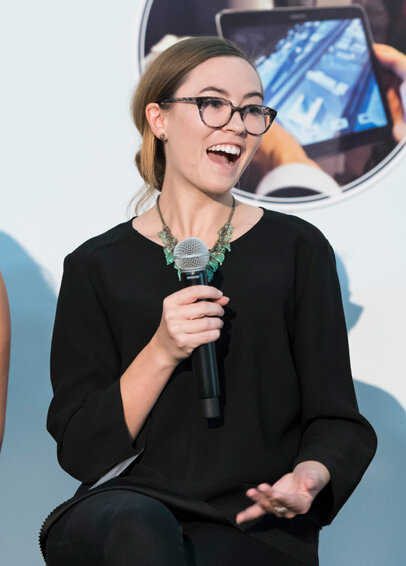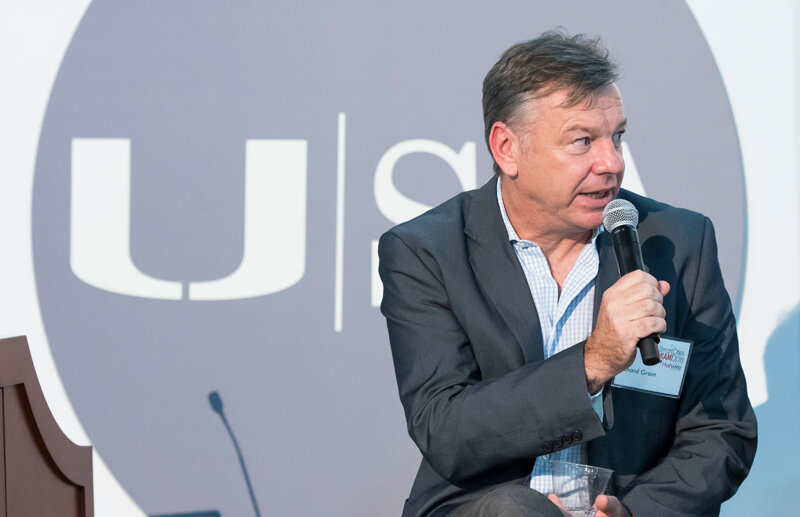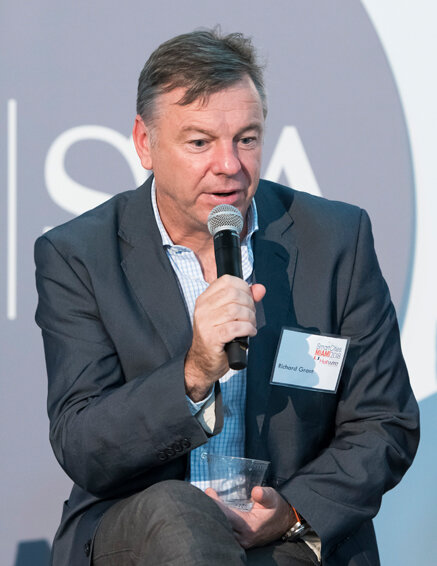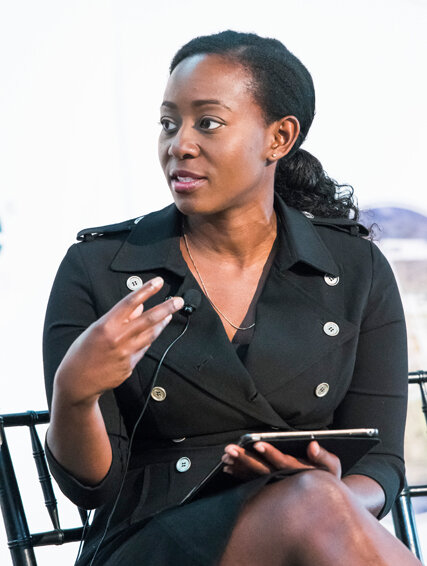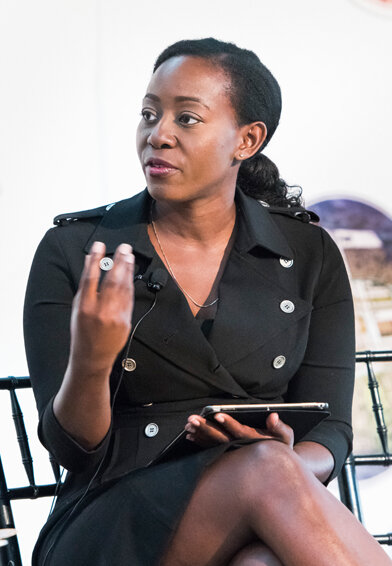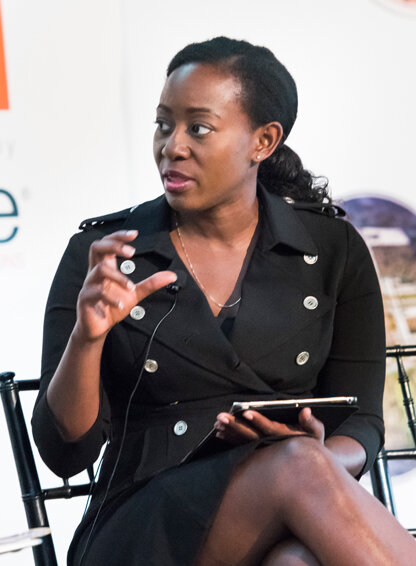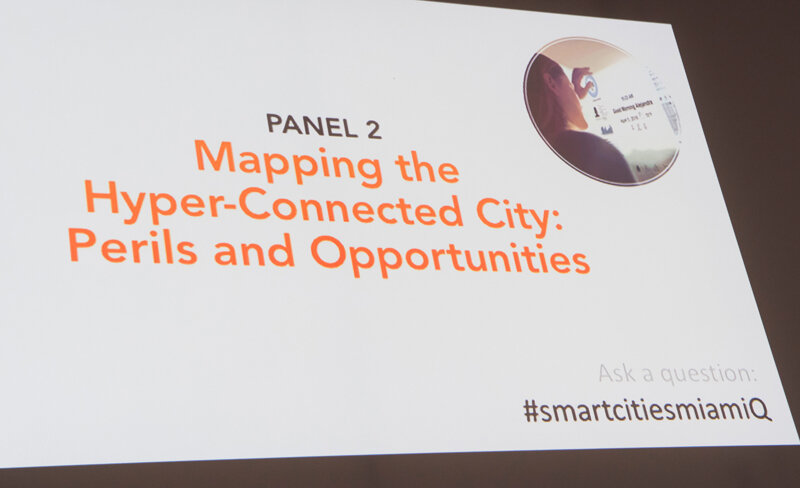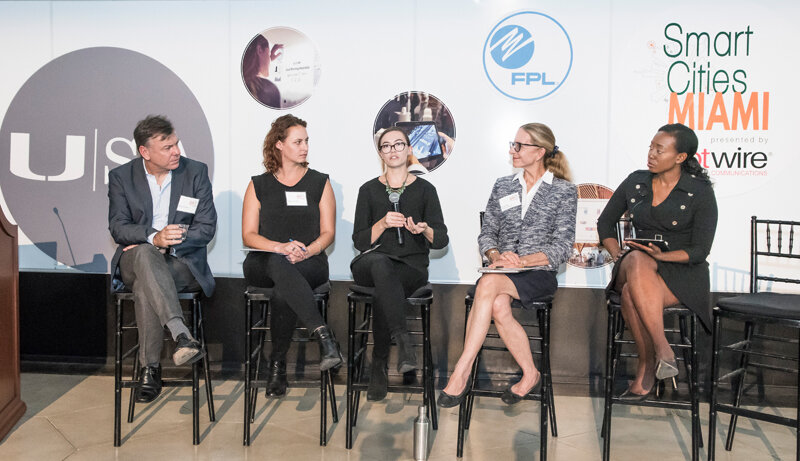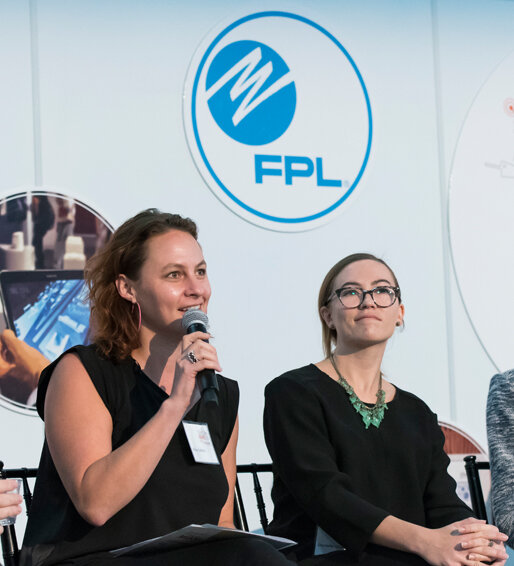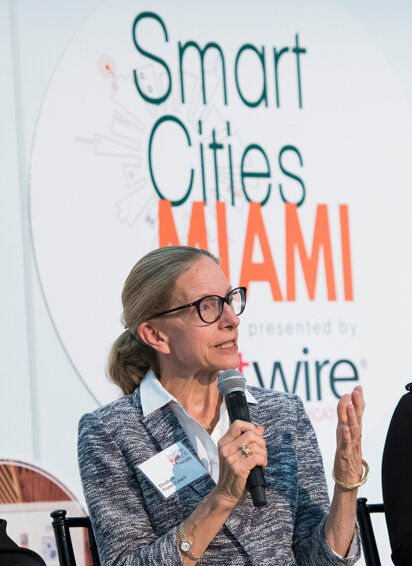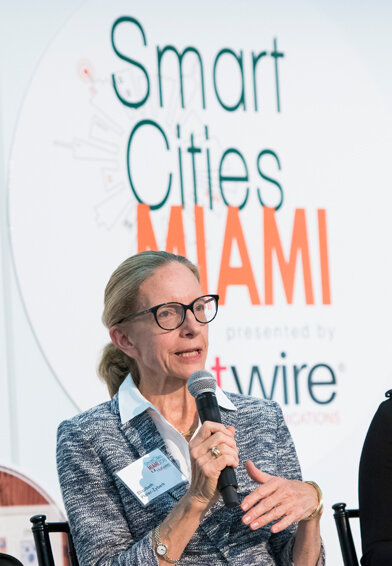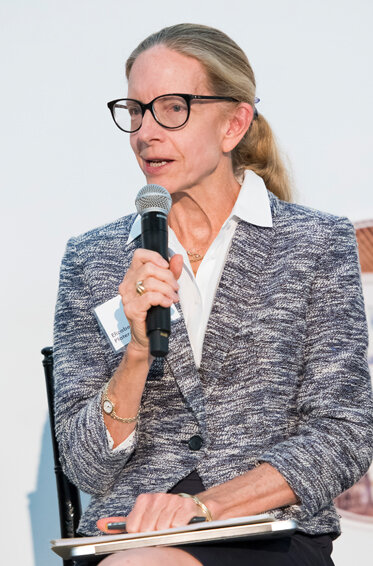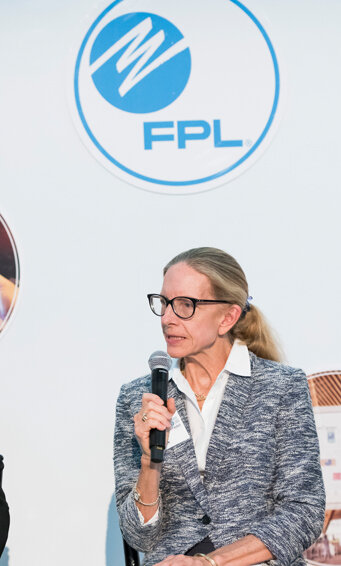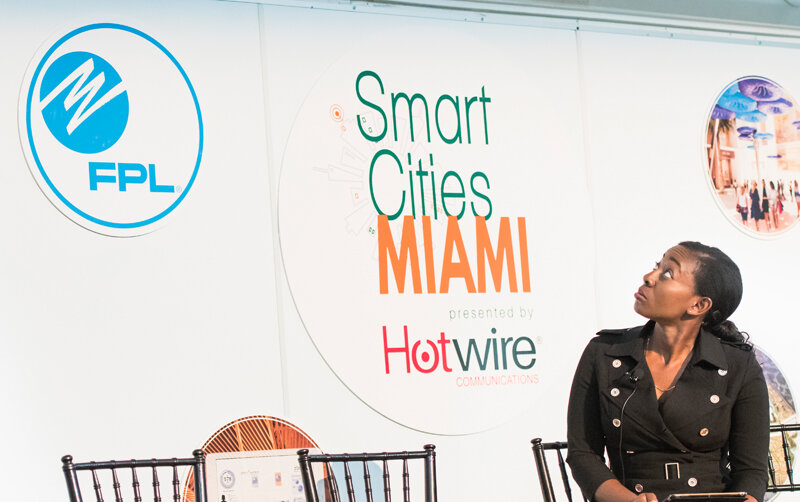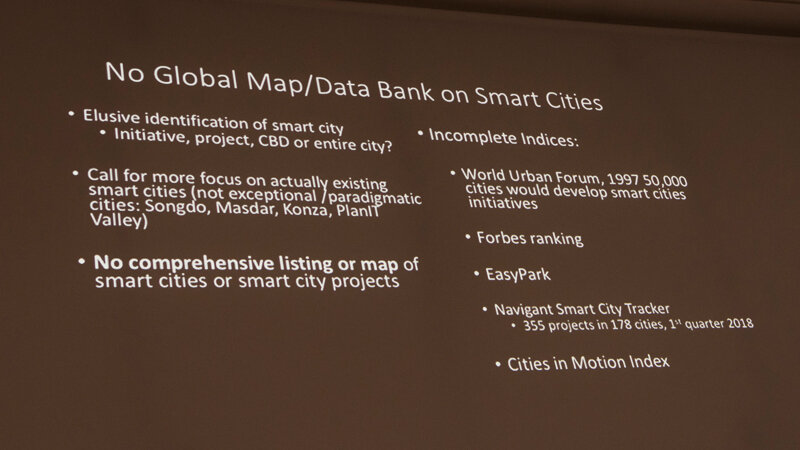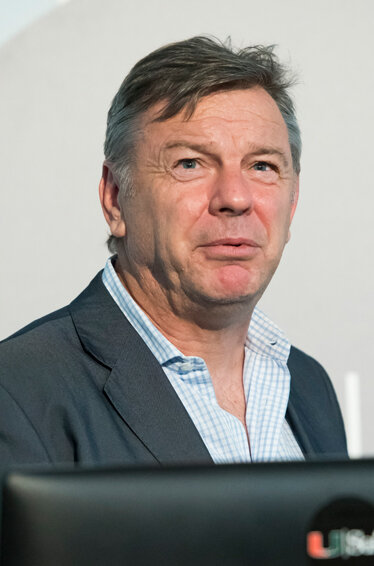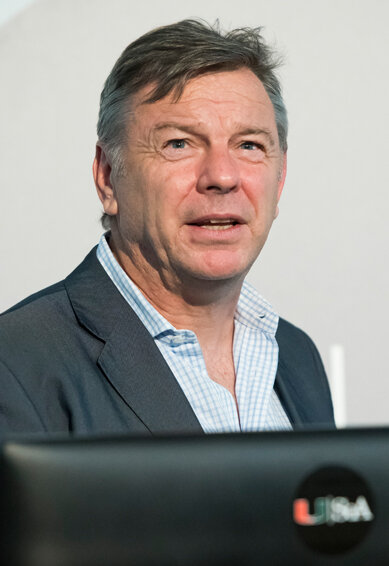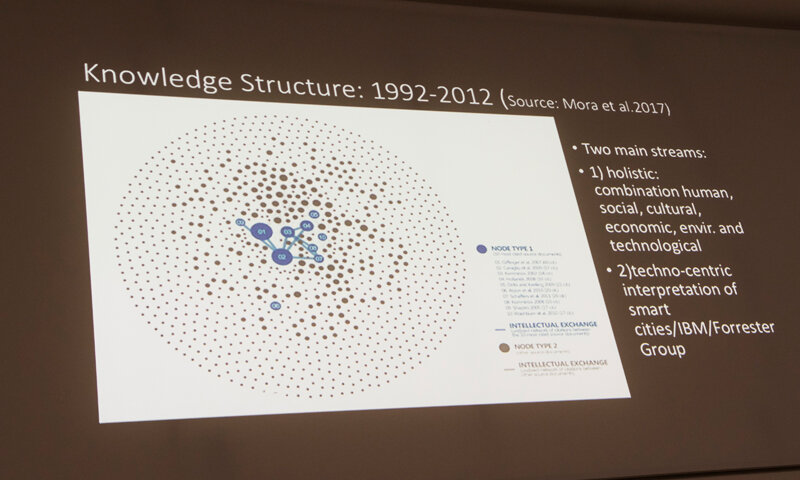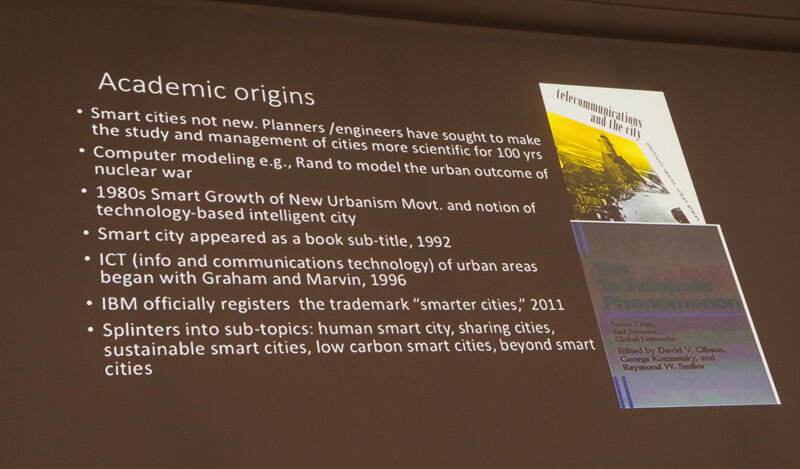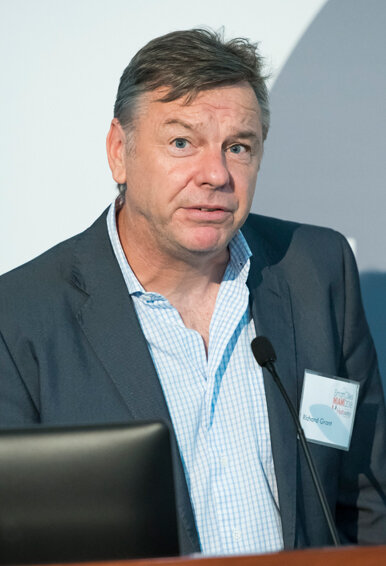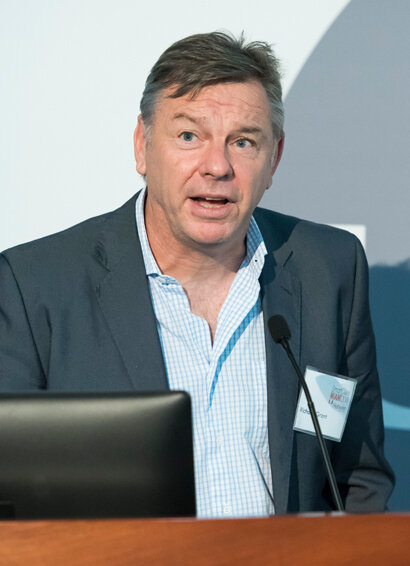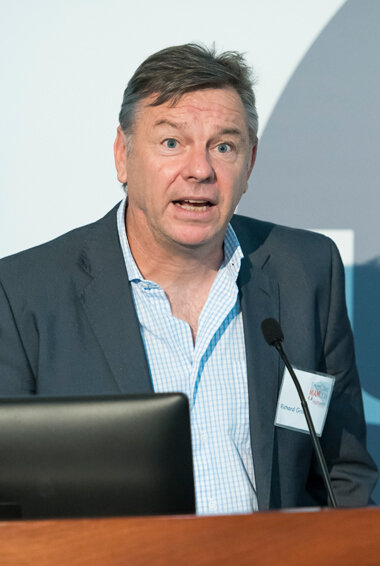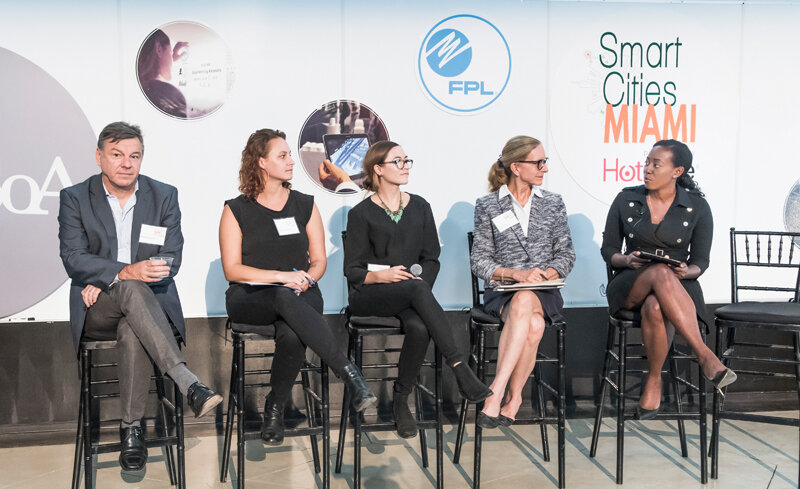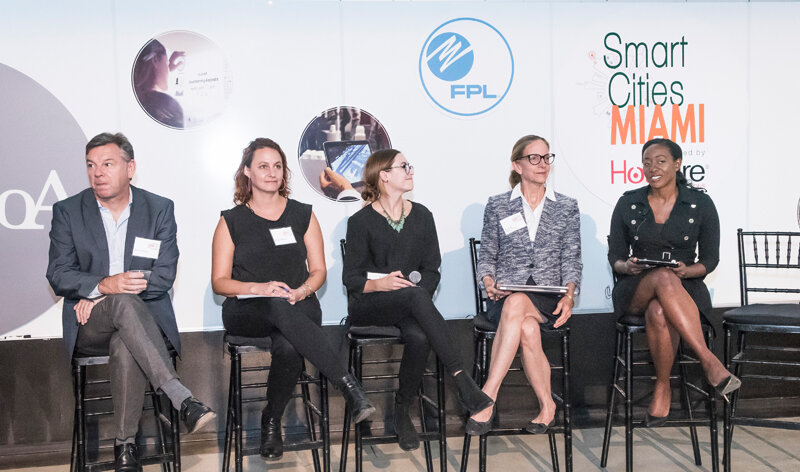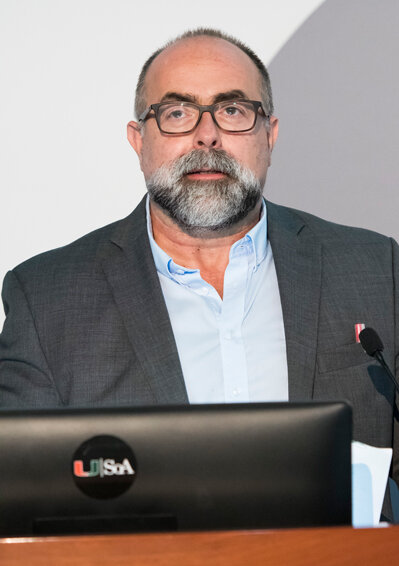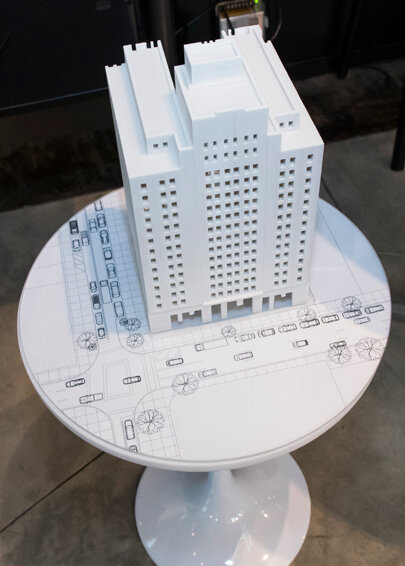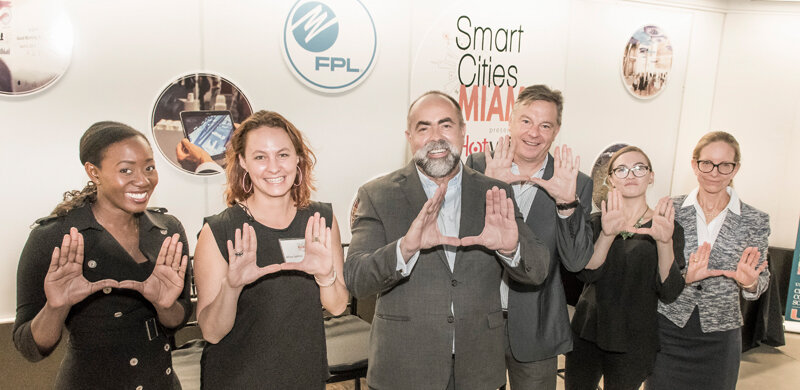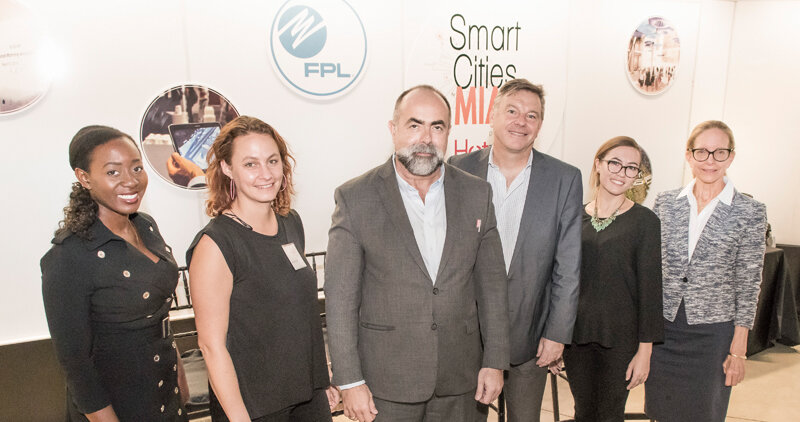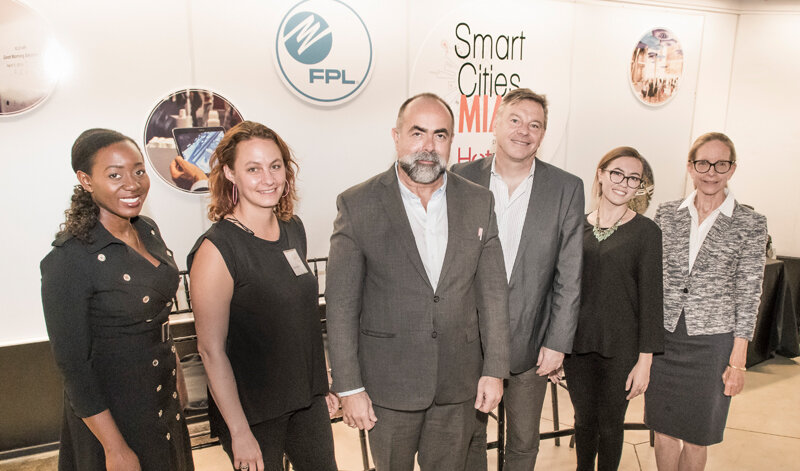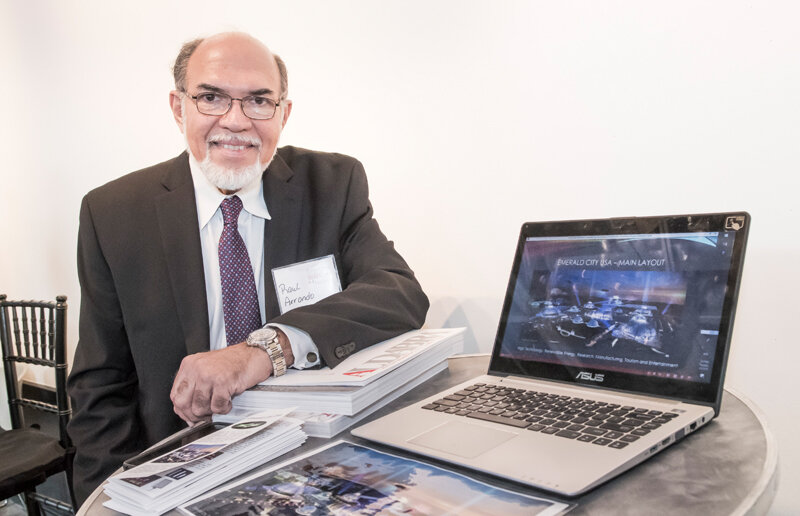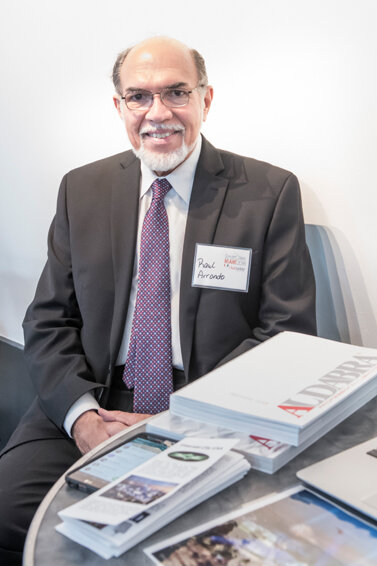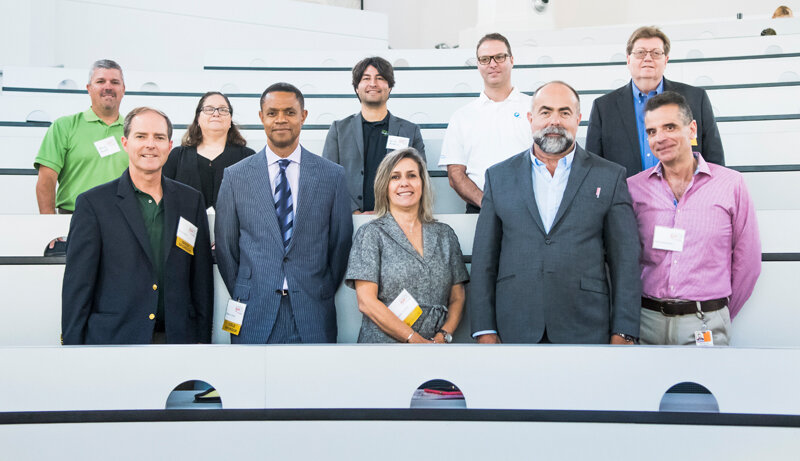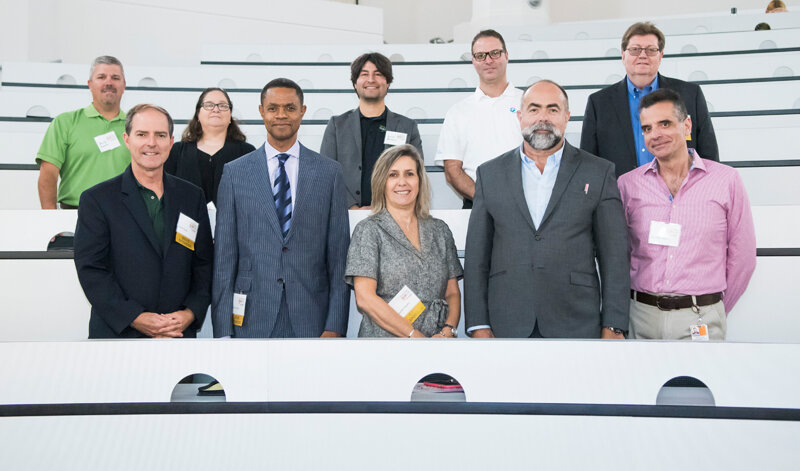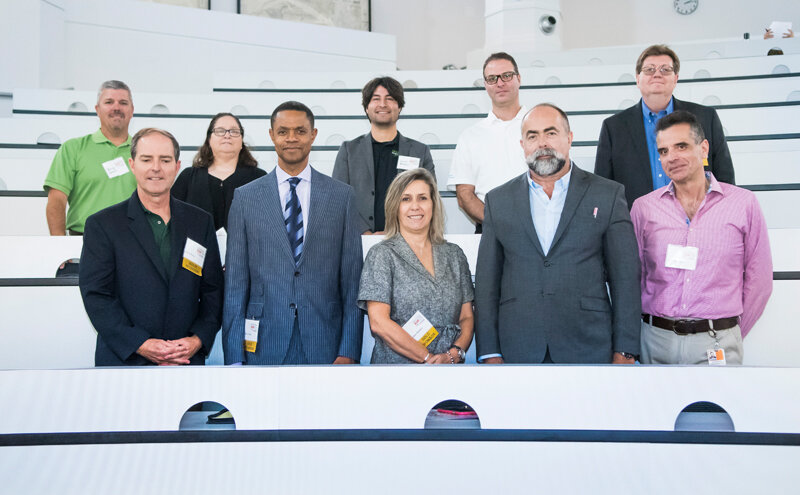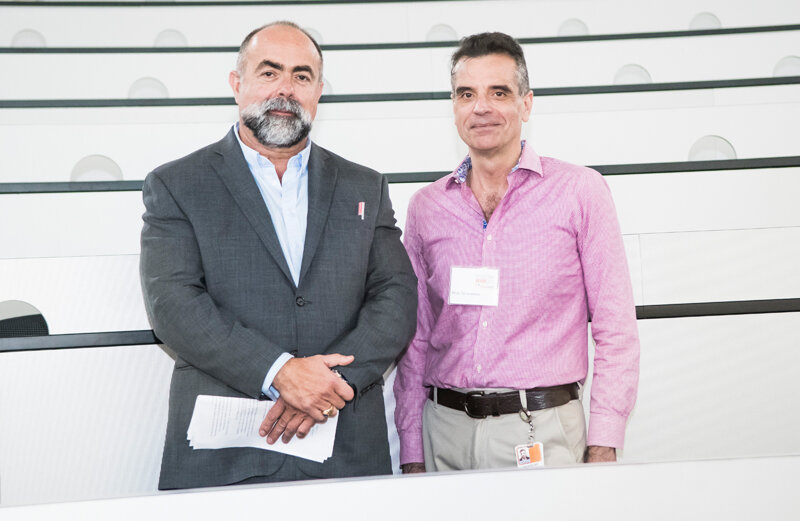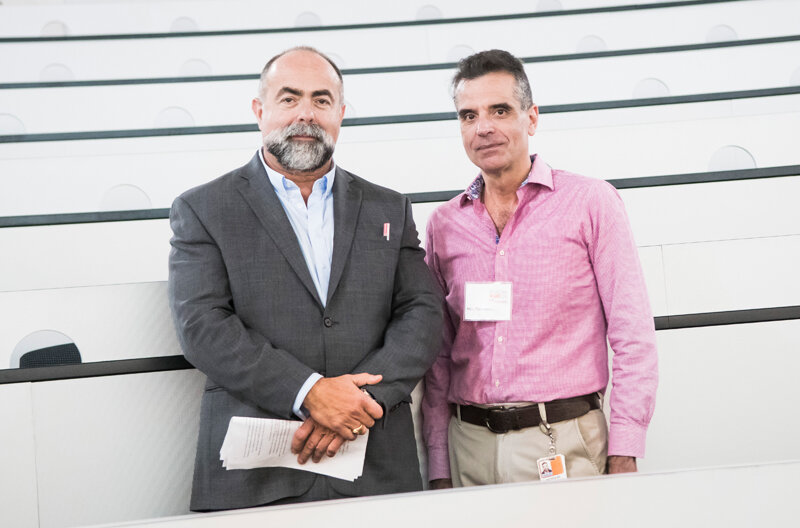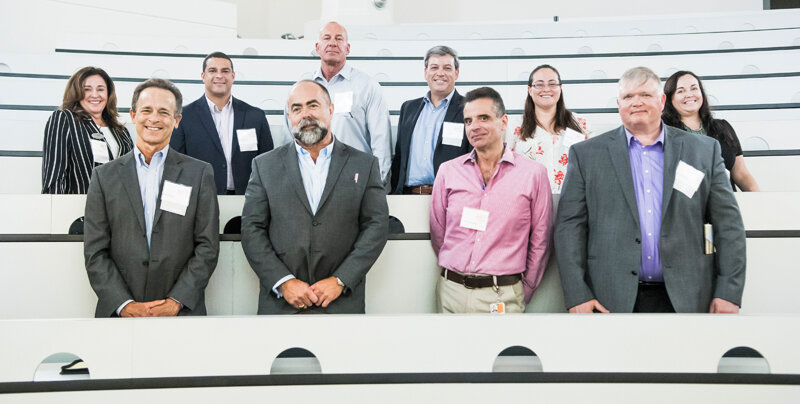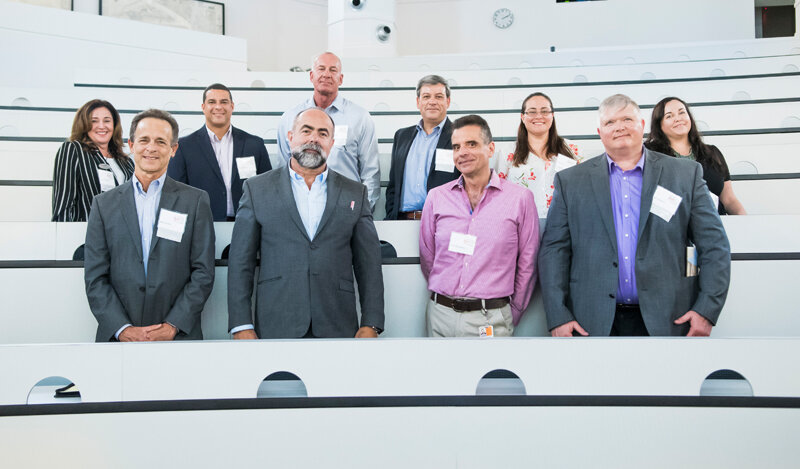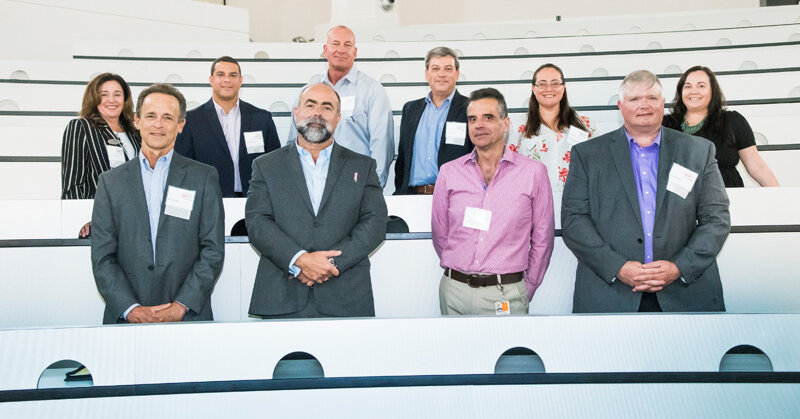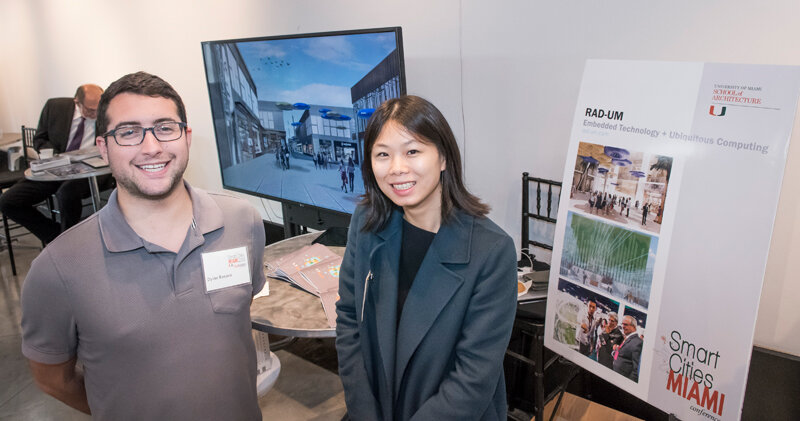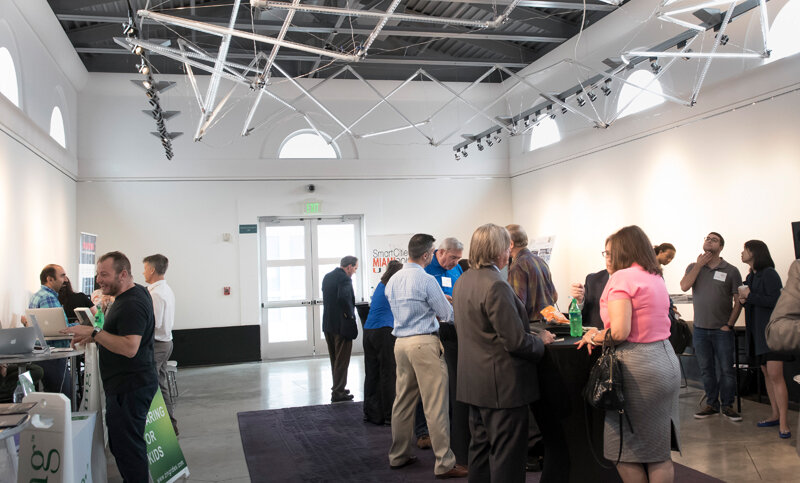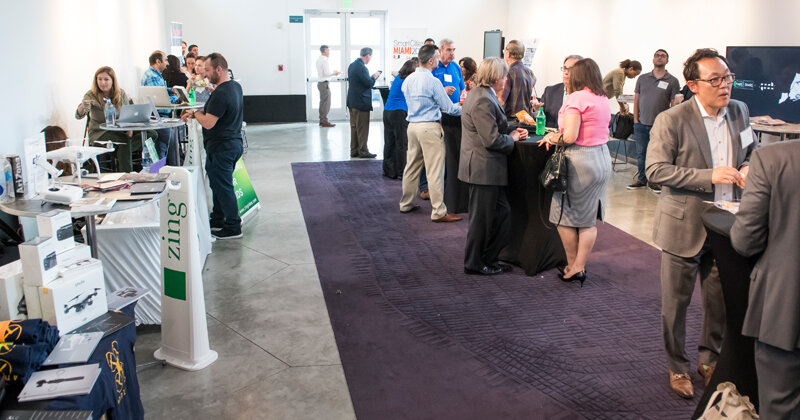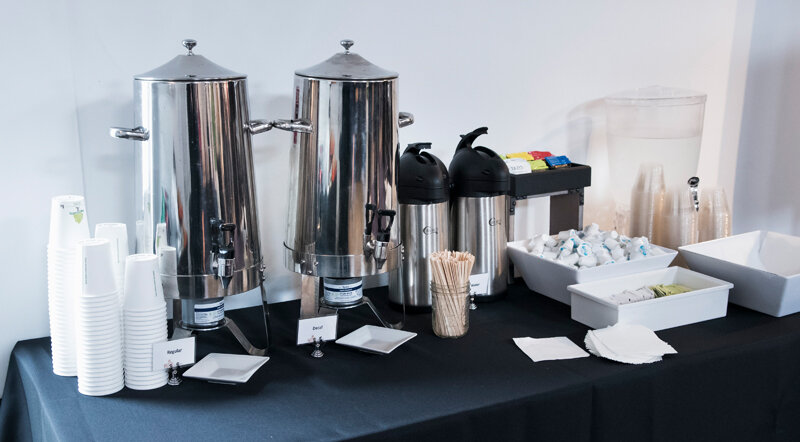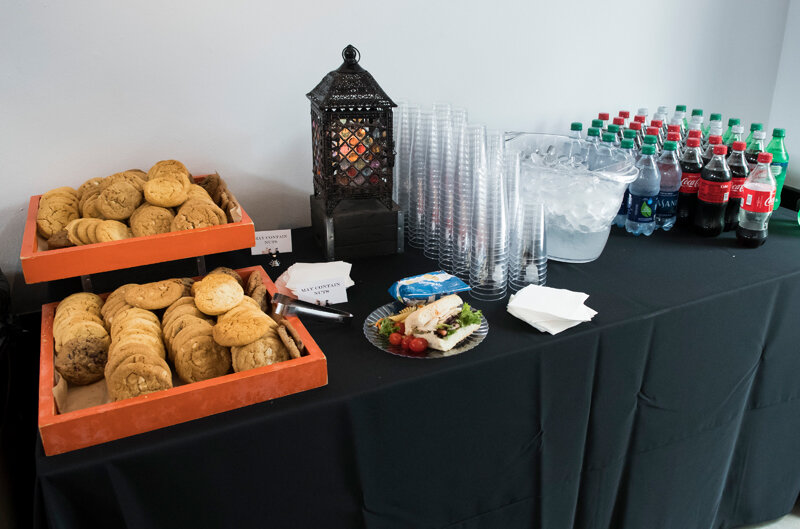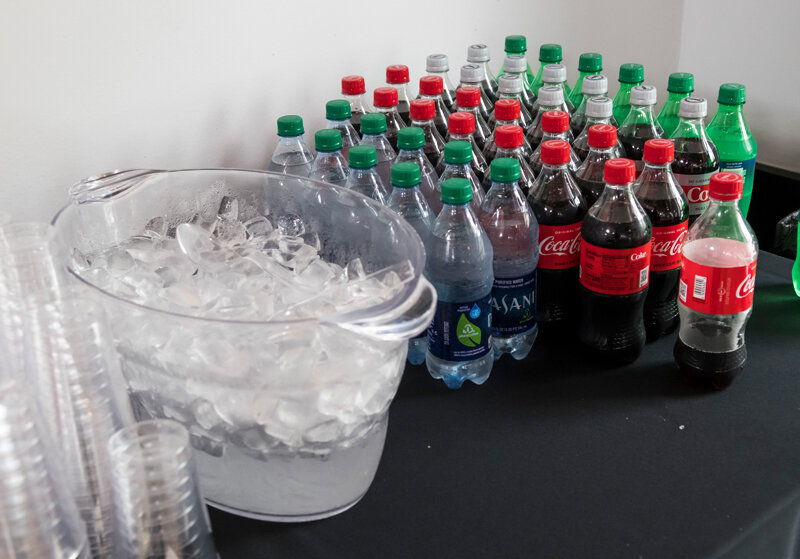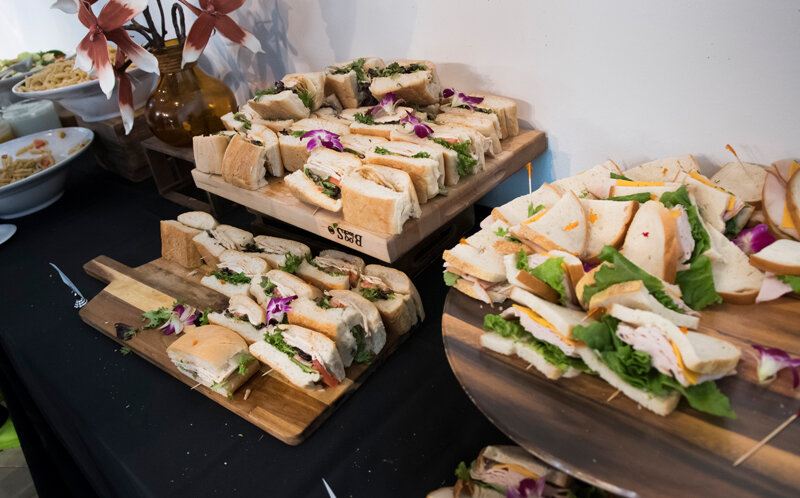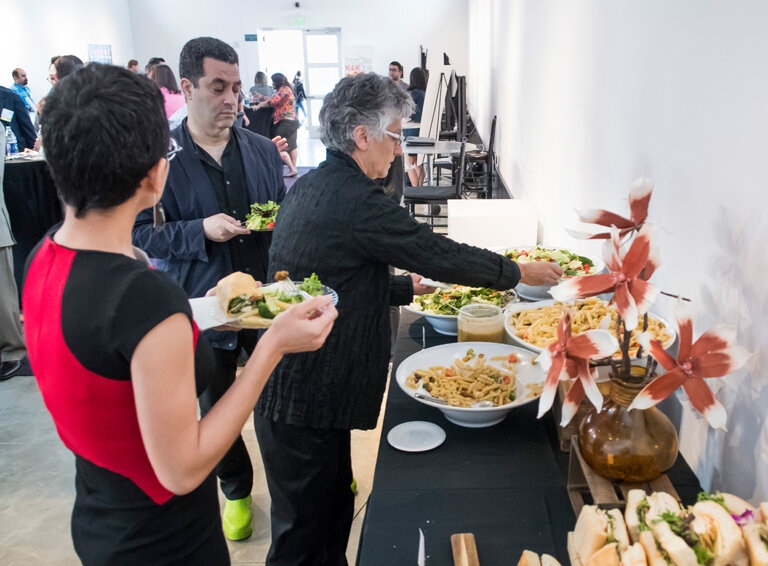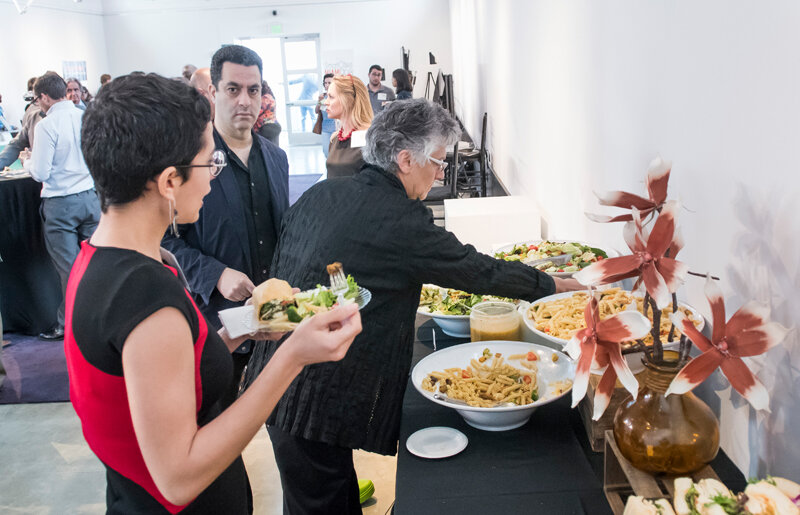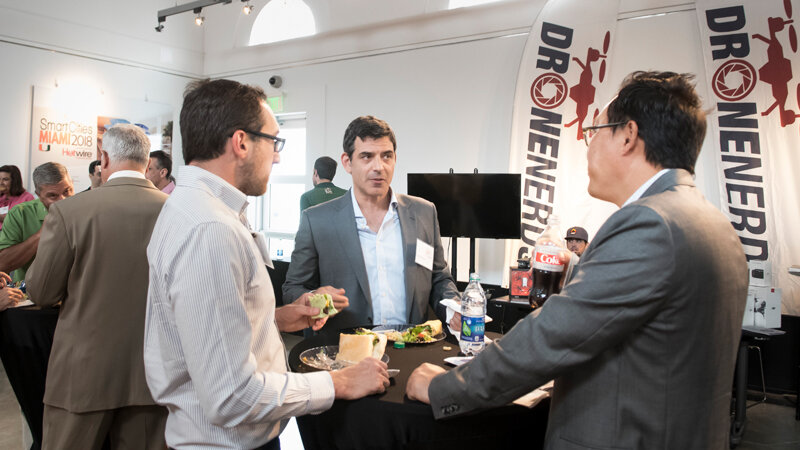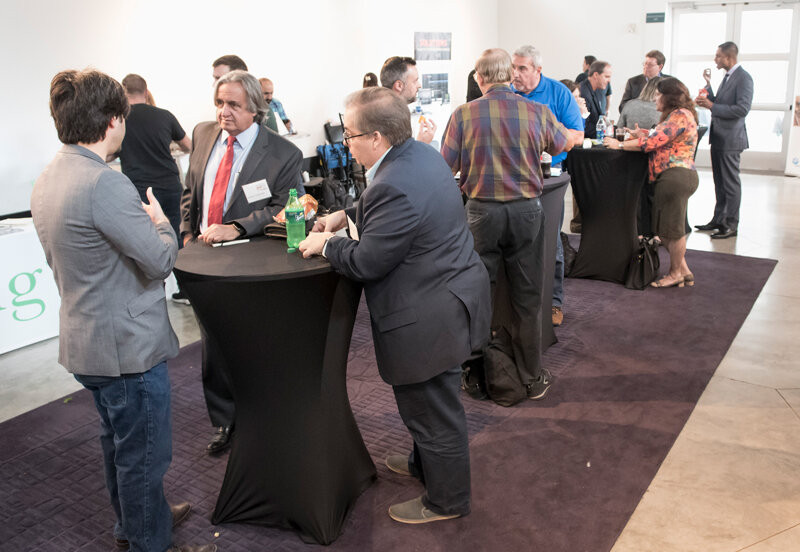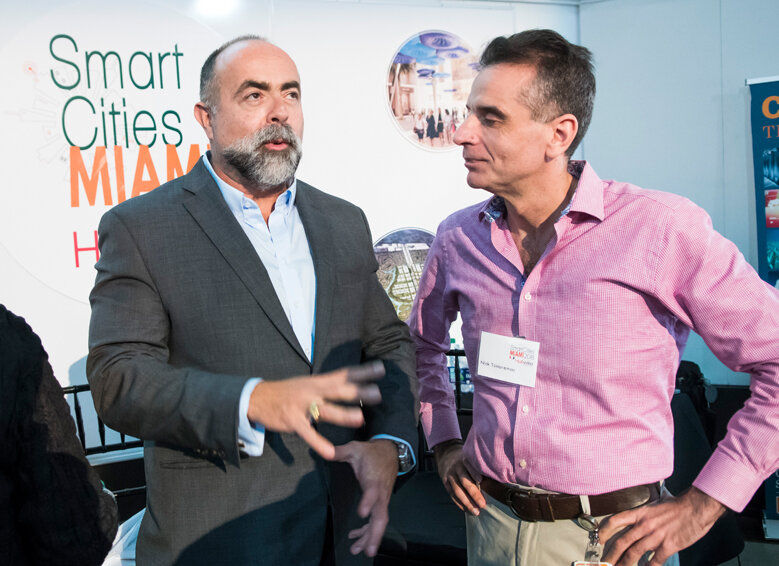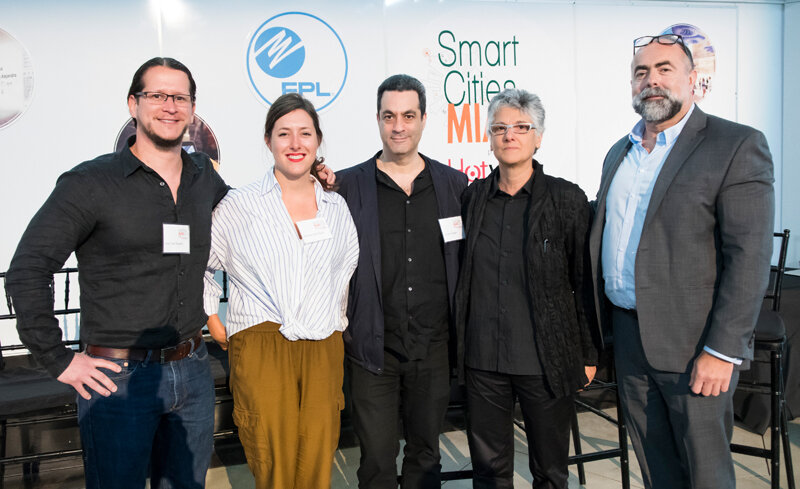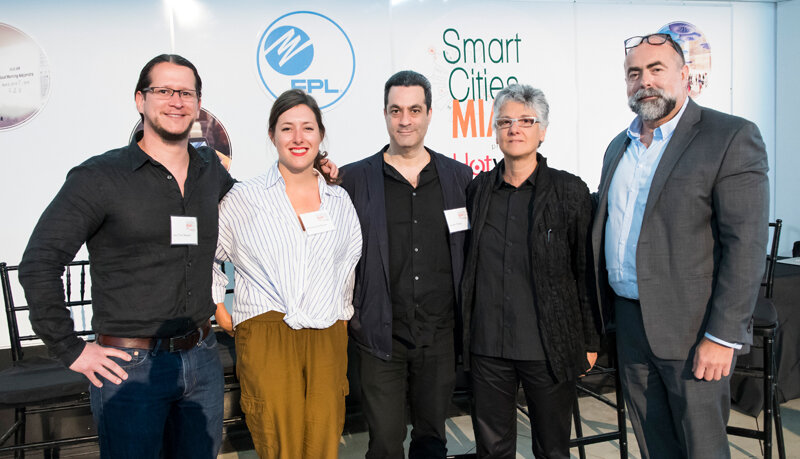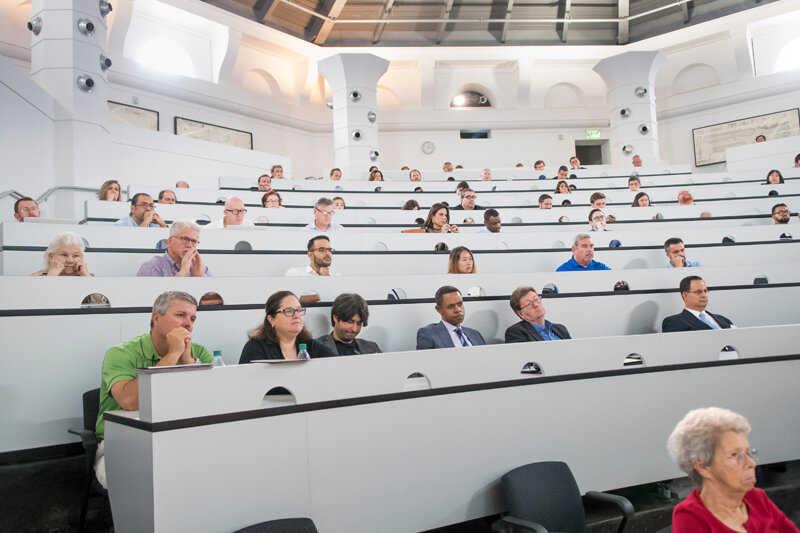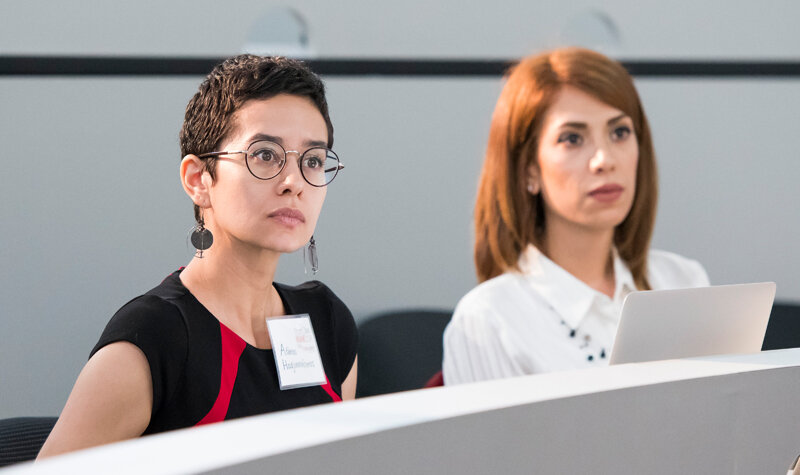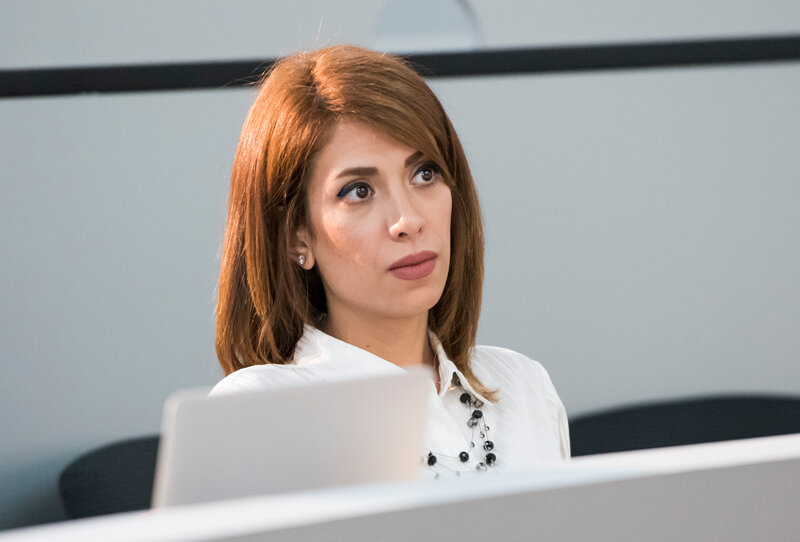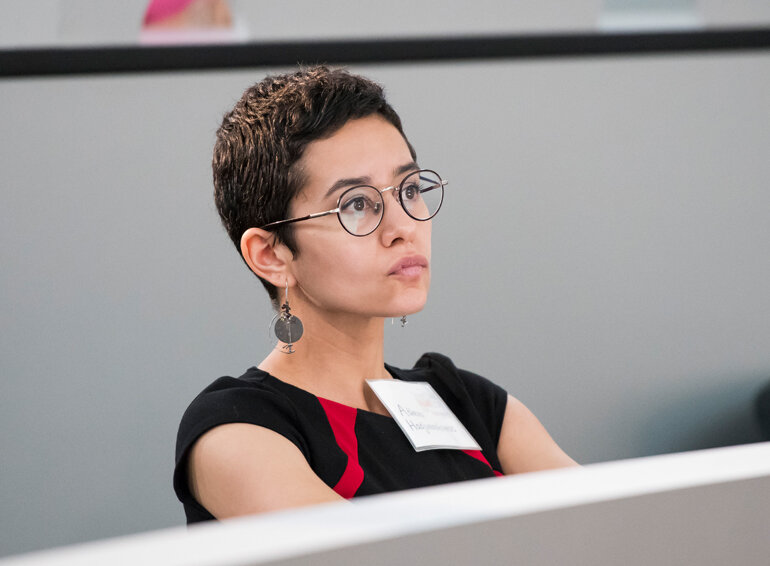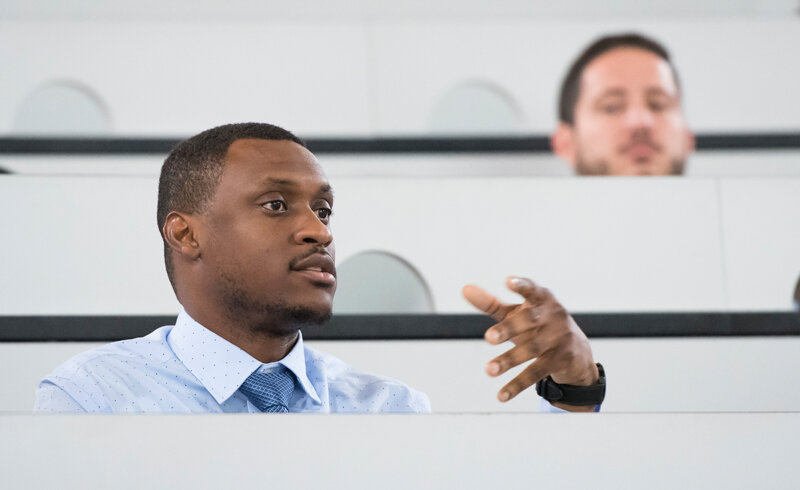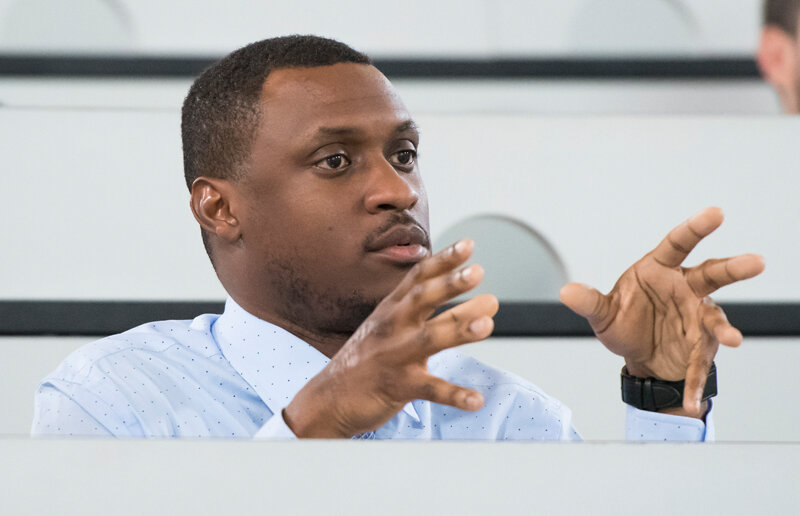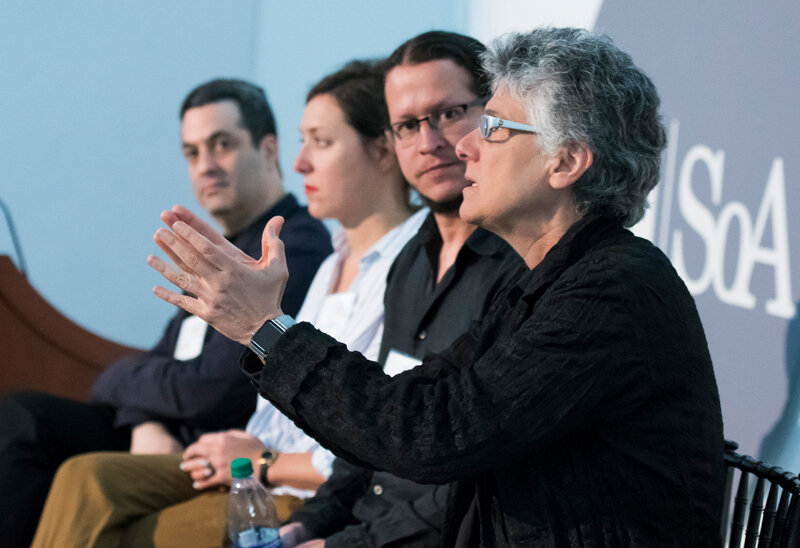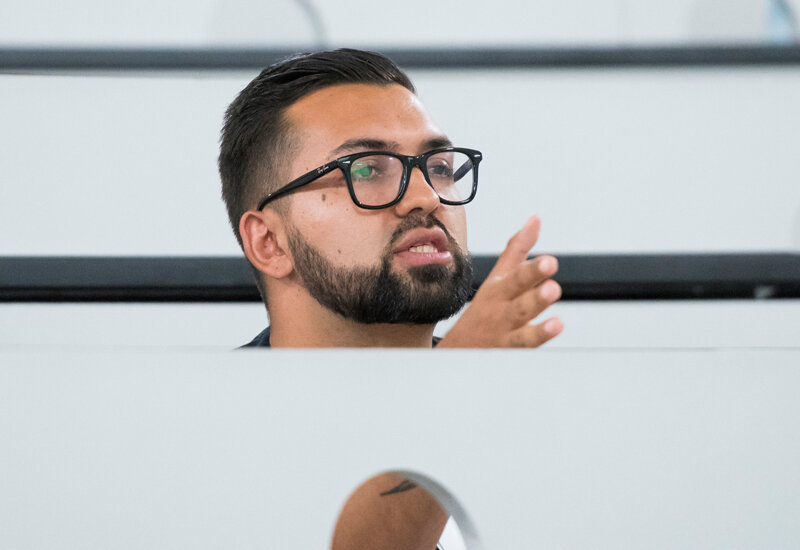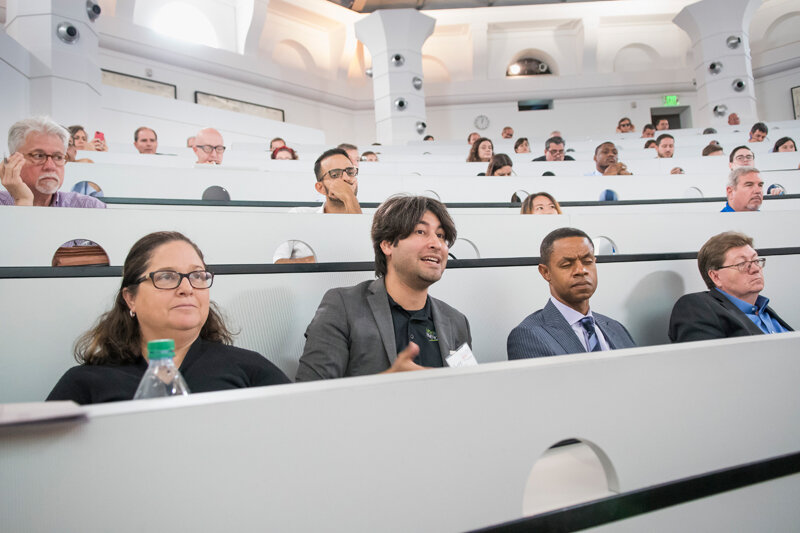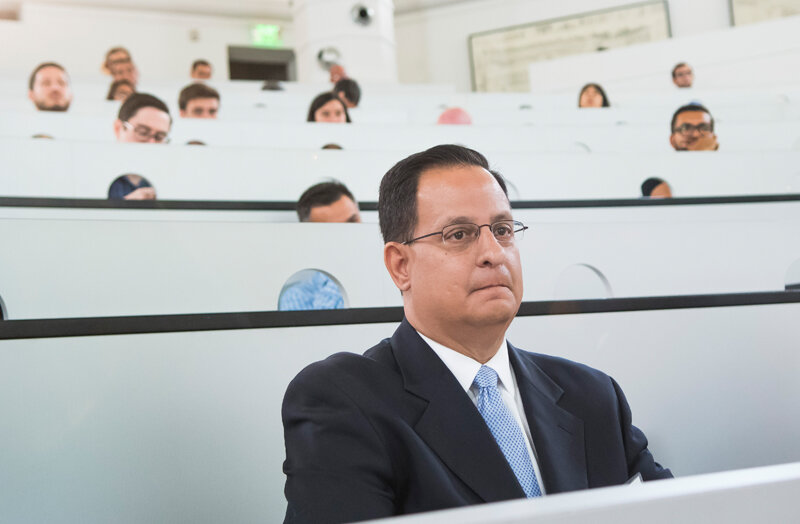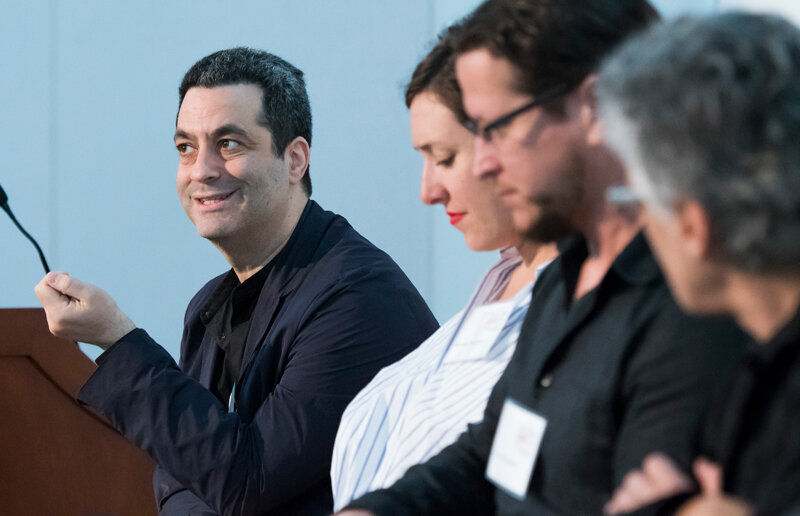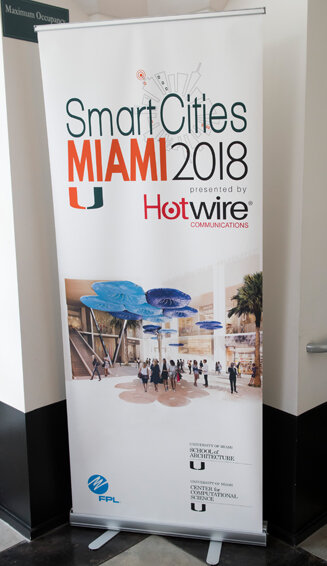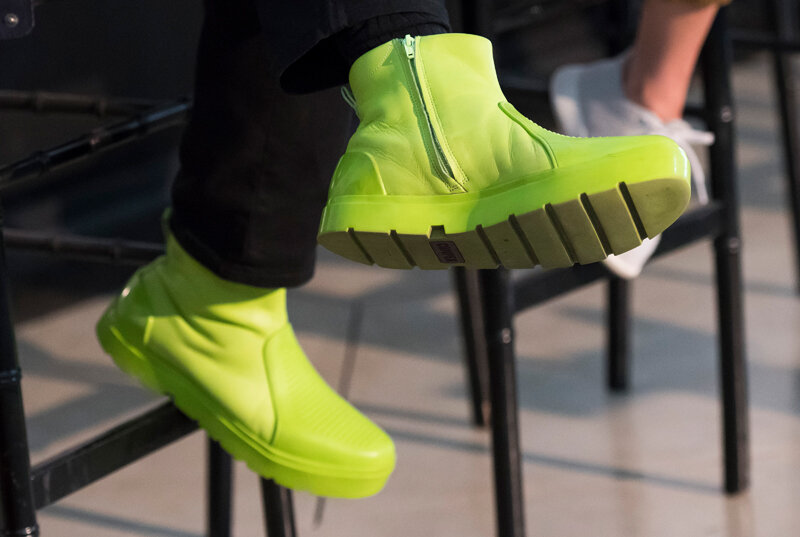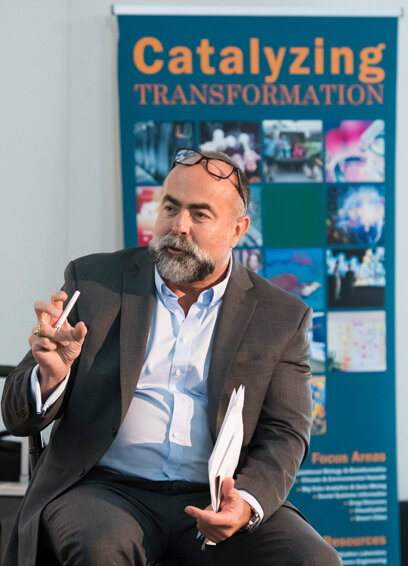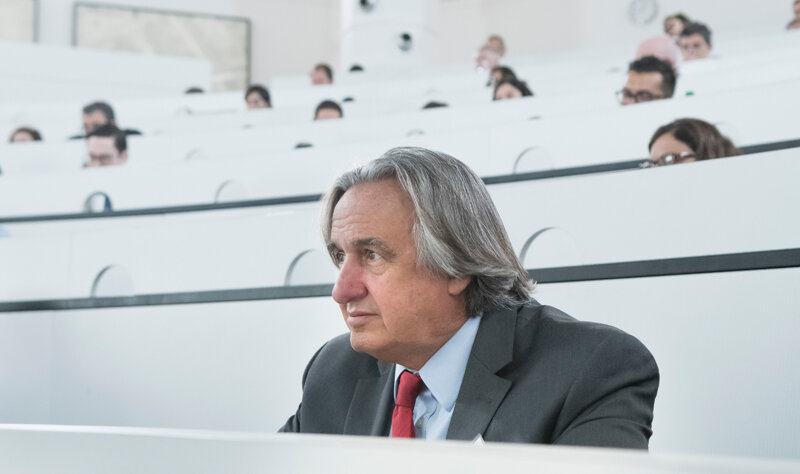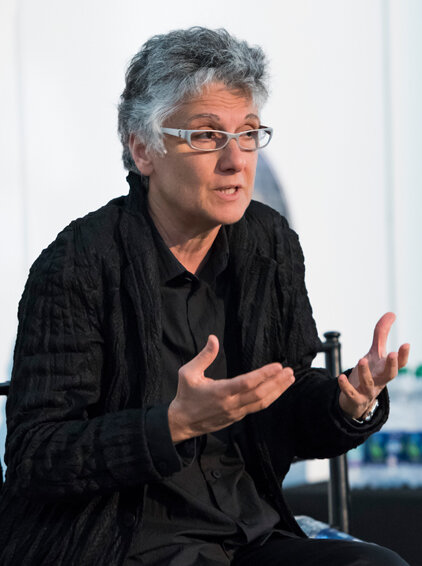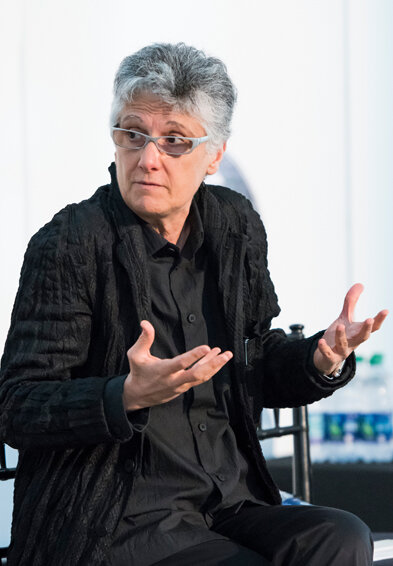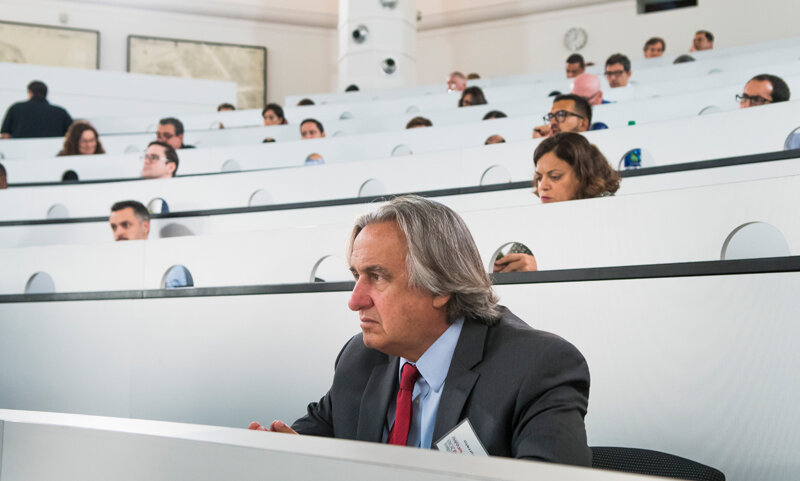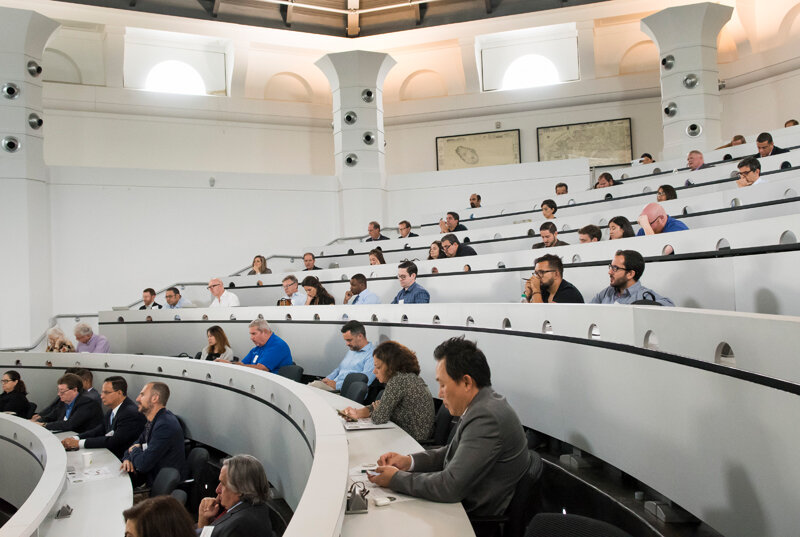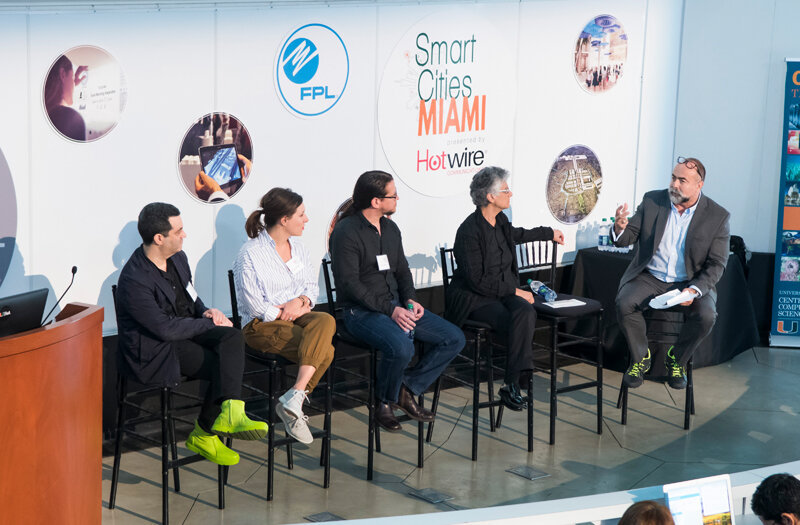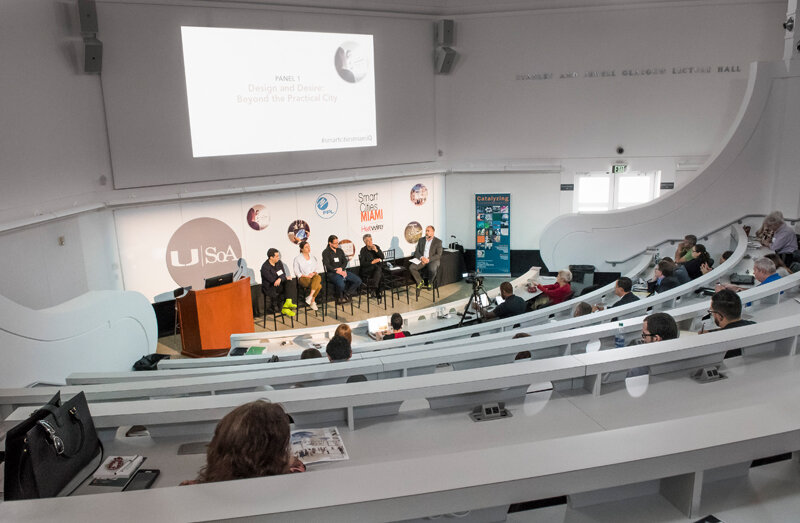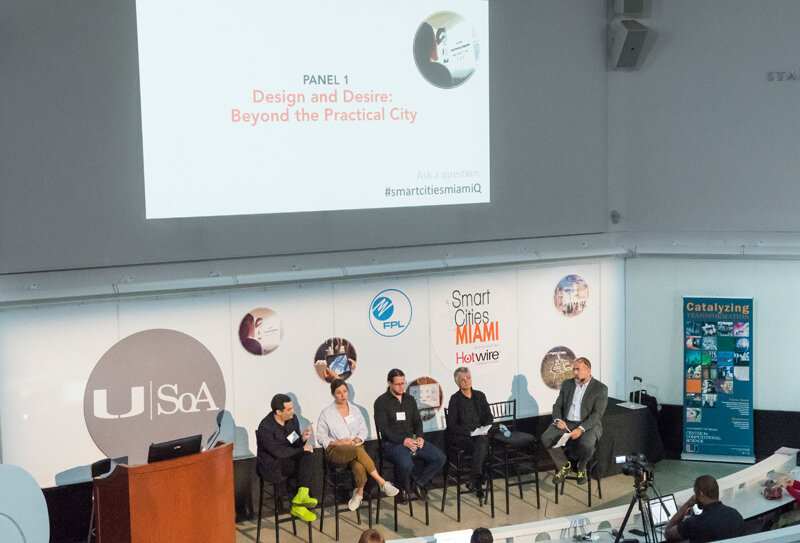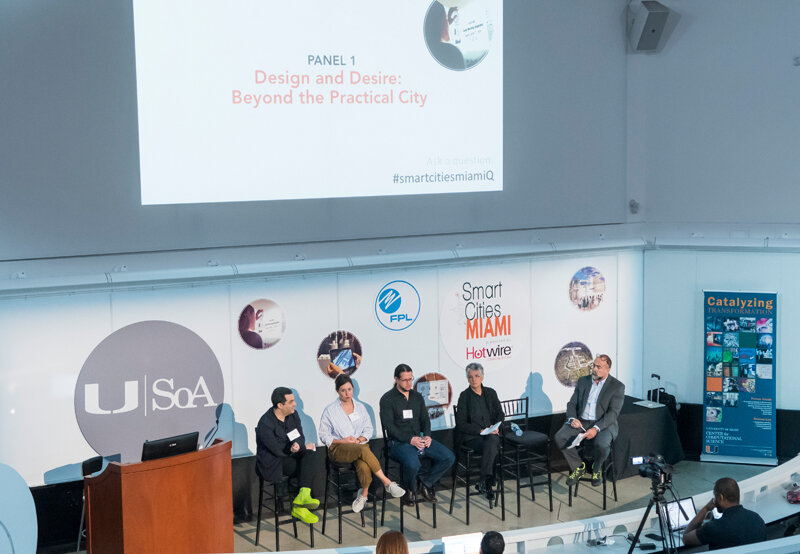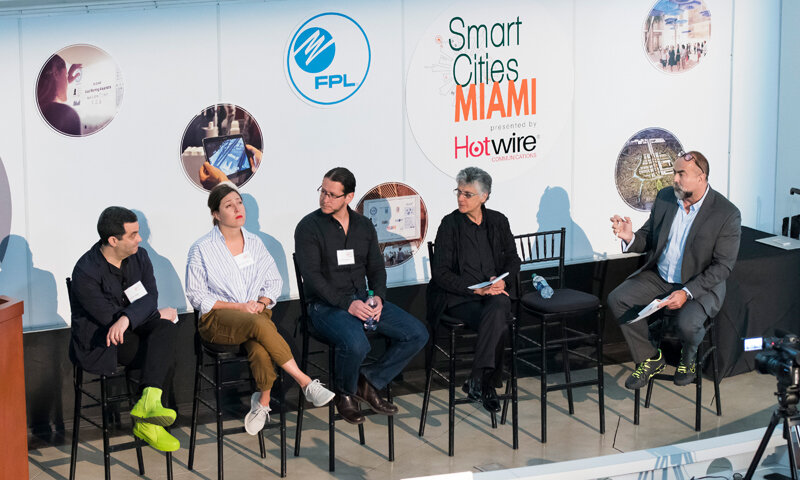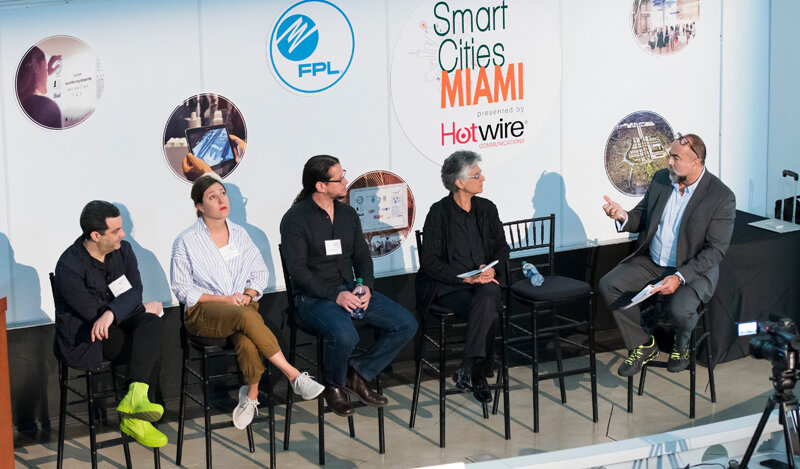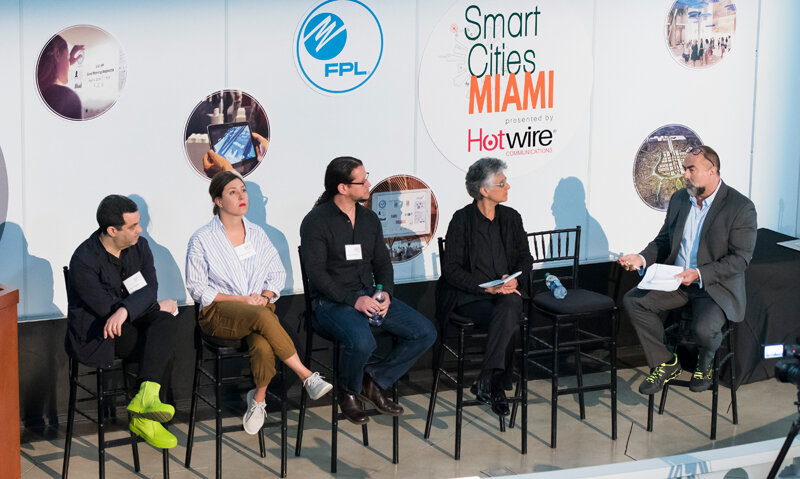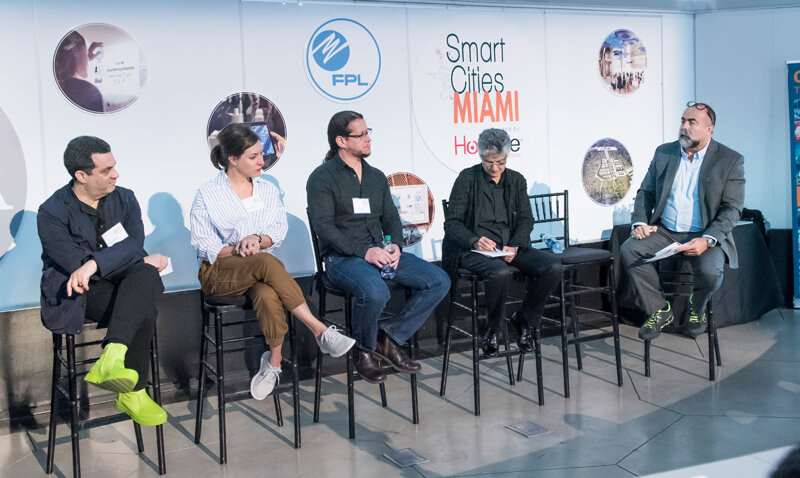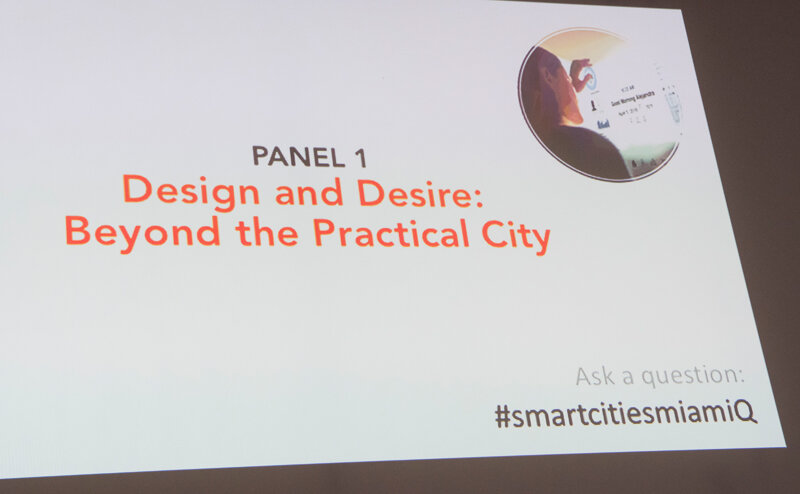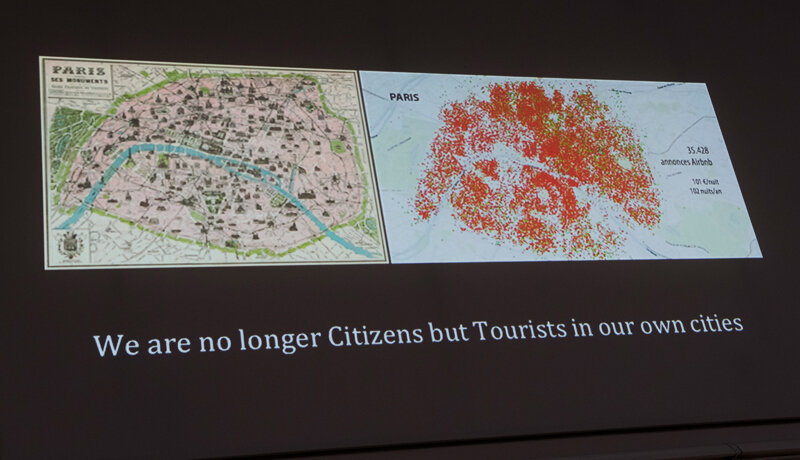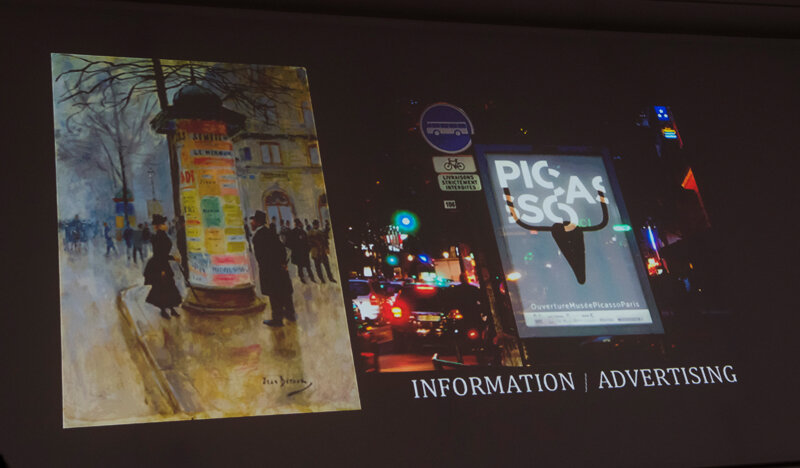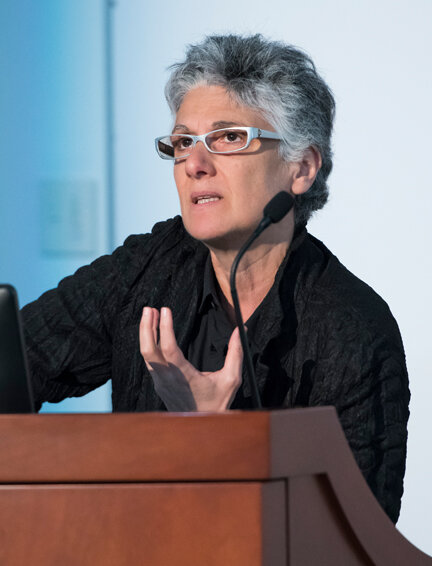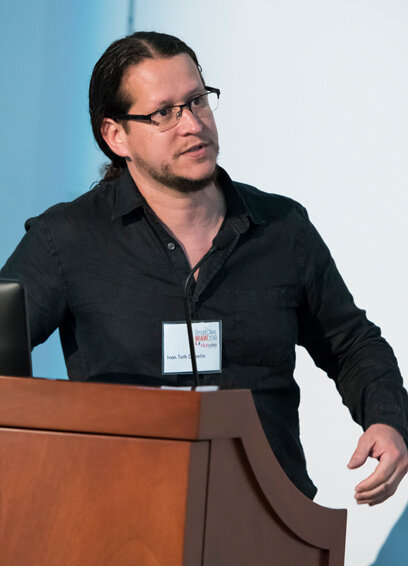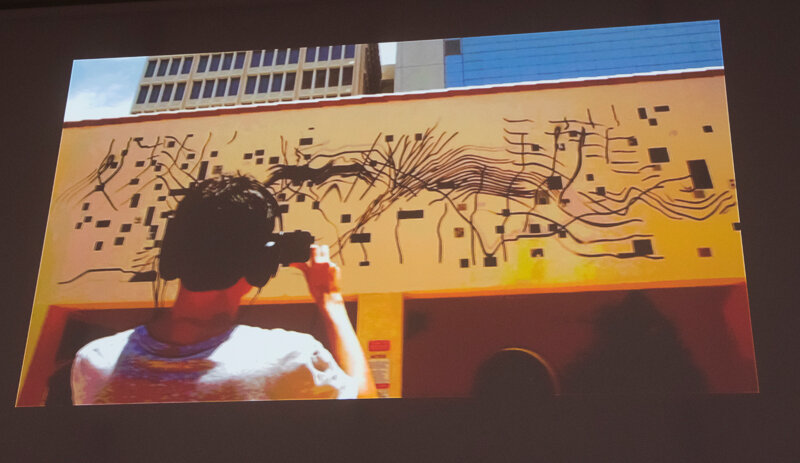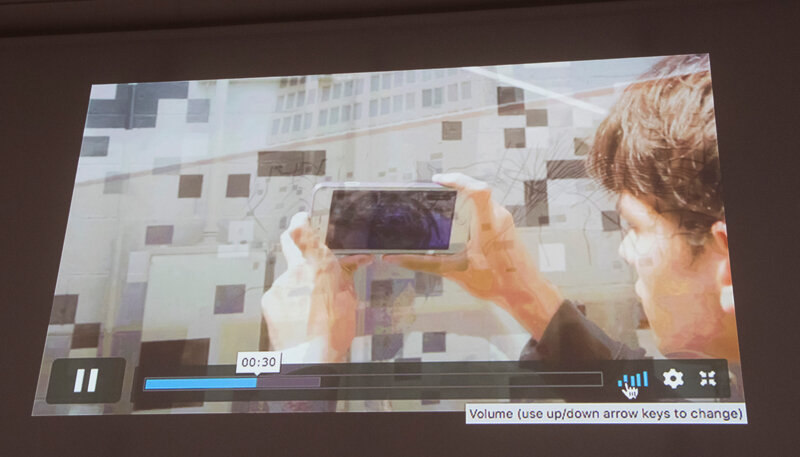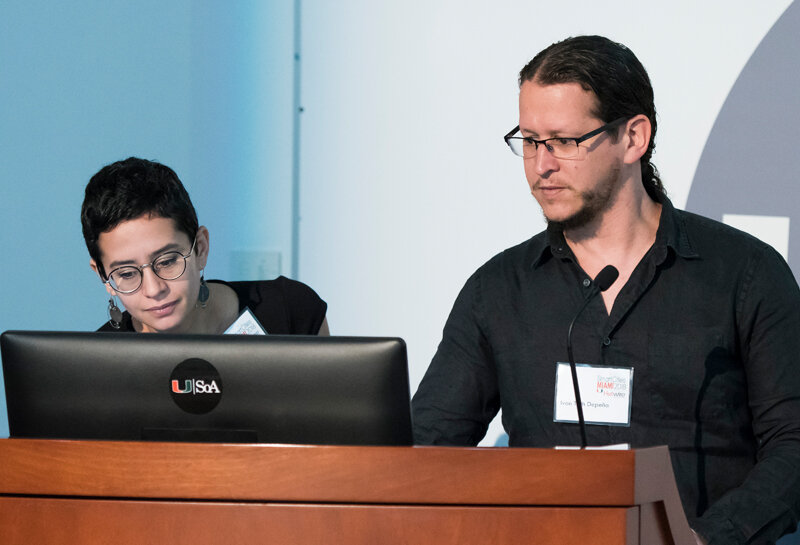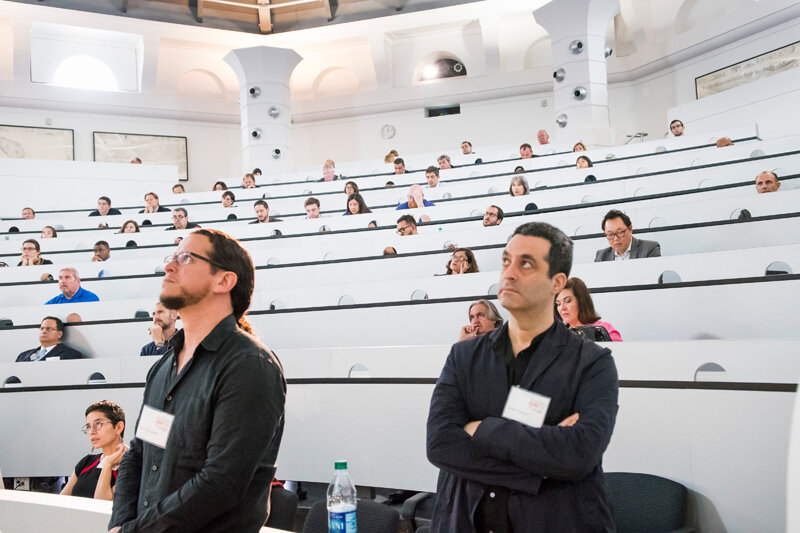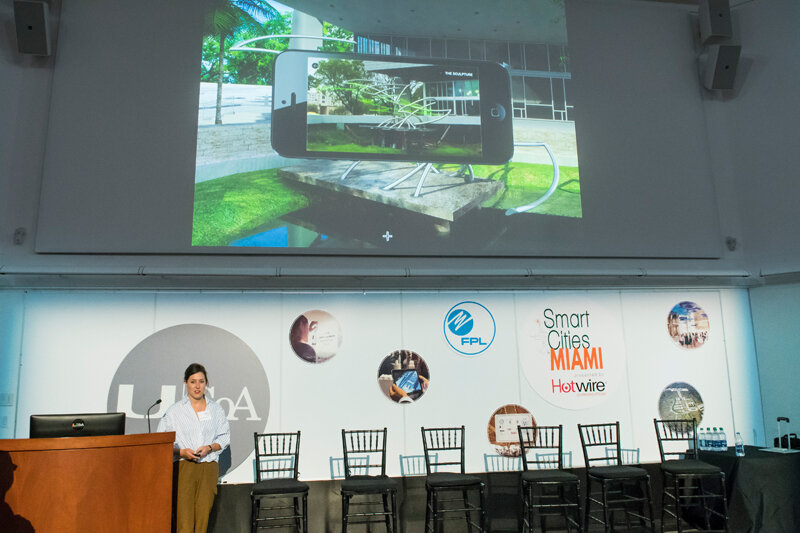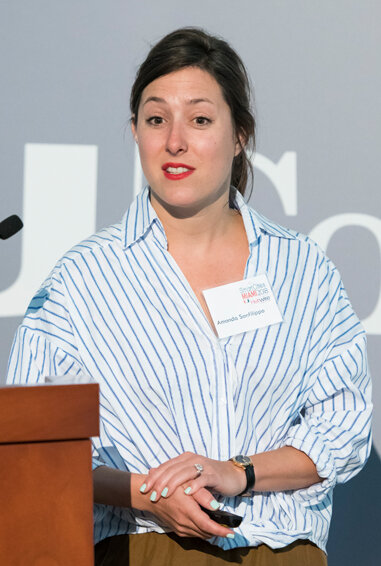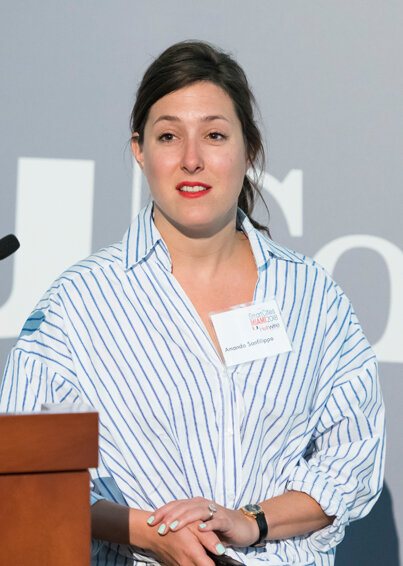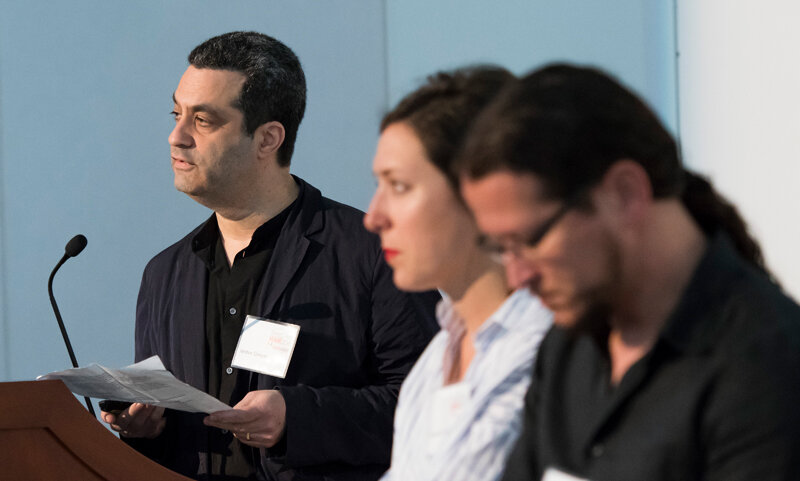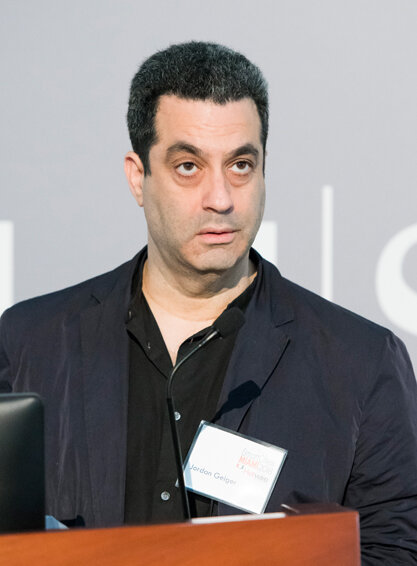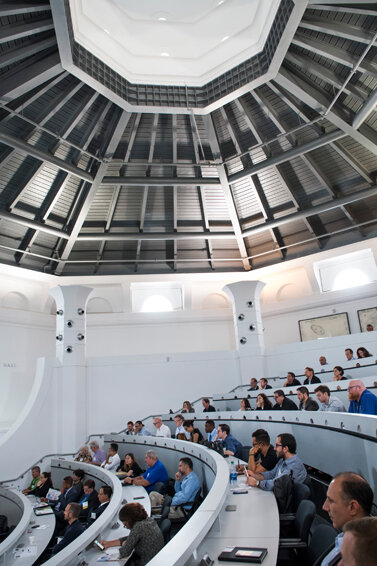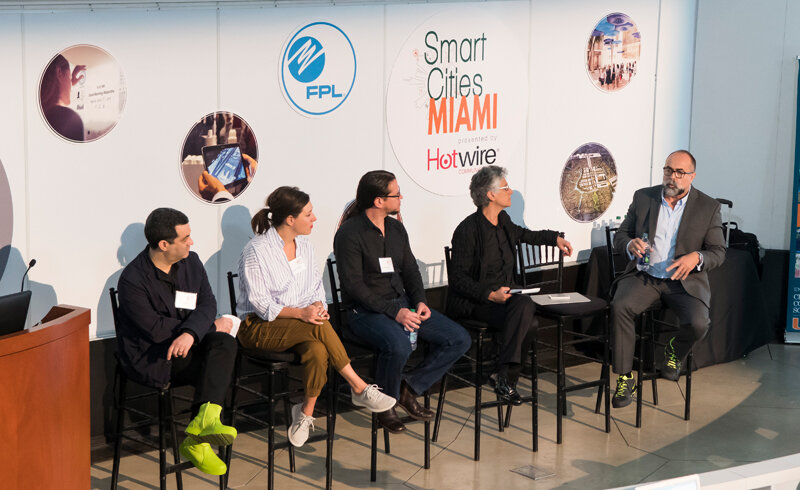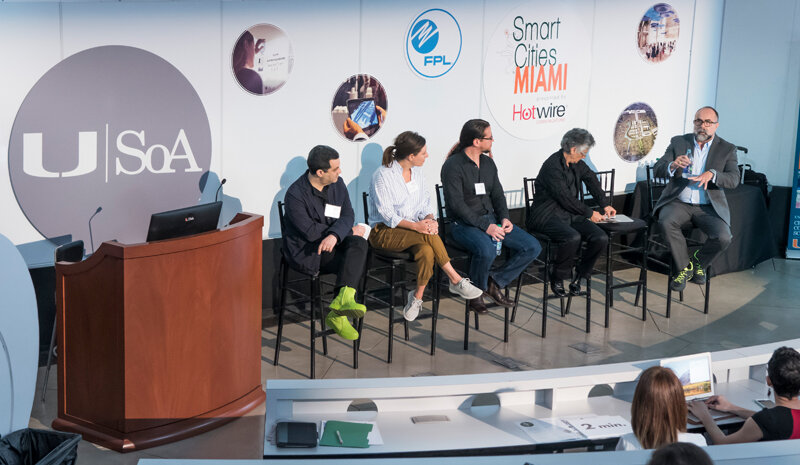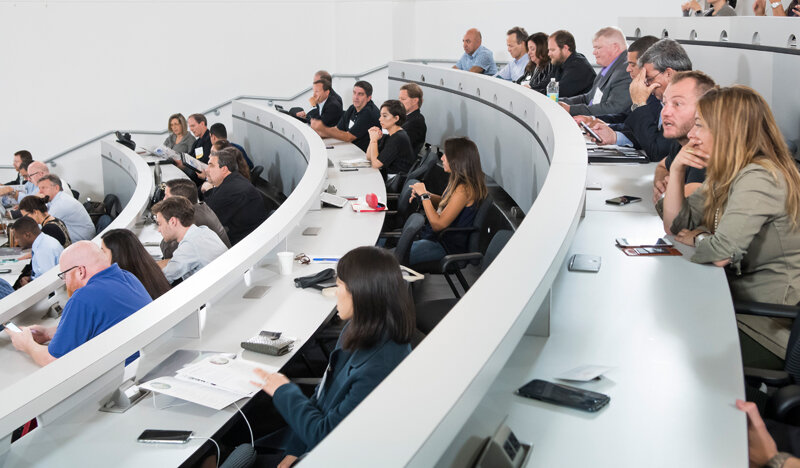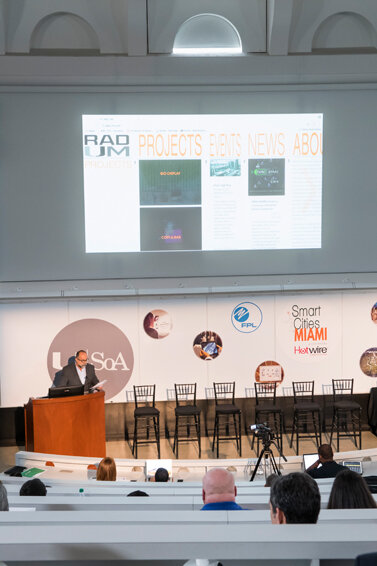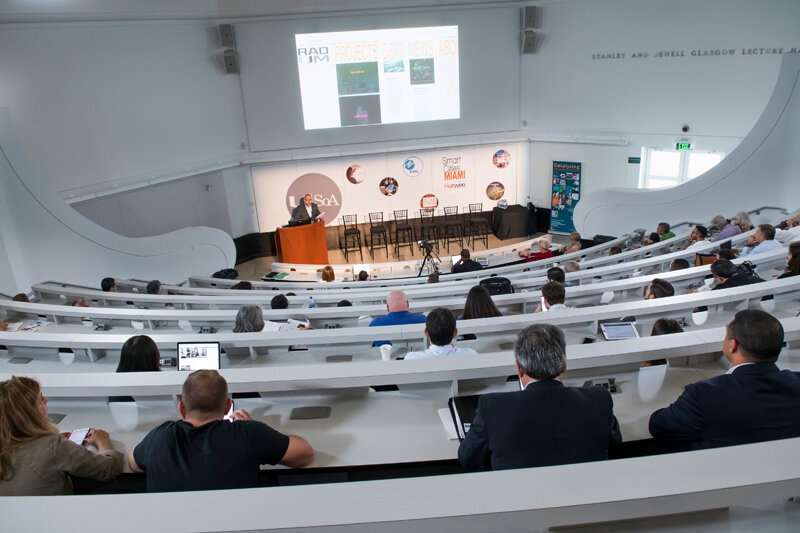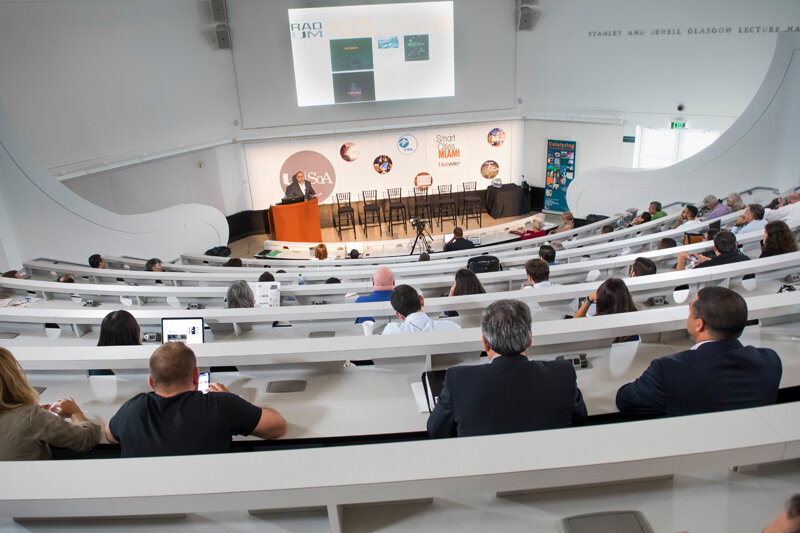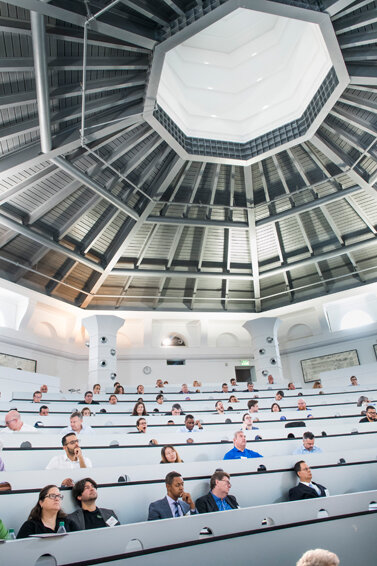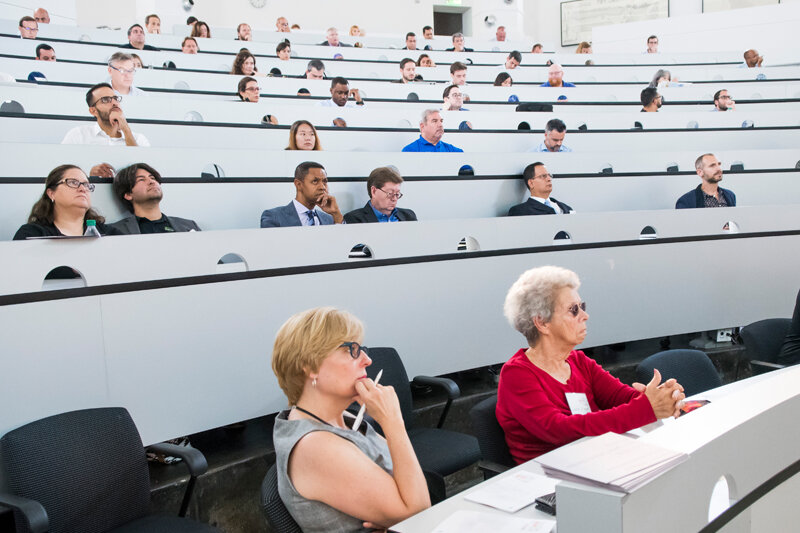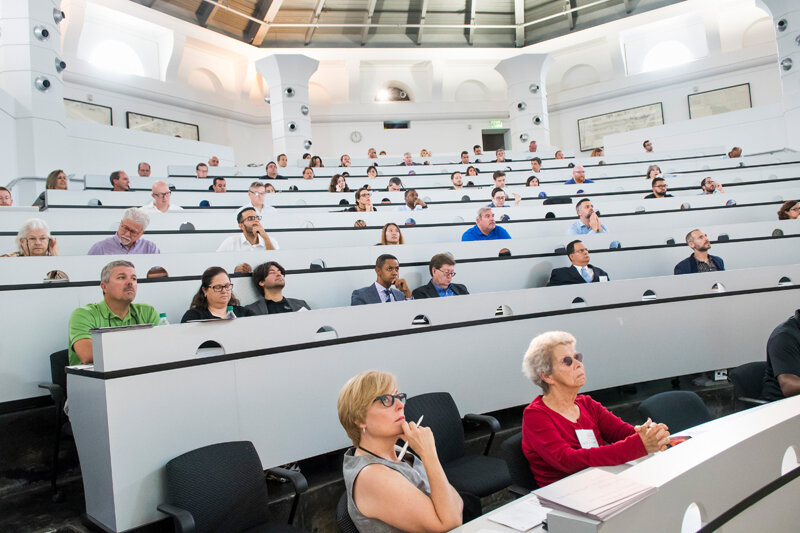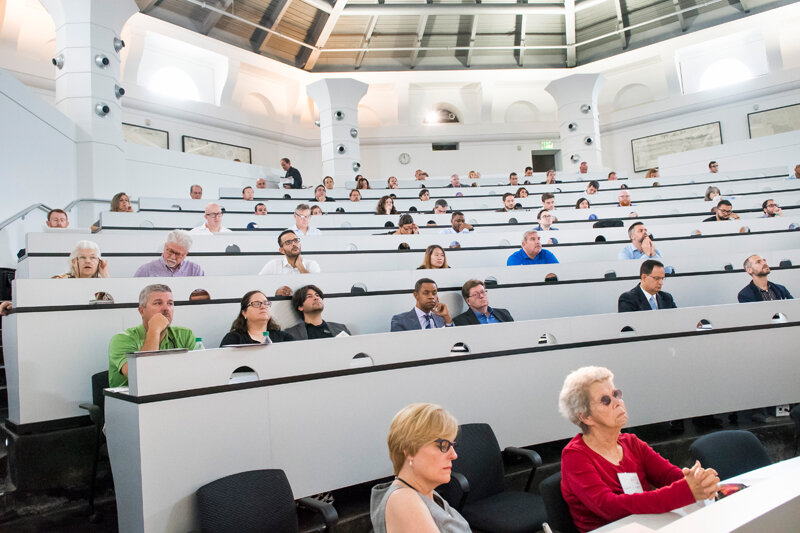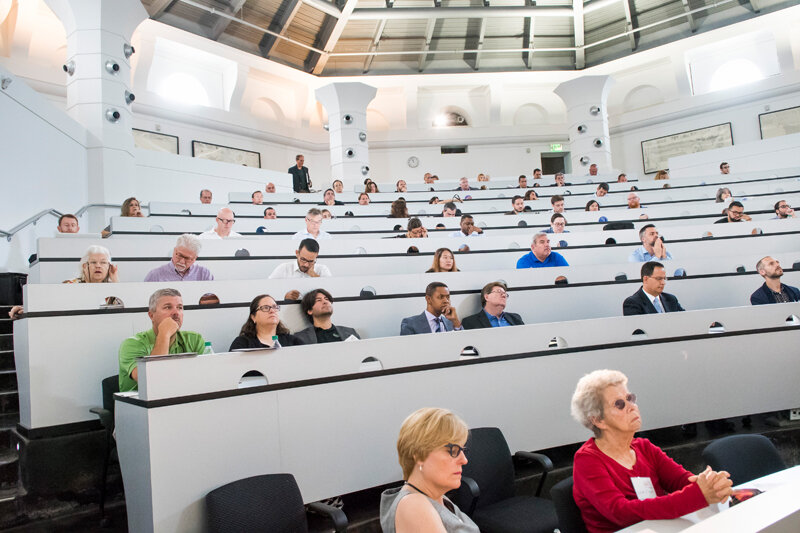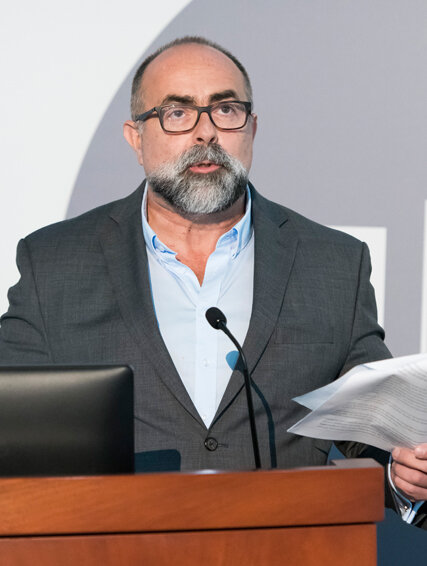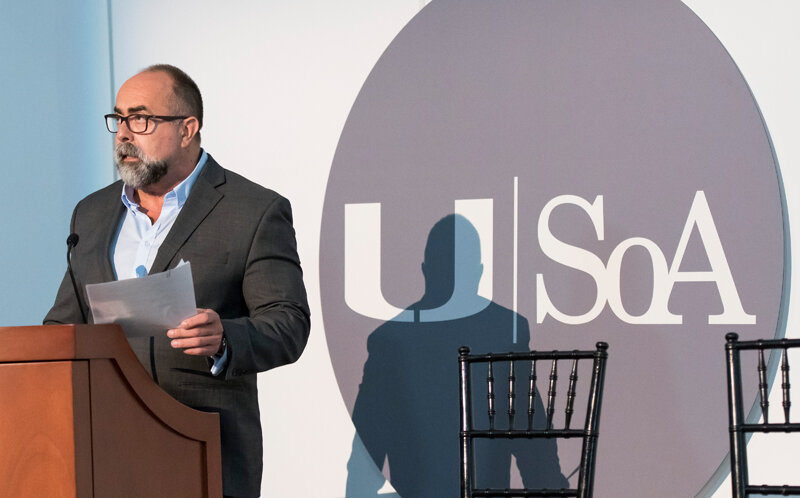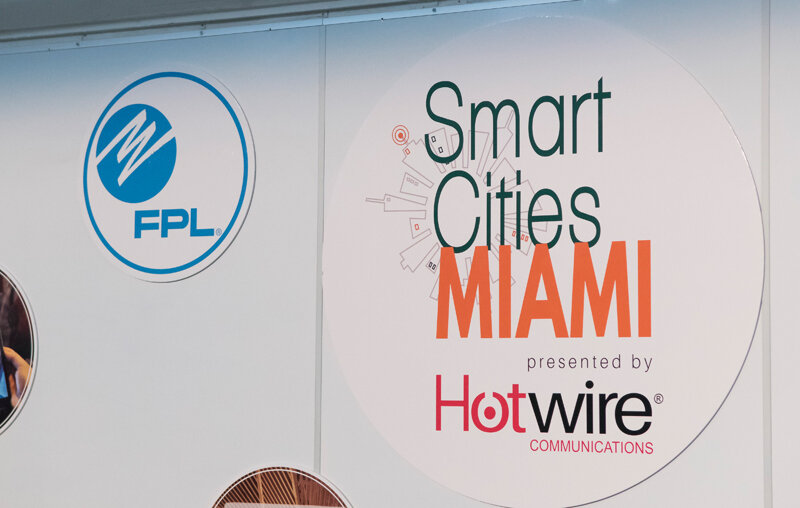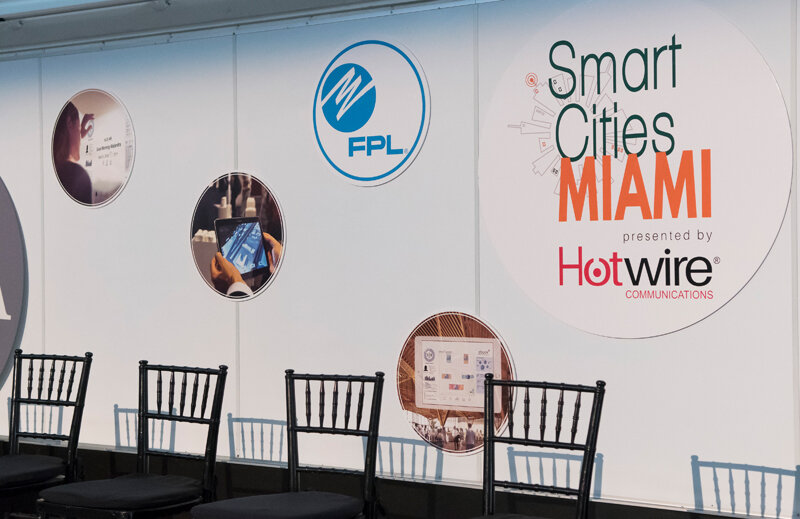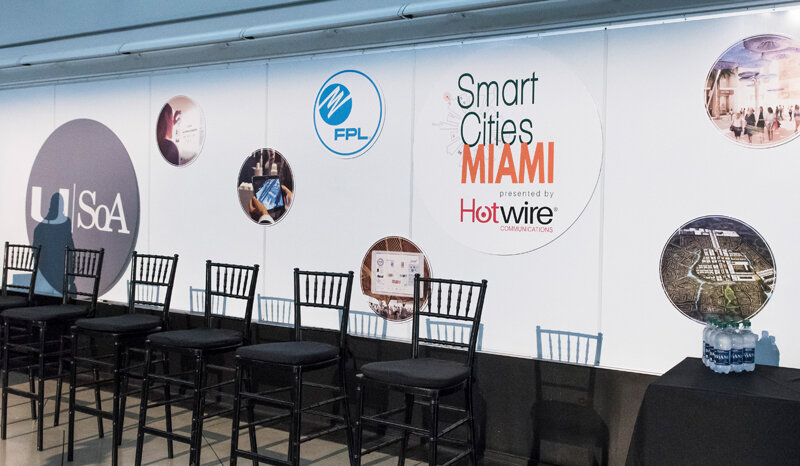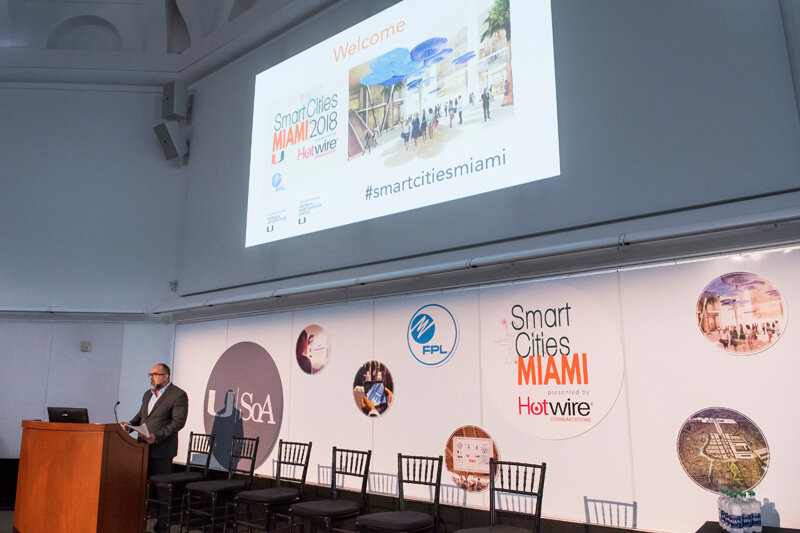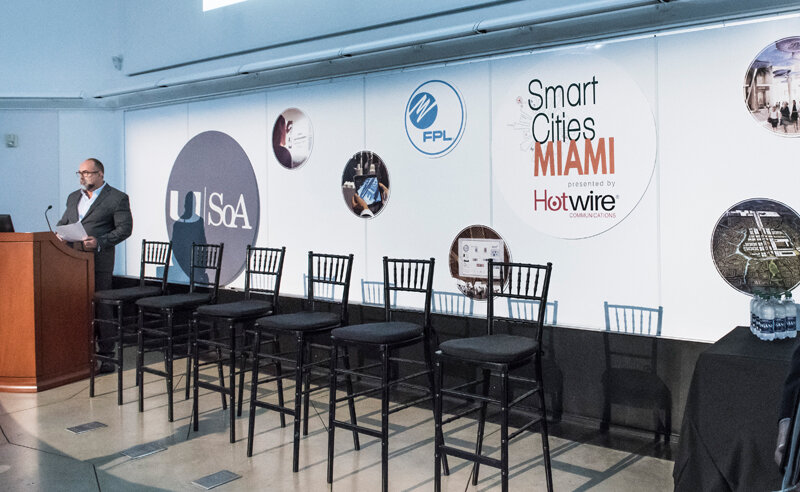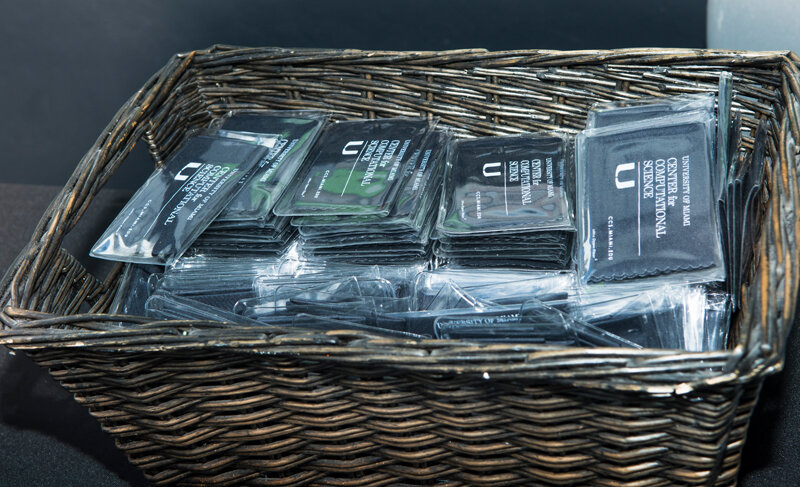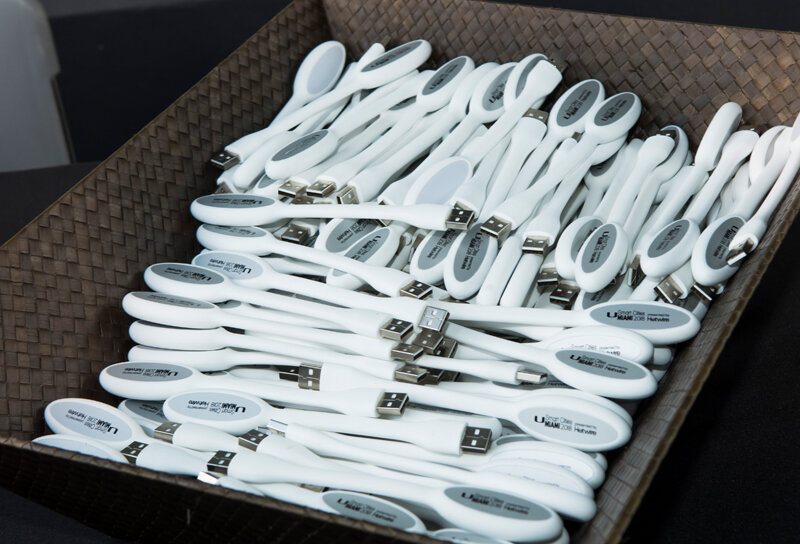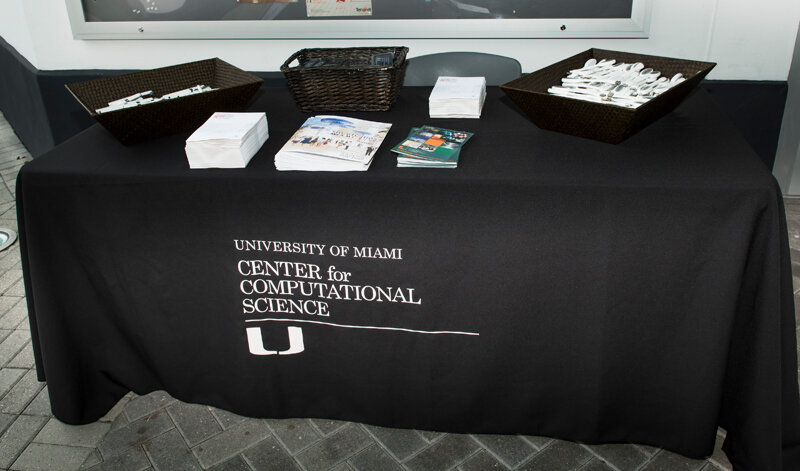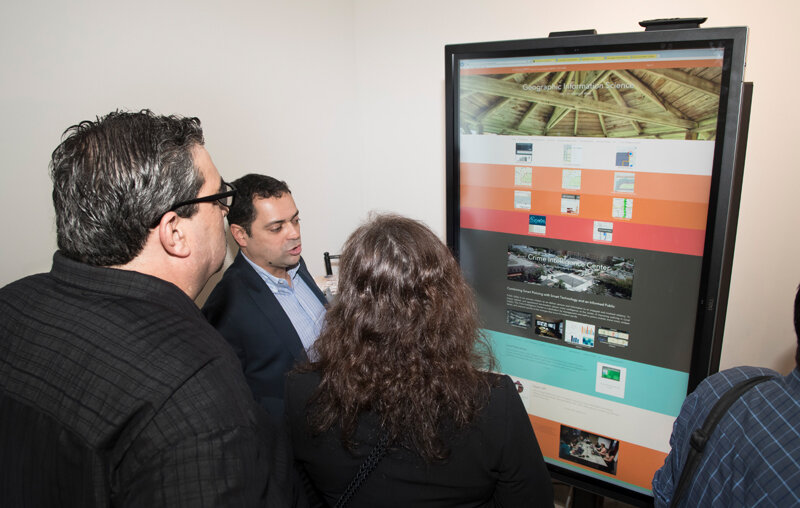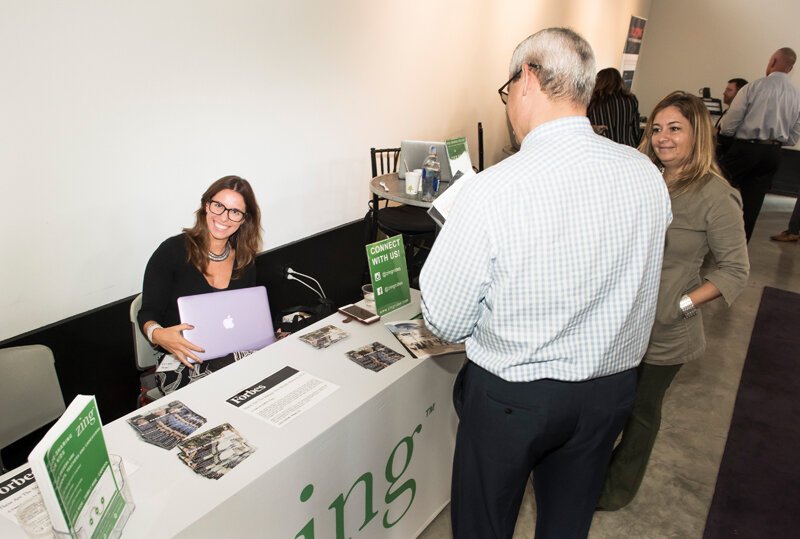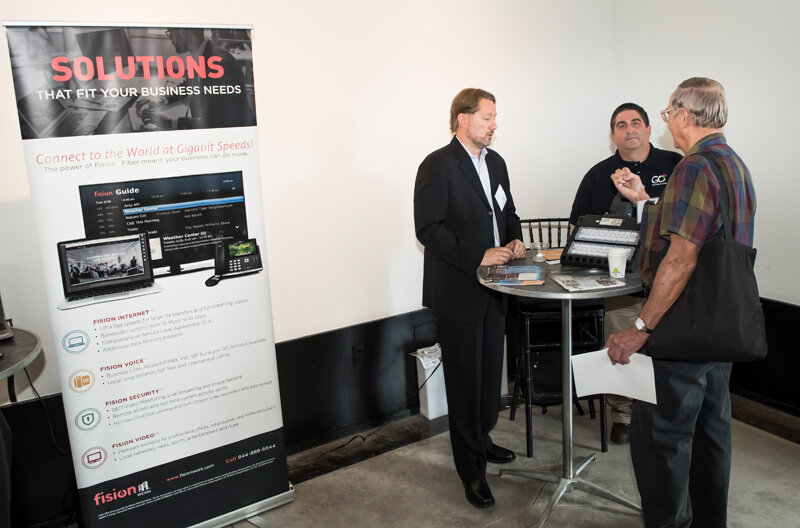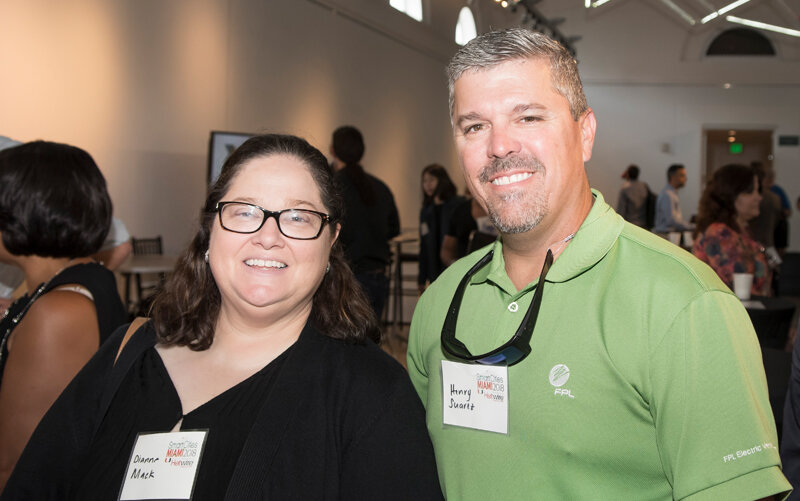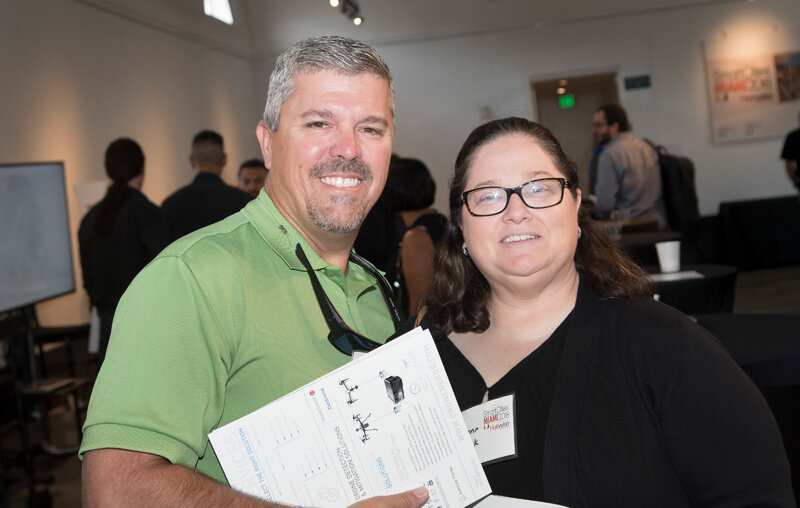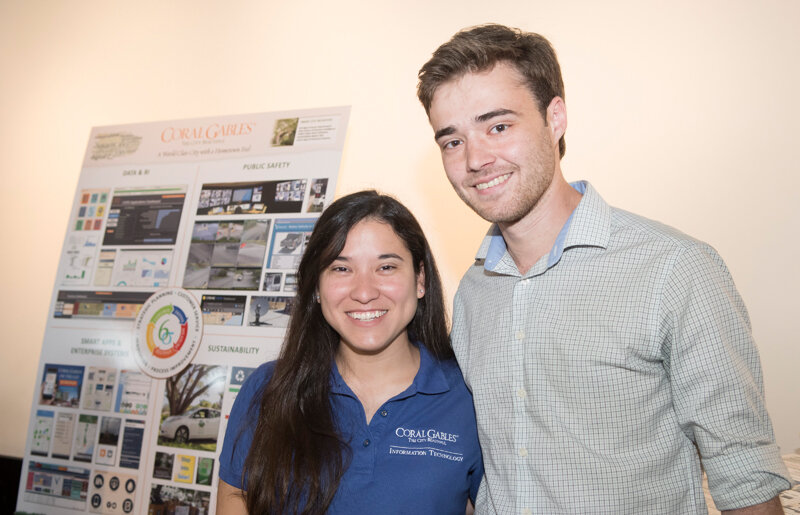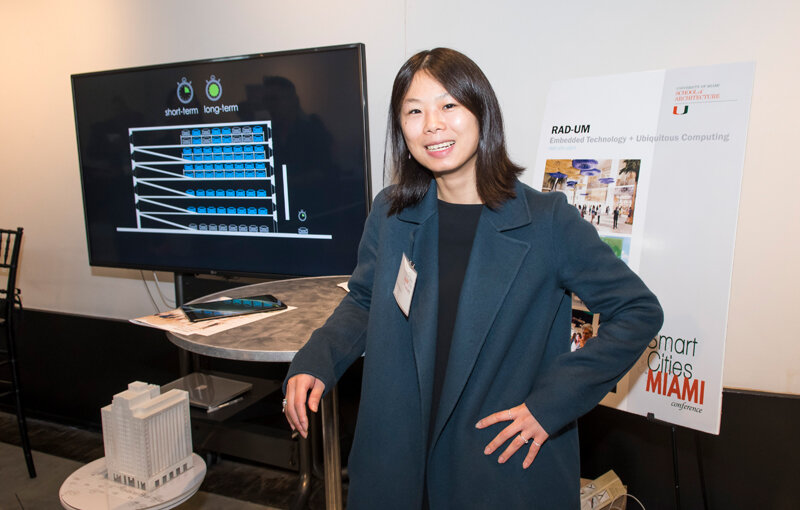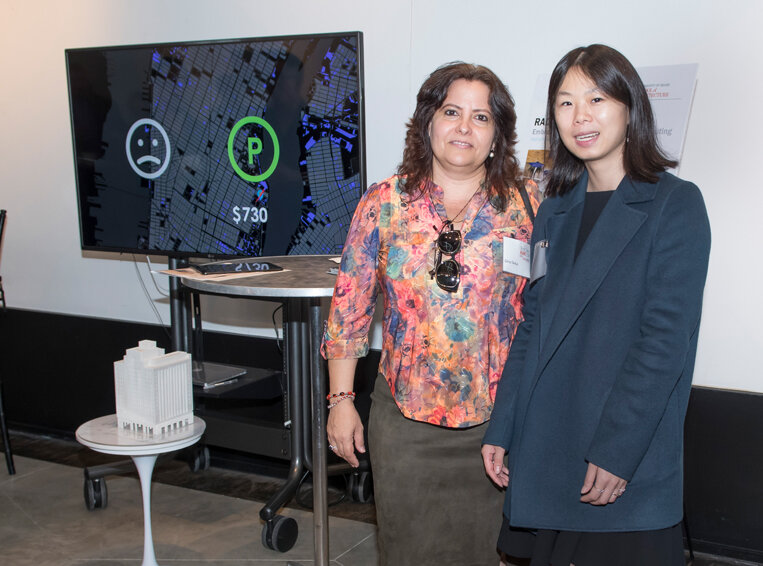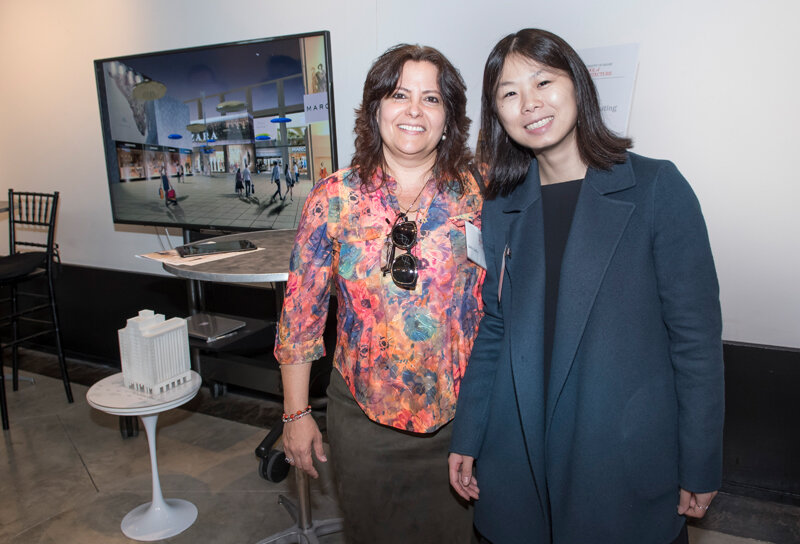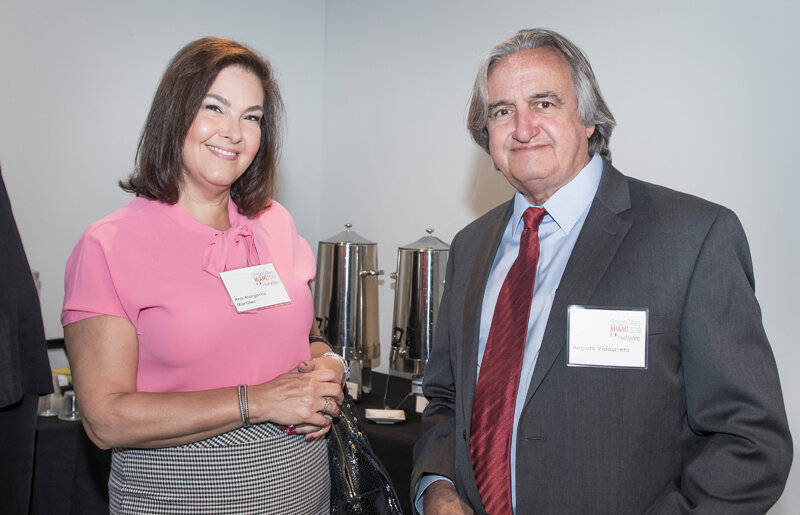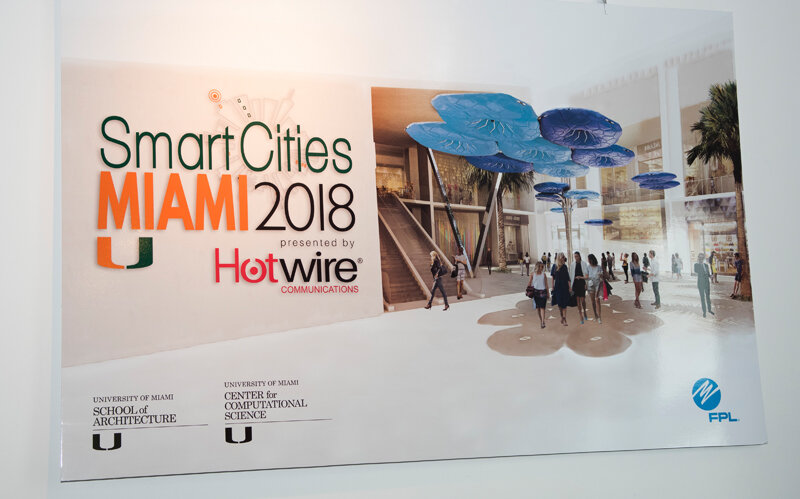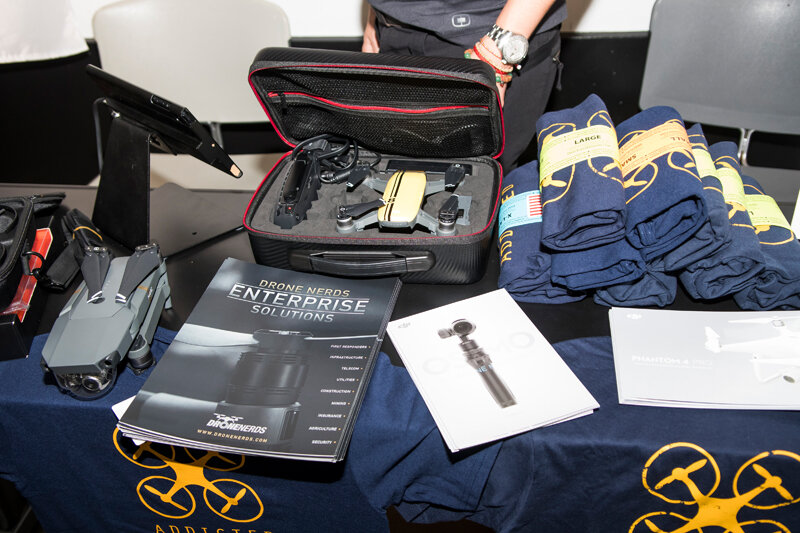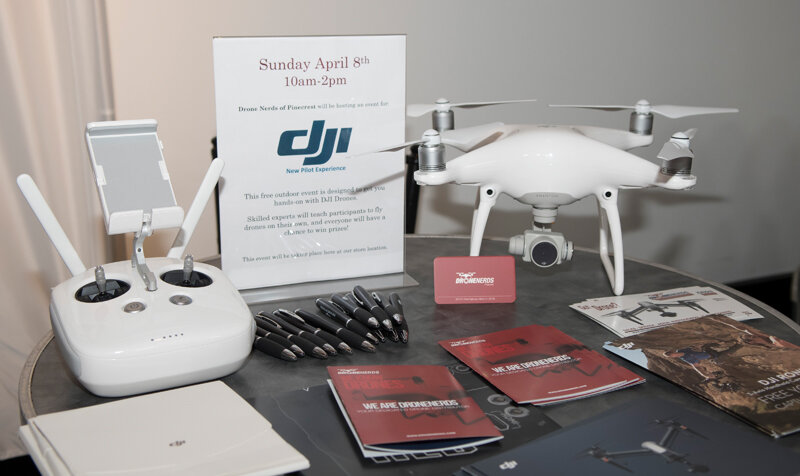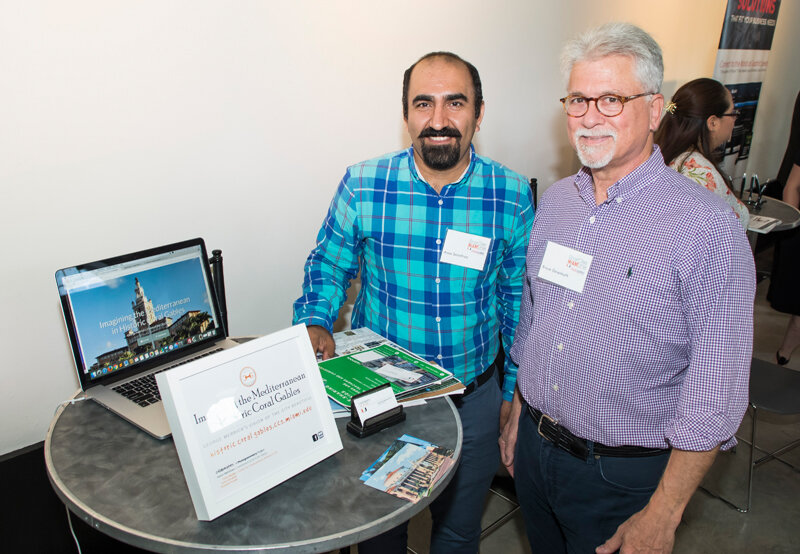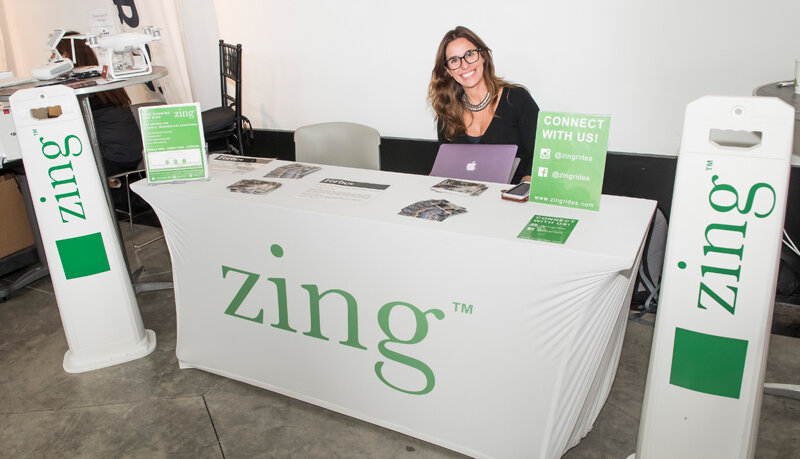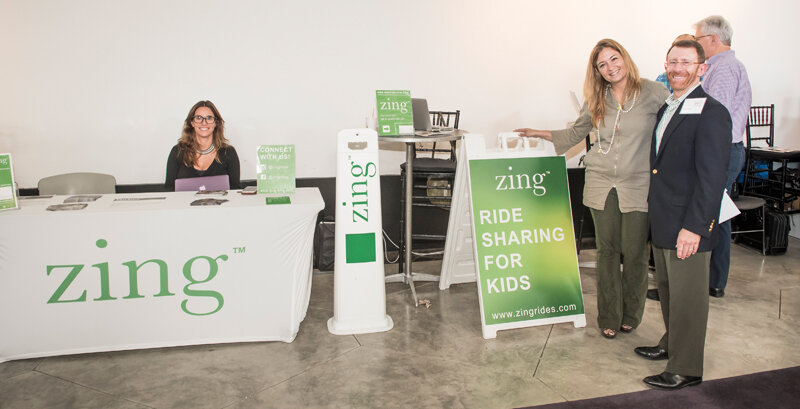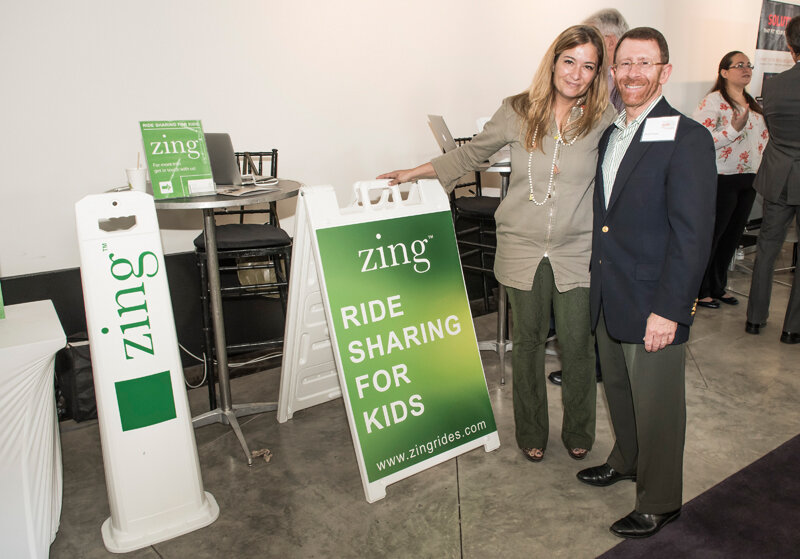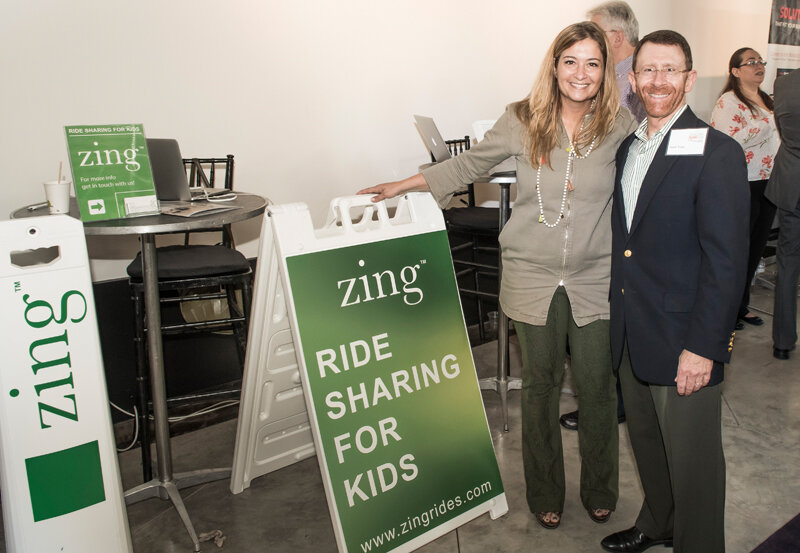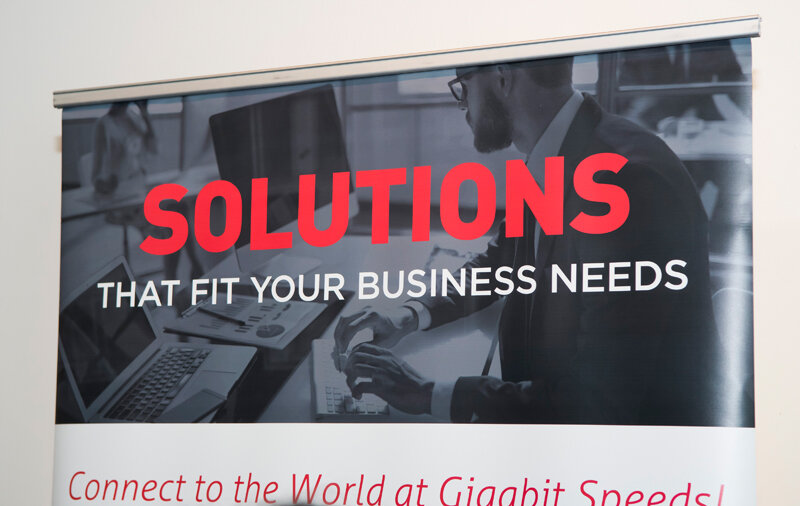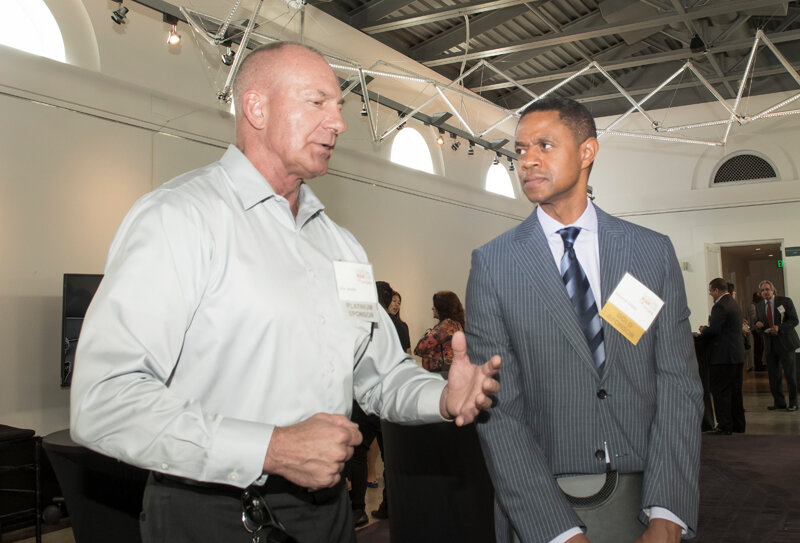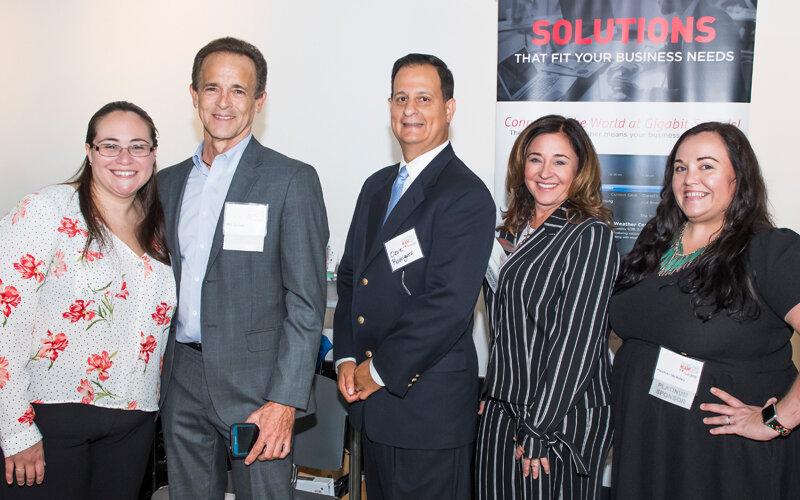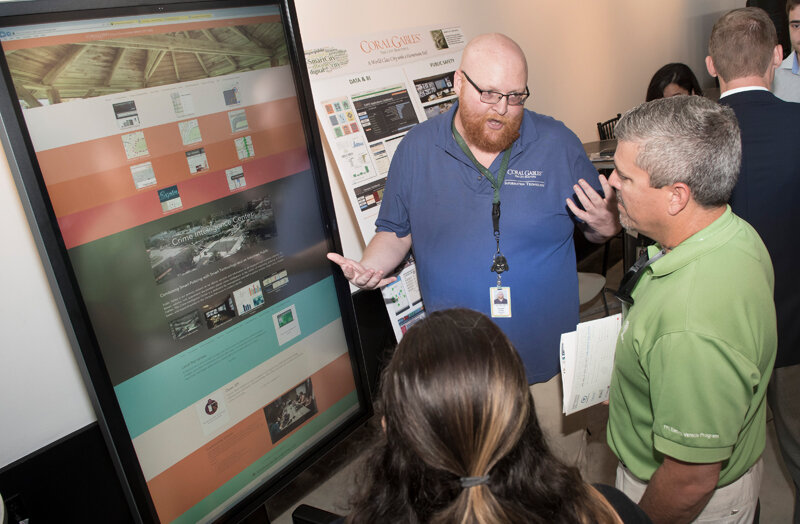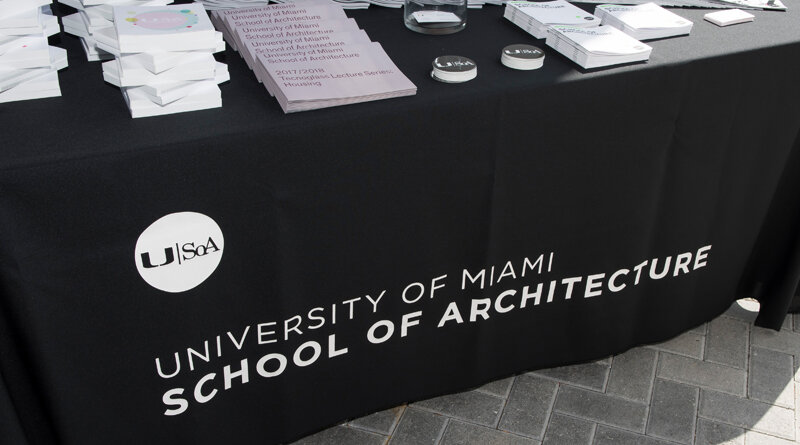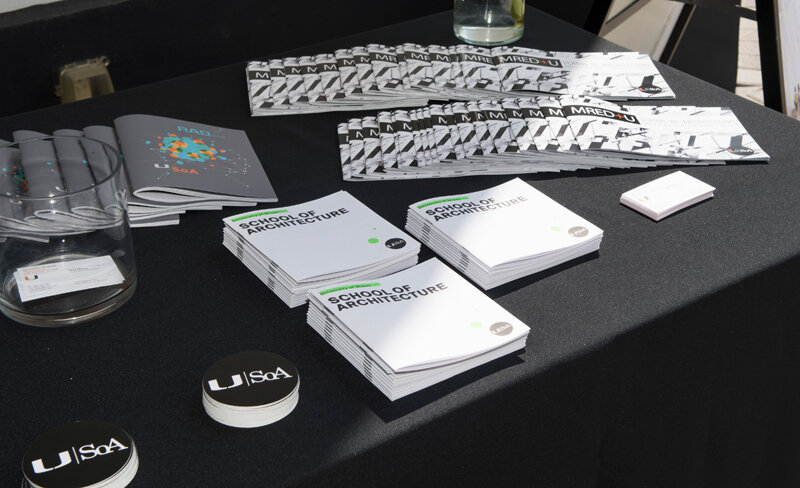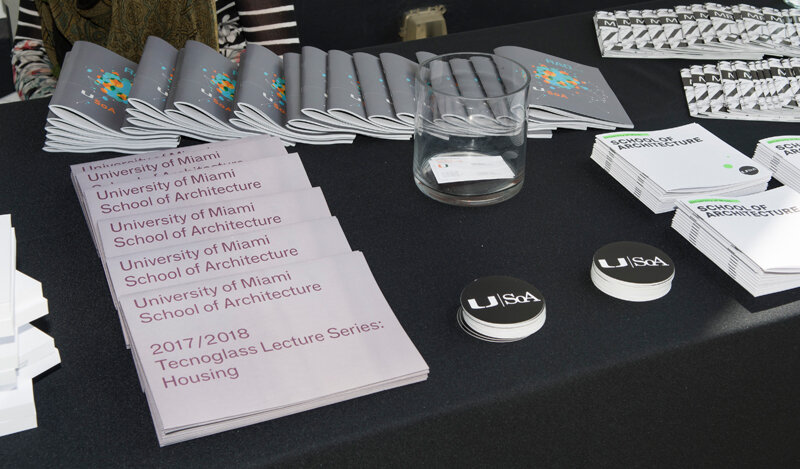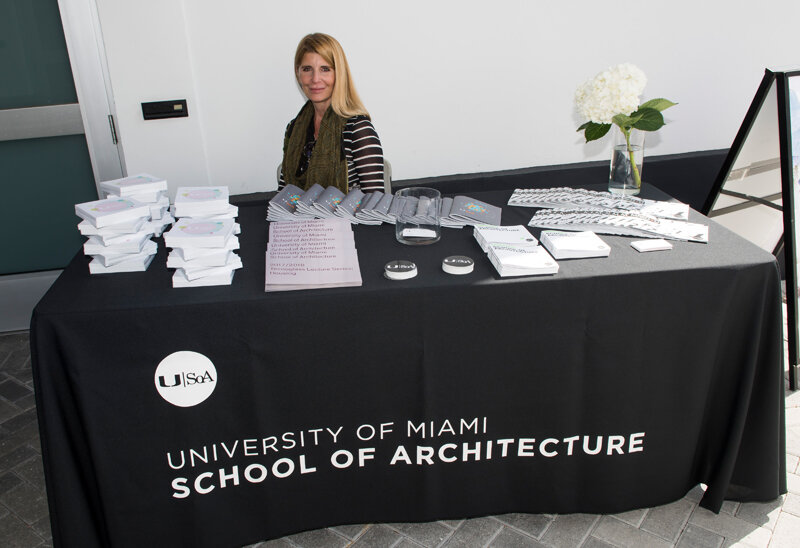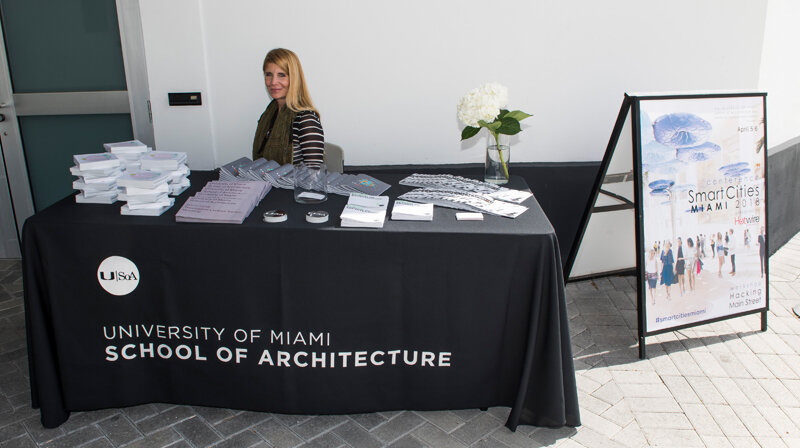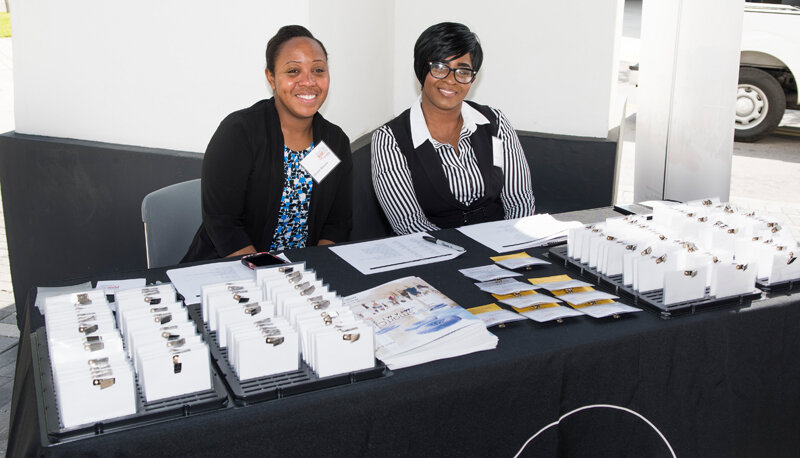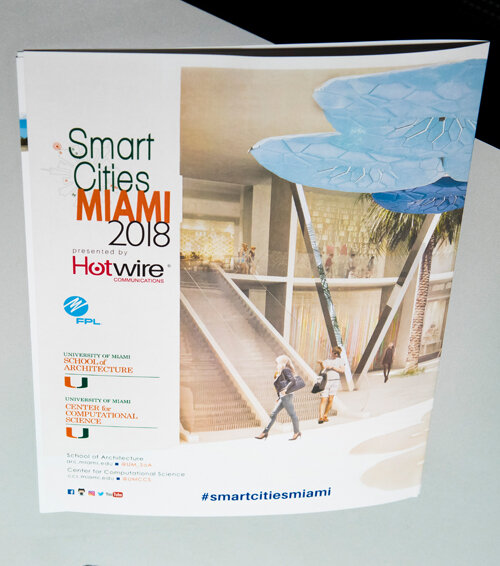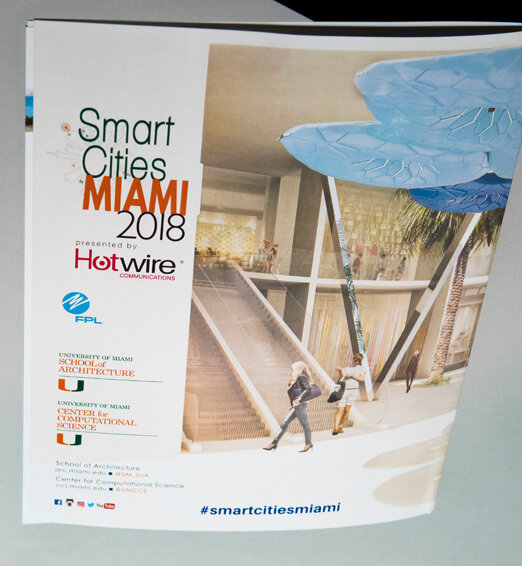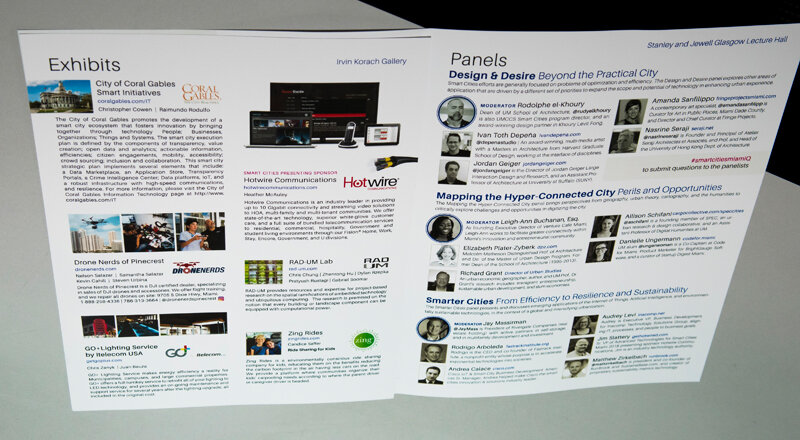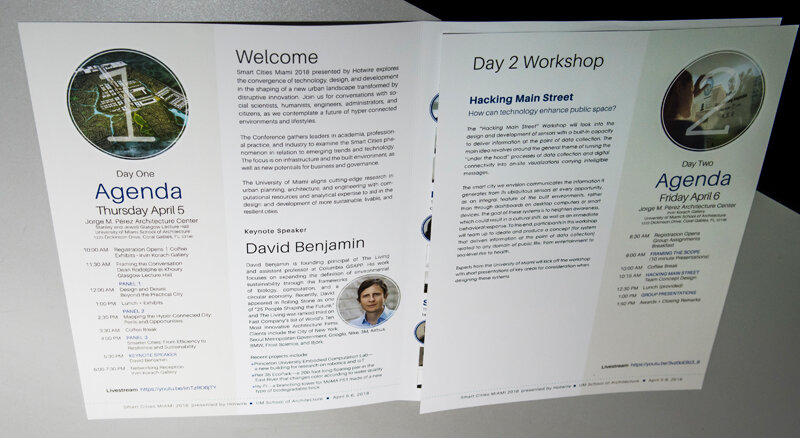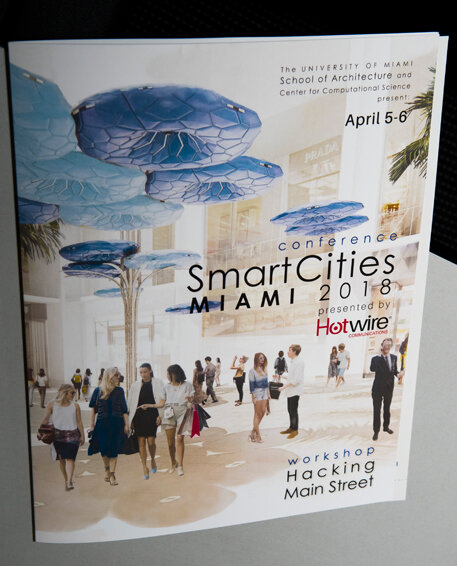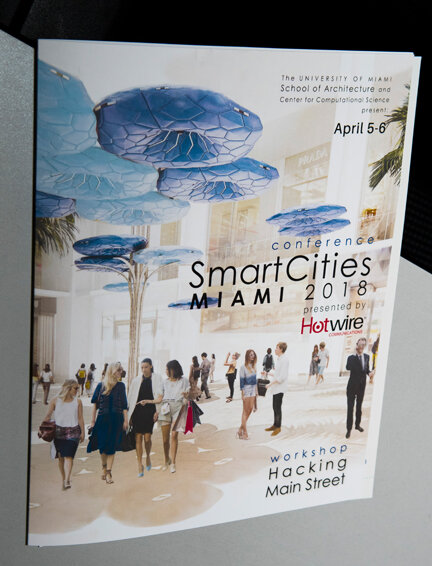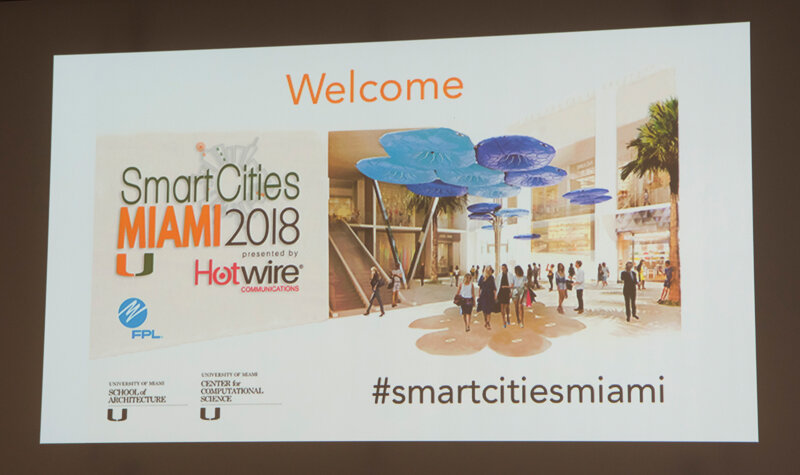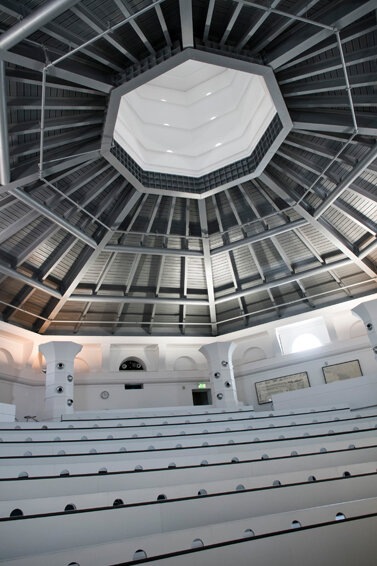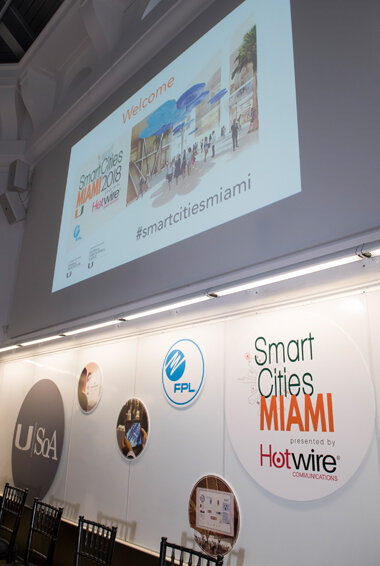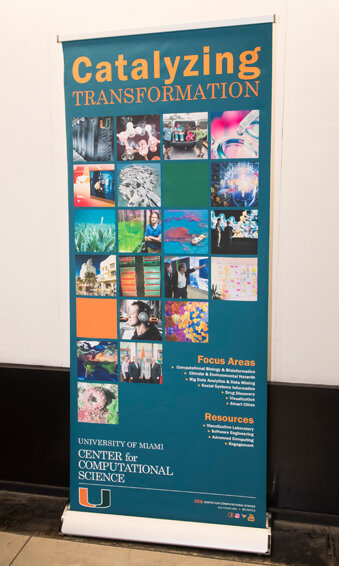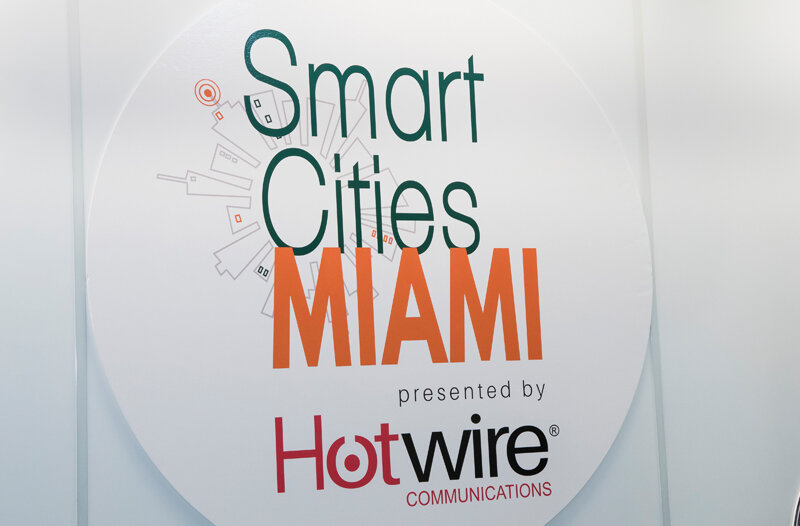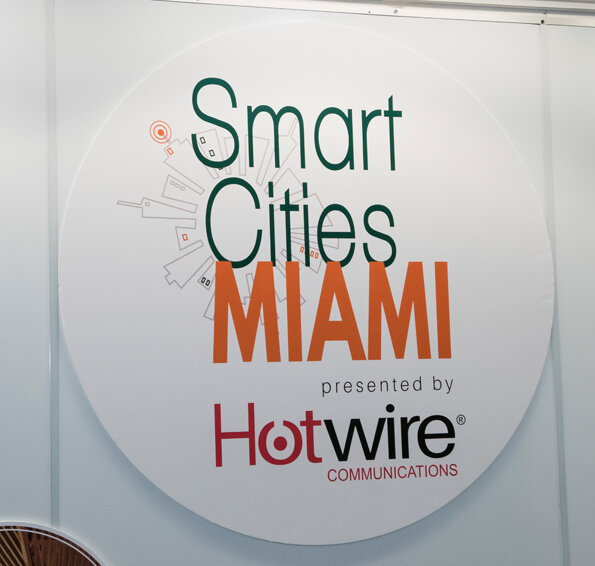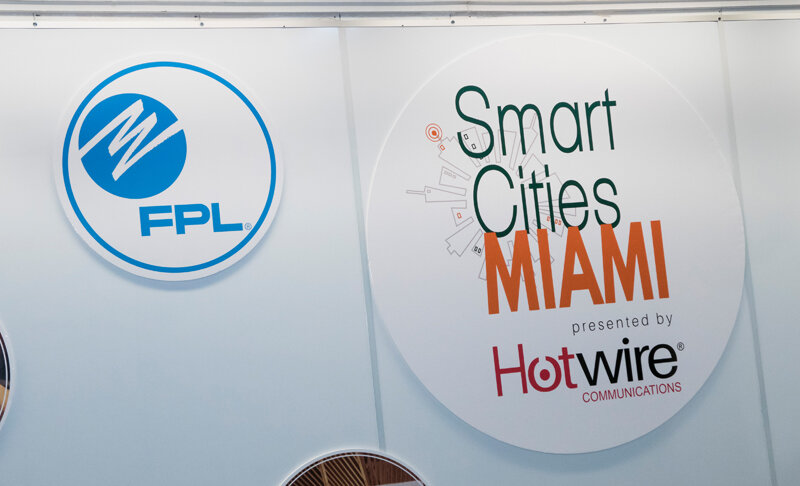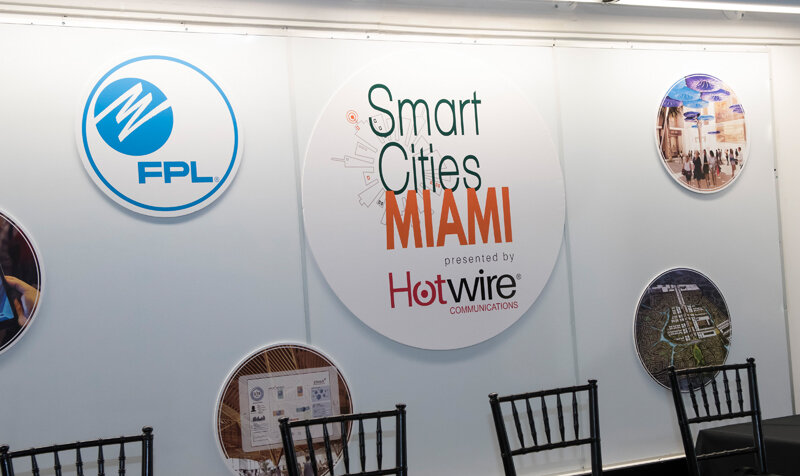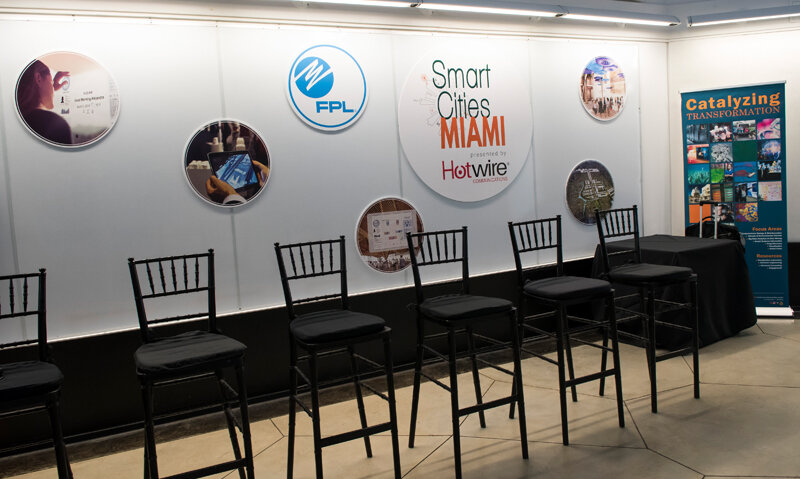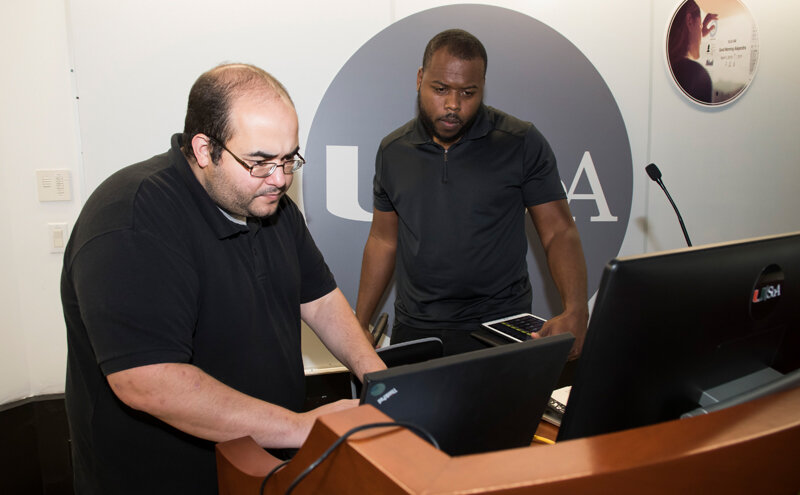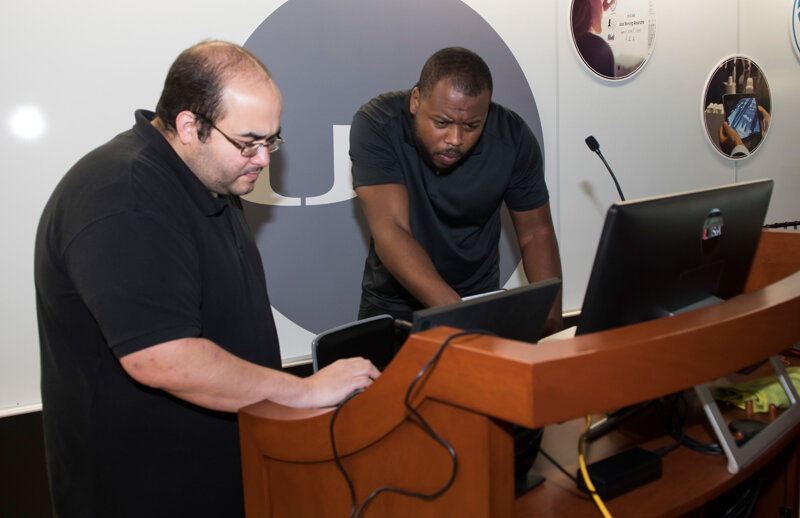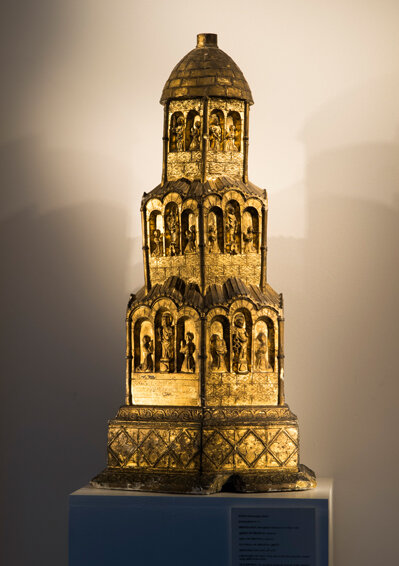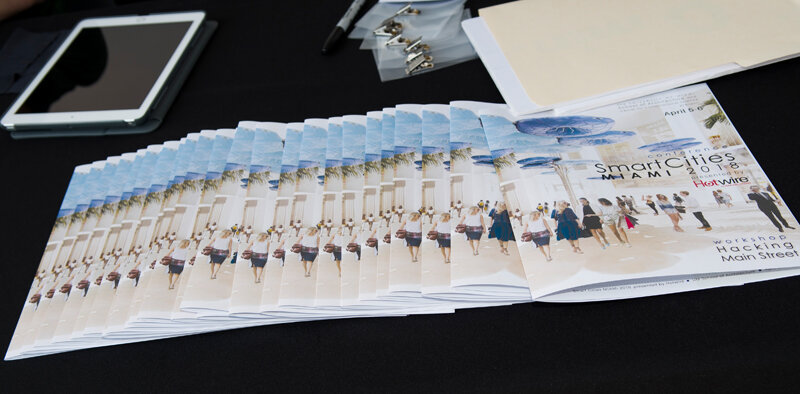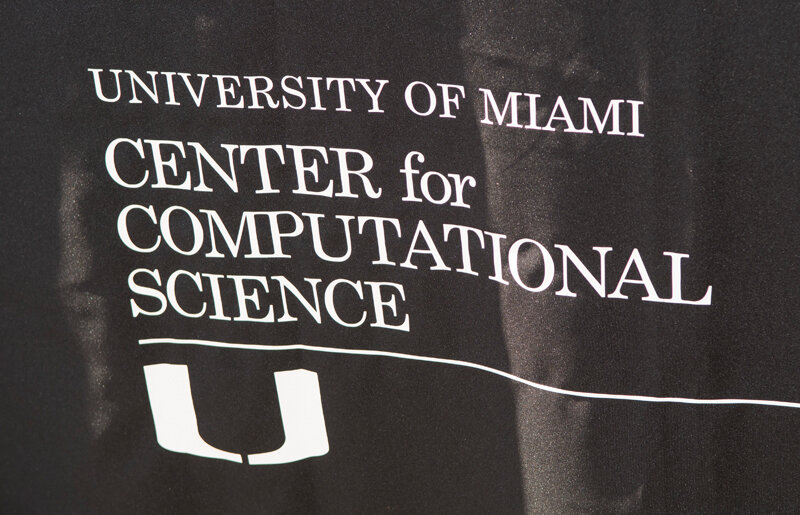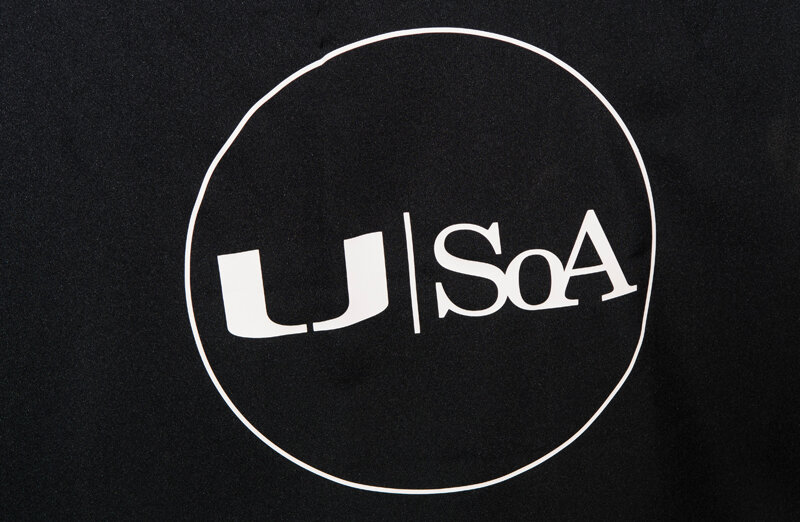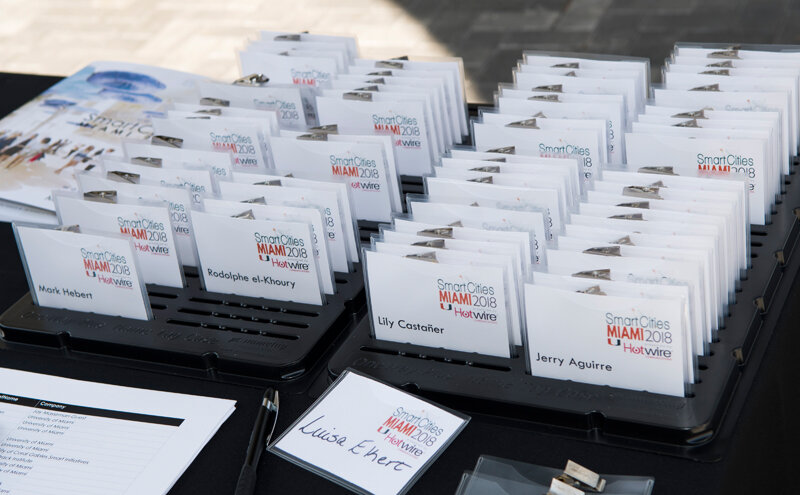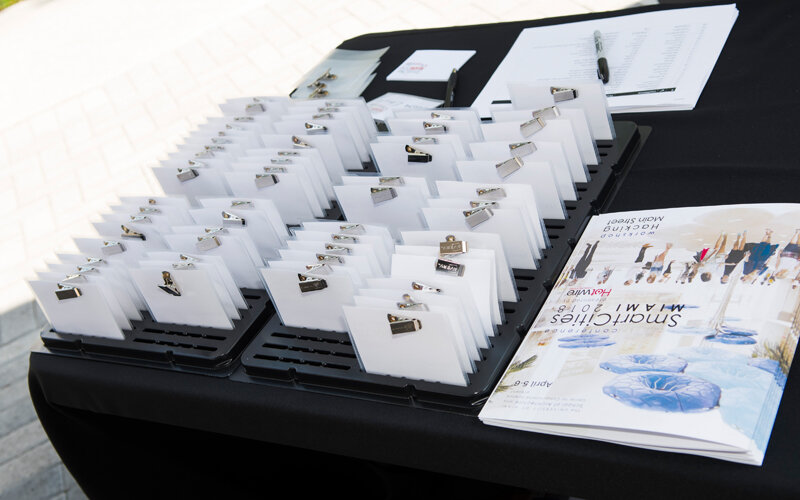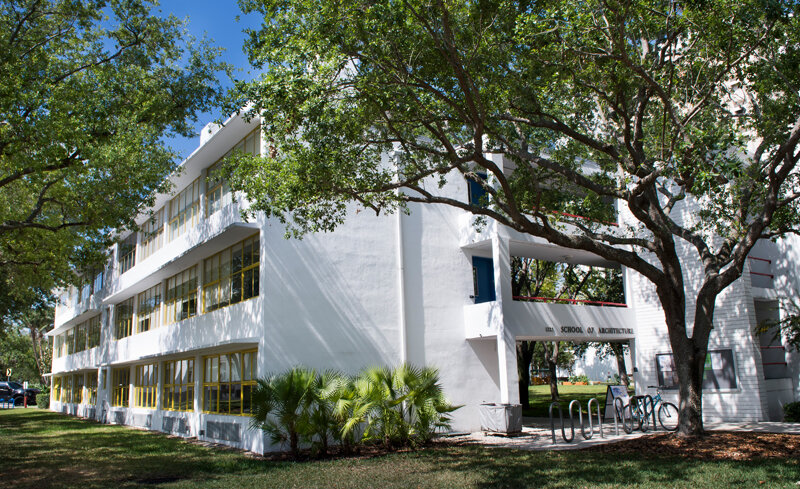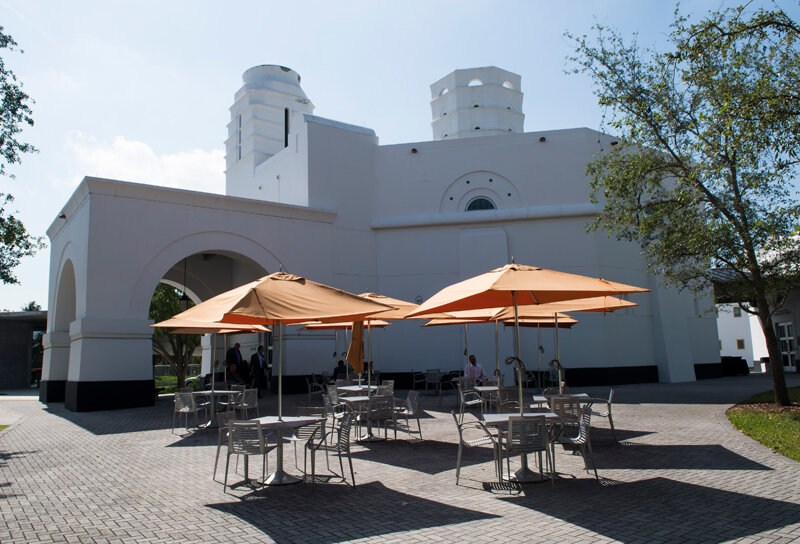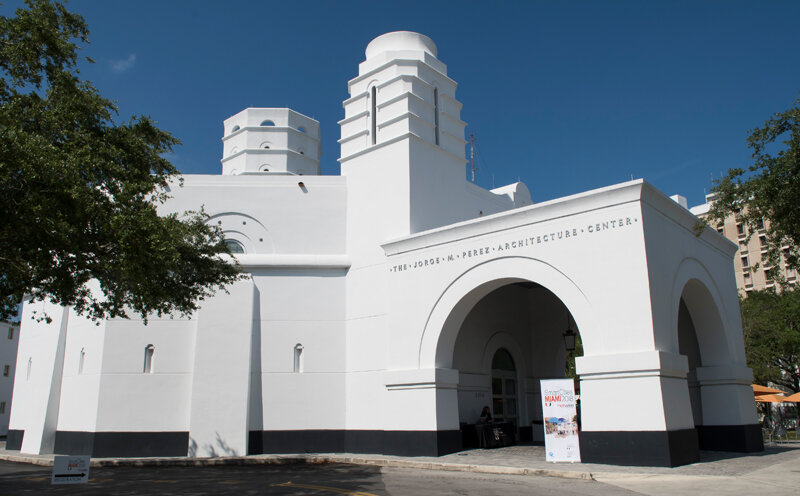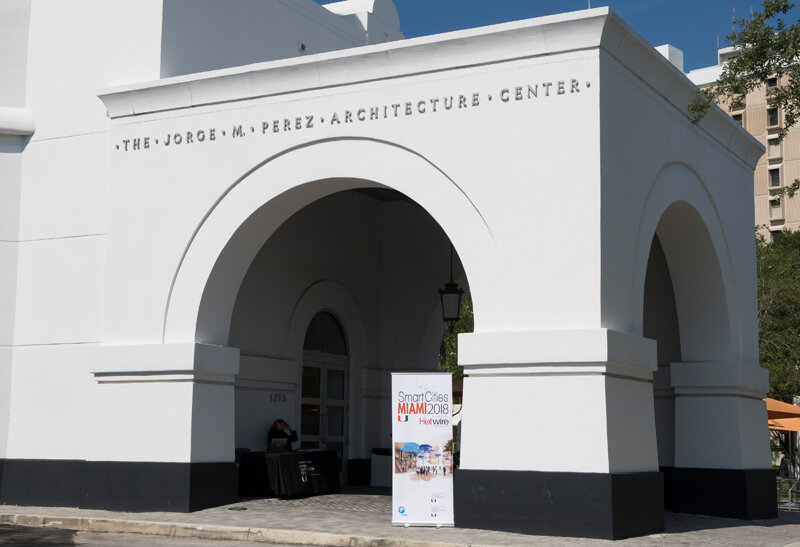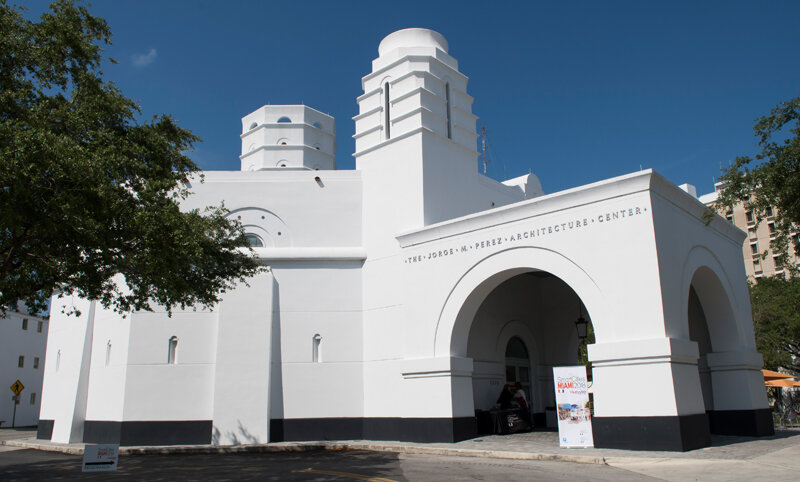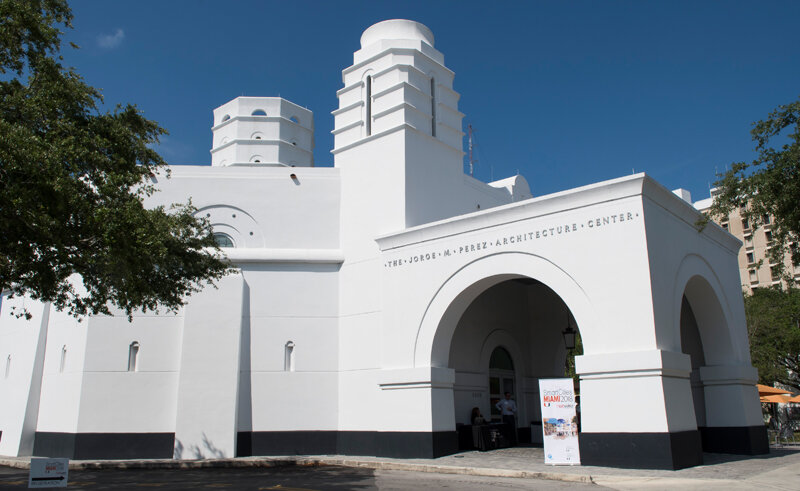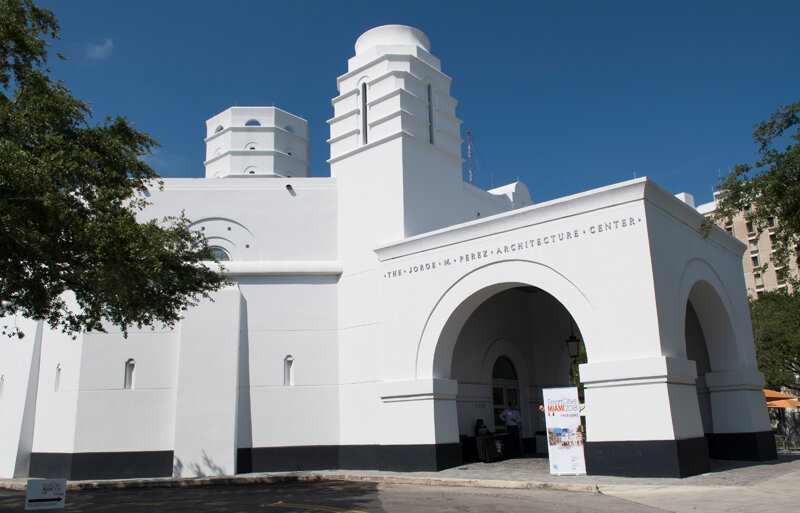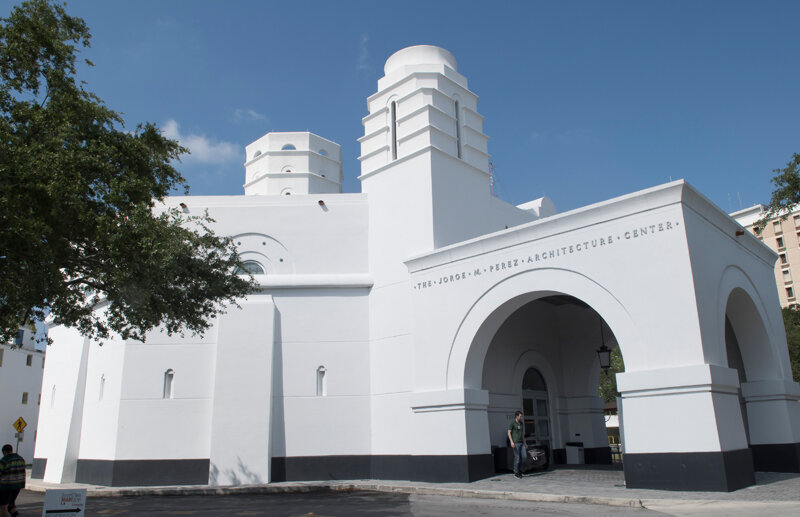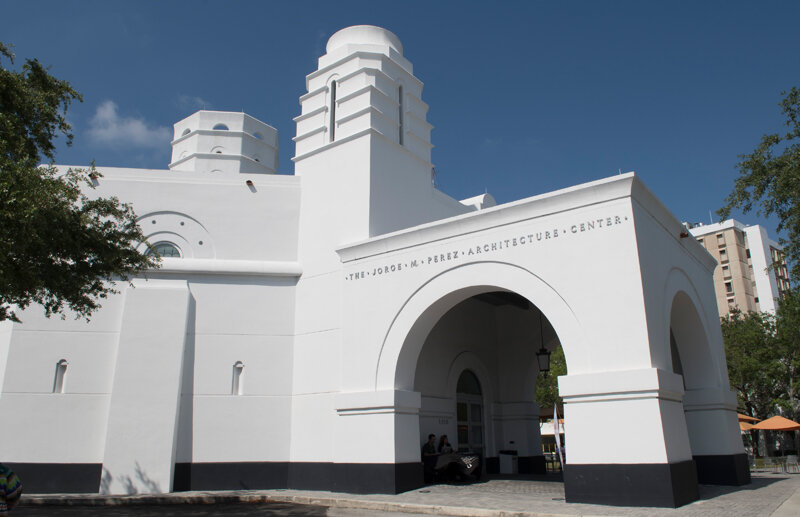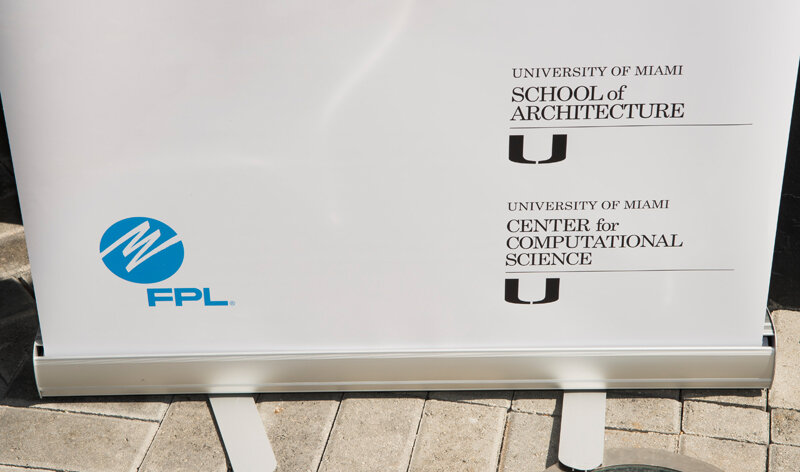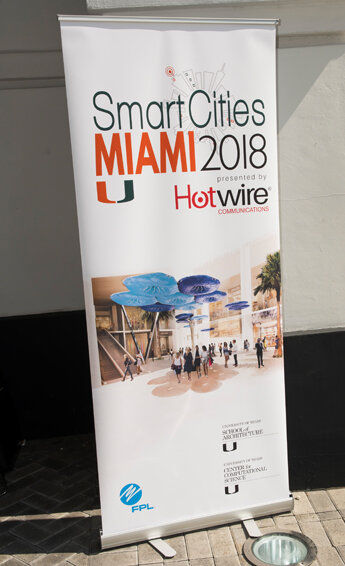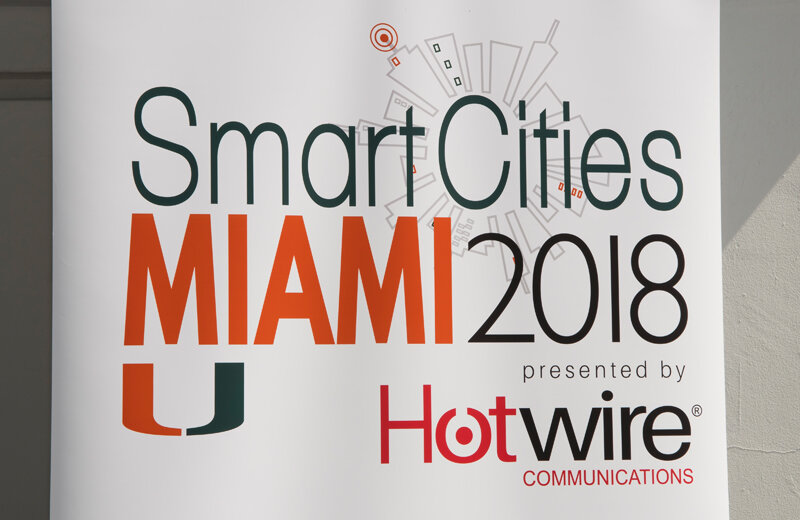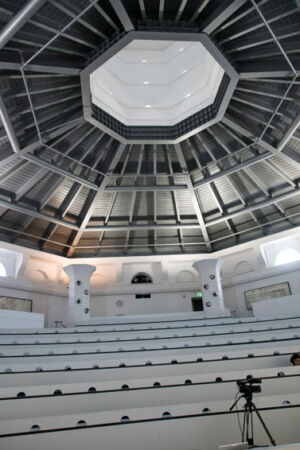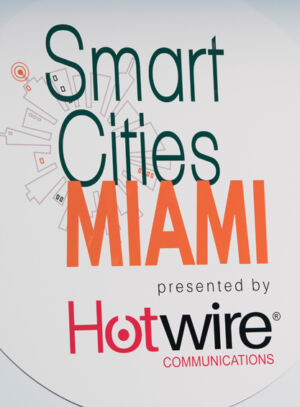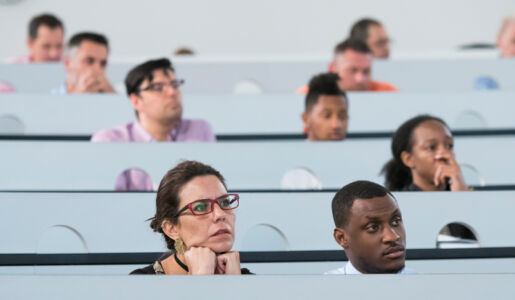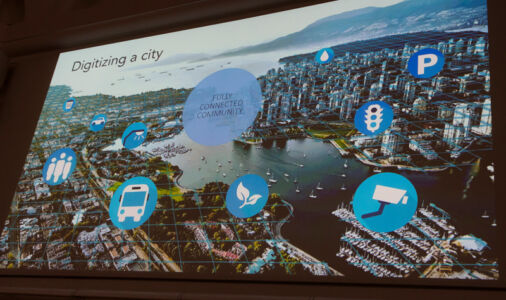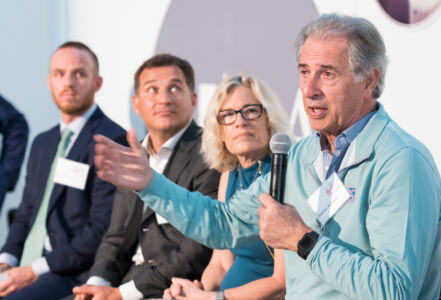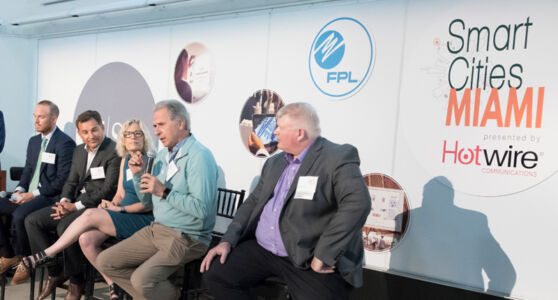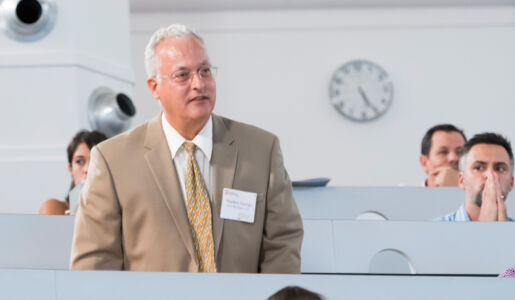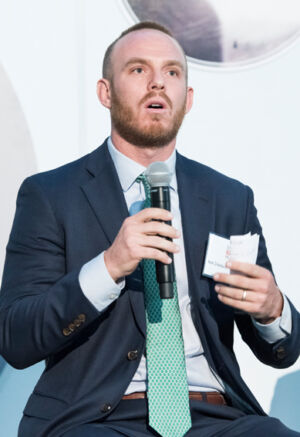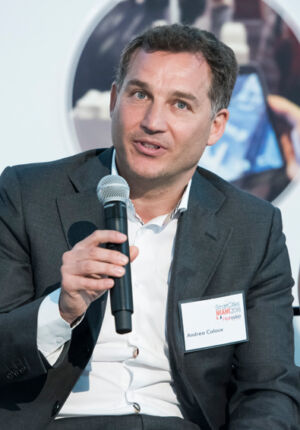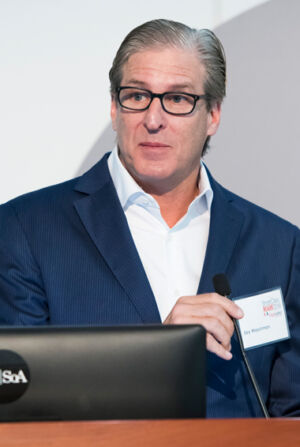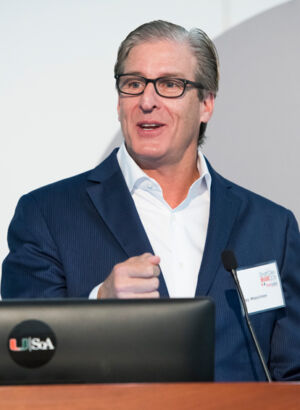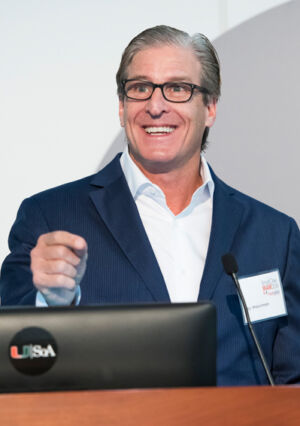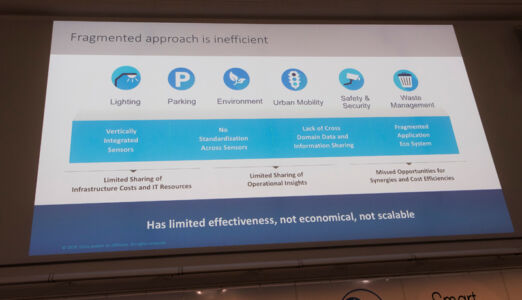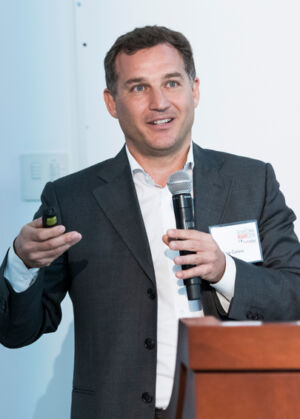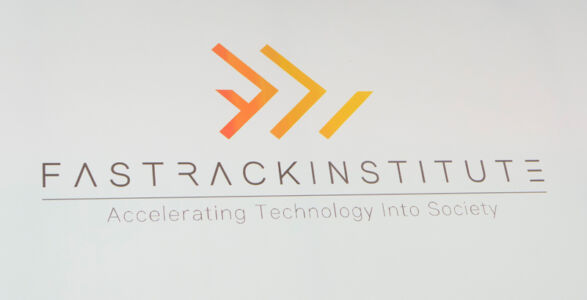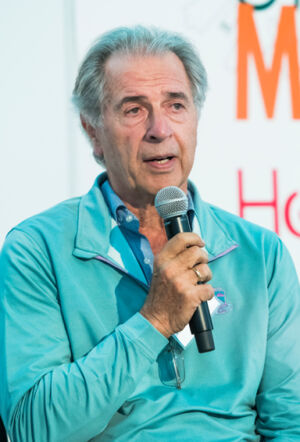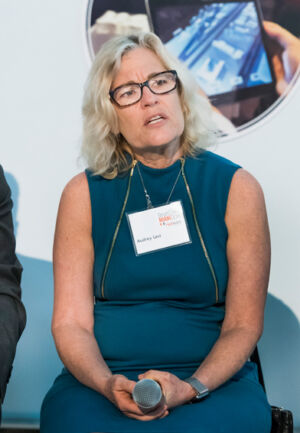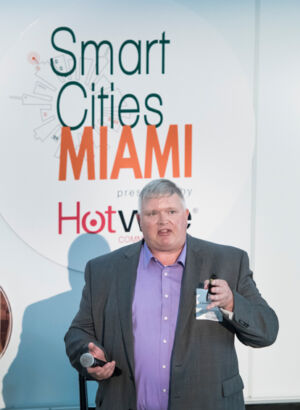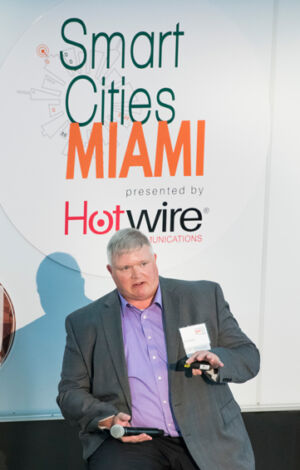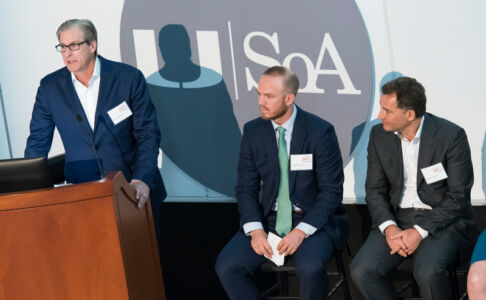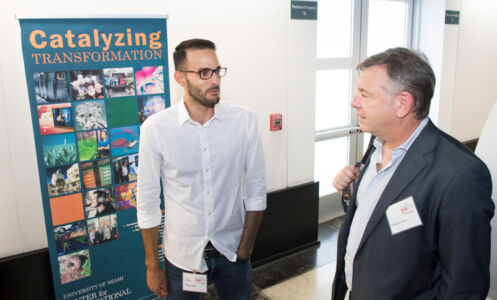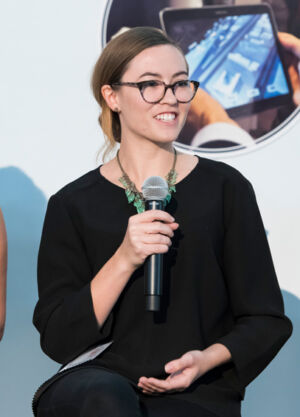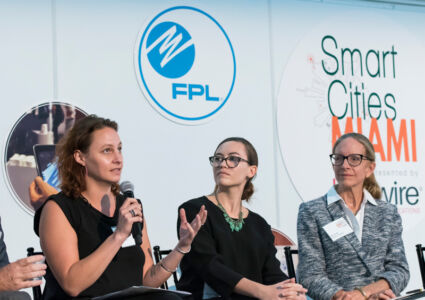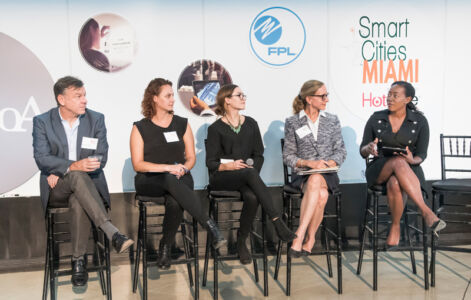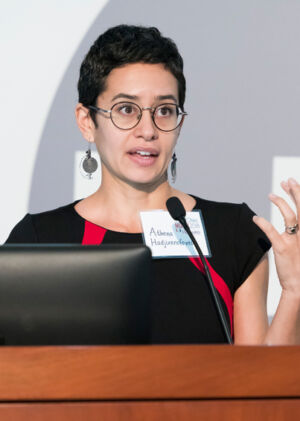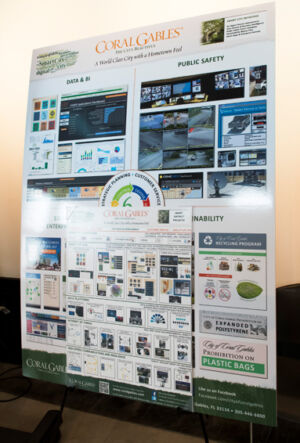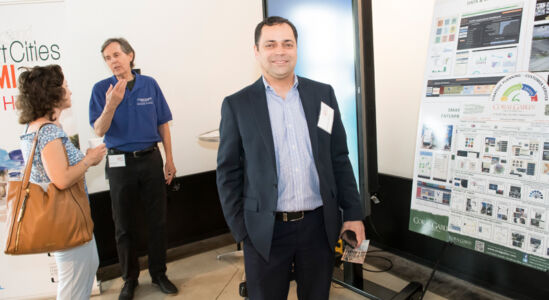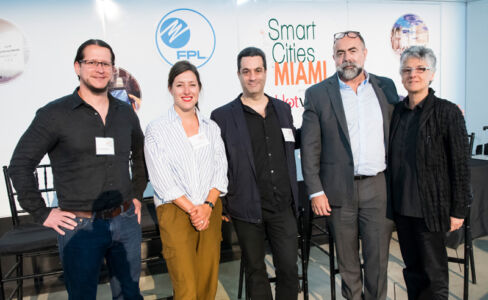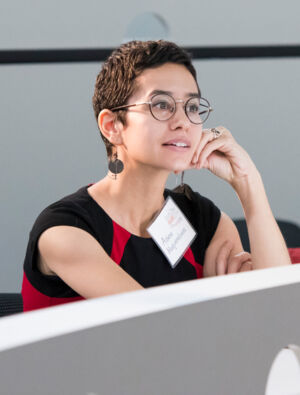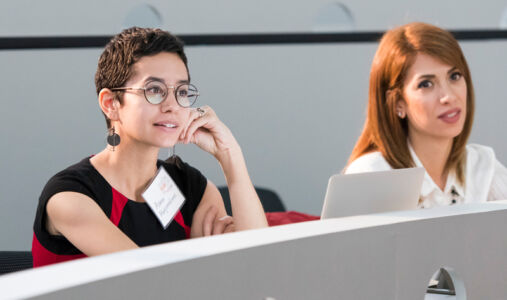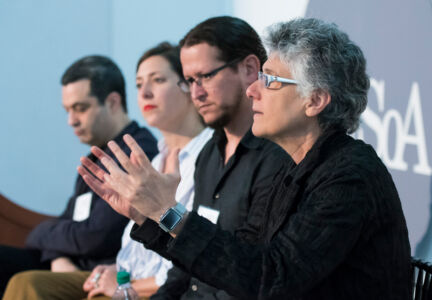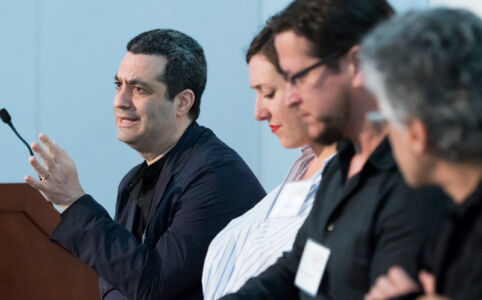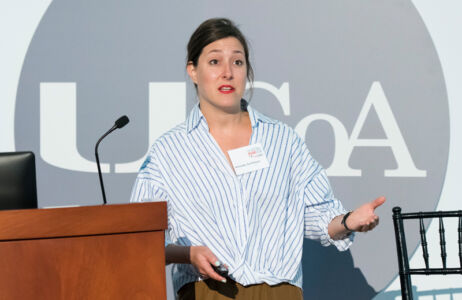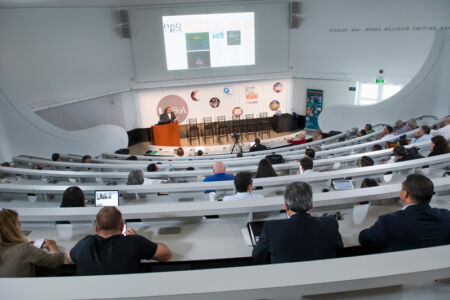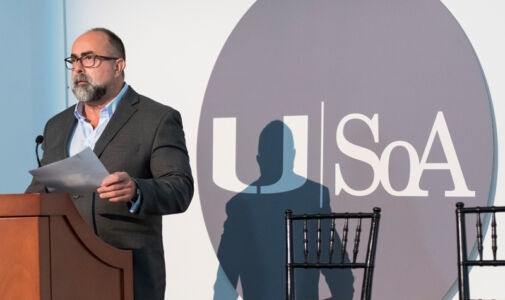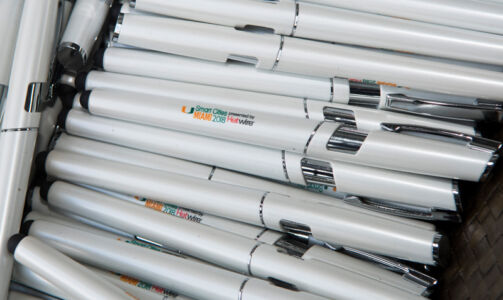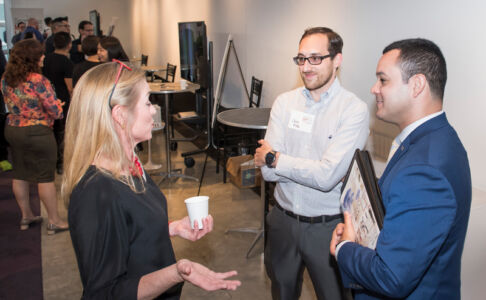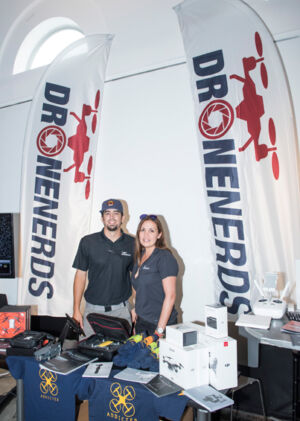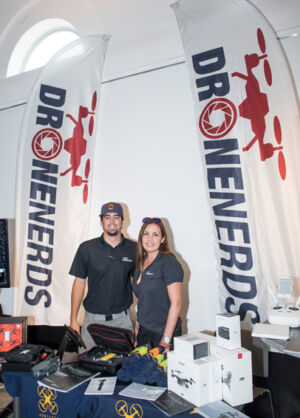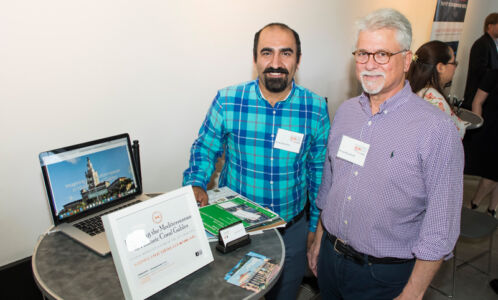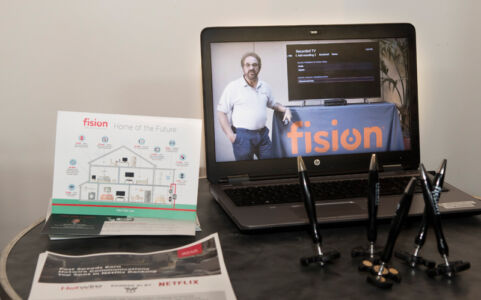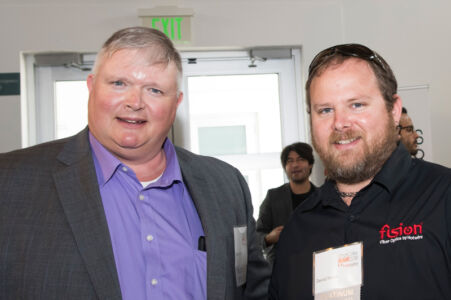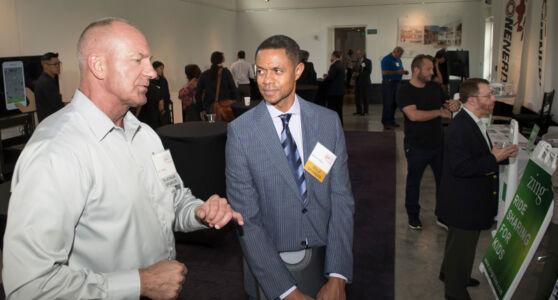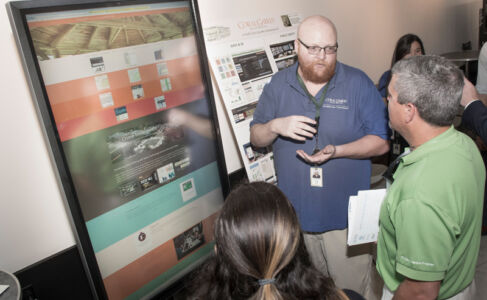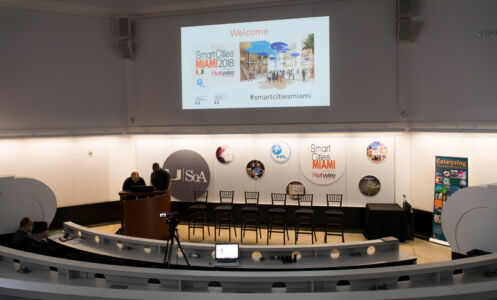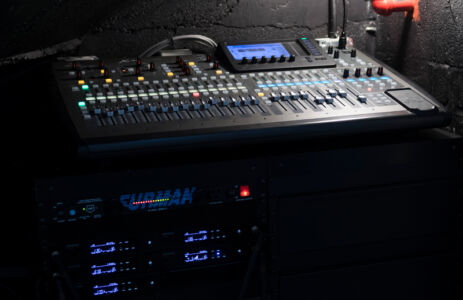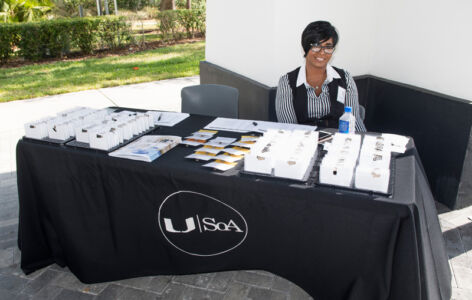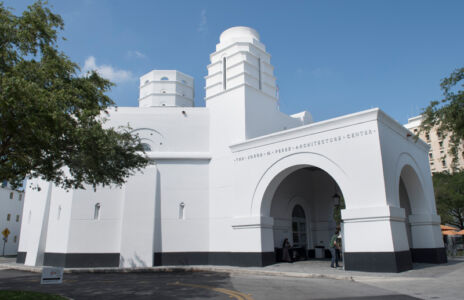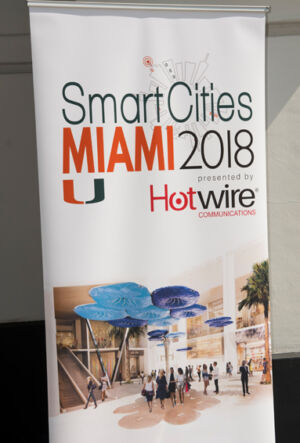
The 2nd annual Smart Cities Miami Conference (2018), presented by Hotwire Communications, explored the convergence of technology, design, and development in the shaping of a new urban landscape transformed by design innovation and disruptive technology.


The School of Architecture Dean RODOLPHE EL-KHOURY (partner Khoury Levit Fong) kicked off the event with a survey of ongoing activities in UM’s Smart Cities Program ranging from the mapping of informal settlements in Latin America with the help of digital technology to the design of a smart city in Mexico. “These projects position UM in the vanguard of the field and compel us to sustain with this annual conference, a public forum on smart cities,” said Dean el-Khoury who moderated Panel 1 Design and Desires: Beyond the Practical City featuring:
- AMANDA SANFILIPPO, Curator for Art in Public Places, Miami Dade County Department of Cultural Affairs and Director and Chief Curator of Fringe Projects;
- IVAN TOTH DEPENA, an artist (Depeña Studio) with a background in architecture specializing in technology-powered installations for public spaces;
- NASRINE SERAJI, Founder and Principal of Atelier Seraji Architectes et Associés and Head of the Department of Architecture, The University of Hong Kong; and
- JORDAN GEIGER, Assistant Professor of Architecture at SUNY Buffalo, and Director, Jordan Geiger Large Interaction Design and Research.
Panel 1 explored areas where city-making and technology align with motivations that exceed issues of optimization and efficiency. The panelists presented and discussed examples that expanded the scope of smart cities in enhancing urban environments and experience.

The afternoon session began with Panel 2 Mapping the Hyper-Connected City: Perils and Opportunities, which took a critical look at smart cities. It was moderated by LEIGH-ANN BUCHANAN, Founding Executive Director of Venture Café Miami, and featured:
- UM School of Architecture Dean Emeritus (1995-2013), Malcolm Matheson Distinguished Professor of Architecture, and Director of the Master of Urban Design Program ELIZABETH PLATER-ZYBERK, FAIA, LEED, AP (DPZ Partners);
- RICHARD GRANT, Professor and Urban Studies Director in the Department of Geography & Regional Studies (UM);
- ALLISON SCHIFANI, a founding member of SPEC, an urban research and design collaborative and Assistant Professor of Digital Humanities (UM Department of Modern Languages and Literatures); and
- DANIELLE UNGERMANN, Co-Captain at Code for Miami. The panel confronted and debated some challenging aspects of smart cities such as the erosion of privacy and surveillance, problems inherent to processes of quantification and rationalization, issues of power, control and exclusion.

The last panel and centerpiece of the conference Panel 3 Smart Cities: From Efficiency to Sustainability, discussed the potential of new technology in building more sustainable, fulfilling and equitable cities. Examples included developments in smart buildings and energy, participatory e-governance next-generation logistics and transportation. It was moderated by JAY MASSIRMAN, President of Rivergate Companies (Real Estate Holding), featuring:
- RODRIGO ARBOLEDa, CEO and Co-Founder of Fastrack Institute, a non-profit entity accelerating exponential technologies into societies;
- ANDREA CALECE, Cisco IOT & Smart City Business Development Americas Senior Manager;
- AUDREY LEVI, Executive VP, Business Development for Inacomp Technology Solutions Group, aligning IT, processes and people to business goals;
- JIM SLATTERY, Senior Vice President of Advanced Technologies for Smart Cities presenting sponsor Hotwire Communications, LLC, an industry technology authority; and
- MATTHEW ZIRKELBACH, President RunBrook and Co-Founder SustainaBase, creator of proprietary sustainability metrics technology.
 KEYNOTE SPEAKER The conference’s first day concluded with keynote speaker, David Benjamin, Founding Principal of The Living and Assistant Professor at Columbia University’s Graduate School of Architecture, Preservation, and Planning (Columbia GSAPP). He presented a variety of innovative projects that treat the city as a living organism with complex and interacting components. Generative design, enabled by computational infrastructure, fueled the creation of Mycelium-based building blocks designed to compost and disappear at the end of the building’s lifecycle. Generative algorithms enabled David’s group to design optimal solutions to problems ranging from sustainable and resilient building façades to ultra-lightweight and extra-stiff partitions for an Airbus aircraft.
KEYNOTE SPEAKER The conference’s first day concluded with keynote speaker, David Benjamin, Founding Principal of The Living and Assistant Professor at Columbia University’s Graduate School of Architecture, Preservation, and Planning (Columbia GSAPP). He presented a variety of innovative projects that treat the city as a living organism with complex and interacting components. Generative design, enabled by computational infrastructure, fueled the creation of Mycelium-based building blocks designed to compost and disappear at the end of the building’s lifecycle. Generative algorithms enabled David’s group to design optimal solutions to problems ranging from sustainable and resilient building façades to ultra-lightweight and extra-stiff partitions for an Airbus aircraft.
If you missed Day 1, you can watch it now on YouTube:
 DAY 2 WORKSHOP The Workshop on Day 2, “Hacking Main Street: How can technology enhance public space?” gathered teams of urban planners, architects, city officials, engineers, and students to design smart systems for The Underline, Miami’s 10-mile linear park and urban trail that follows the Metrorail. Participants worked in multidisciplinary teams after receiving guidance from workshop organizers on key considerations for designing for the Internet of Things, such as system connectivity, embedded technology, big data, and user experience. The multidisciplinary teams competed for a prize that recognized innovation, entrepreneurship, and offered an impressive range of ideas that transformed the linear park into a smart corridor. (Watch the video.)
DAY 2 WORKSHOP The Workshop on Day 2, “Hacking Main Street: How can technology enhance public space?” gathered teams of urban planners, architects, city officials, engineers, and students to design smart systems for The Underline, Miami’s 10-mile linear park and urban trail that follows the Metrorail. Participants worked in multidisciplinary teams after receiving guidance from workshop organizers on key considerations for designing for the Internet of Things, such as system connectivity, embedded technology, big data, and user experience. The multidisciplinary teams competed for a prize that recognized innovation, entrepreneurship, and offered an impressive range of ideas that transformed the linear park into a smart corridor. (Watch the video.)
Special Thanks
Presenting Sponsor Hotwire Communications
Gold Sponsor Florida Power & Light
Exhibitors
City of Coral Gables Smart Initiatives
Drone Nerds of Pinecrest
Emerald City
Fision by Hotwire Communications
GO+ Lighting Service by Itelecom USA
Historic Coral Gables
RAD-UM Lab
Zing Rides
SOURCE news.miami.edu
_____________________________
Smart Cities MIAMI 2018 program
Smart Cities Miami 2018 presented by Hotwire Communications explores the convergence of technology, design, and development in the shaping of a new urban landscape transformed by disruptive innovation. Join us for conversations with social scientists, humanists, engineers, administrators, and citizens, as we contemplate a future of hyper-connected environments and lifestyles.
Register for Day 1 | $30 per person
Registration and Exhibits open at 10:00 AM, with Introductions and Discussions beginning at 11:30, followed by Lunch. The Keynote Speaker will begin at 5:30 PM. A Networking Reception immediately follows (6:00-7:30 PM). Scroll down to see AGENDA.
Day 2 (8:30 AM-2:00 PM) is a free Smart Cities Workshop “Hacking Main Street: How can technology enhance public space?” with attendance by selection only.
Livestream Link:
April 5 – https://youtu.be/iinTzRO6jTY
LOCATION Jorge M. Perez Architecture Center (Lectures in Stanley and Jewell Glasgow Lecture Hall | Exhibits in Irvin Korach Gallery)
University of Miami School of Architecture, 1223 Dickinson Drive, Coral Gables, FL 33146 Parking Map | Directions
PARKING will be complimentary to all Day and Day 2 attendees in the 434-N lot behind the Watsco Center (yellow). Please print and display this PARKING PASS on your dashboard.
AGENDA
Day 1 April 5 | Conference Registration | $30 per person |
|
| 10:00 AM | Registration Opens + Exhibits | Coffee |
| 11:30 AM | Framing the Conversation | Dean el-Khoury |
| 12:00 PM | Panel 1 Design and Desire: Beyond the Practical City Smart Cities efforts are generally focused on problems of optimization and efficiency. The Design and Desire: Beyond the Practical City panel explores other areas of application that are driven by a different set of priorities to expand the scope and potential of technology in enhancing urban experience. |
| 1:00 PM | Lunch + Exhibits |
| 2:30 PM | Panel 2 Mapping the Hyper-Connected City: Perils and Opportunities The Mapping the Hyper-Connected City: Perils and Opportunities panel brings perspectives from geography, urban theory, cartography, and the humanities to critically explore challenges and opportunities in digitizing the city. |
| 3:30 PM | Coffee Break |
| 4:00 PM | Panel 3 Smarter Cities: From Efficiency to Resilience and Sustainability The Smarter Cities: From Efficiency to Resilience and Sustainability panel presents and discusses emerging applications of the Internet of Things, Artificial Intelligence, and environmentally sustainable technologies, in the context of a global and intensifying urbanization. |
| 5:30 PM | Keynote Speaker |
| 6:00-7:30 PM | Networking Reception + Exhibits |
Day 2 April 6 | Workshop Attendance by Selection only | Free |
|
|
|
“Hacking Main Street: How can technology enhance public space?”
Smart Cities Conference Miami 2018 presents the “Hacking Main Street” Workshop which will look into the design and development of sensors with a built-in capacity to deliver information at the point of data collection. The main idea revolves around the general theme of turning the “under the hood” processes of data collection and digital connectivity into on-site visualizations carrying intelligible messages. The smart city we envision communicates the information it generates from its ubiquitous sensors at every opportunity, as an integral feature of the built environments, rather than through dashboards on desktop computers or smart devices. The goal of these systems is to heighten awareness which could result in a cultural shift as well as an immediate behavioral response. To this end, participants in this workshop will team up to ideate and produce a concept (for system that delivers information at the point of data collection) related to any domain of public life, from entertainment to sea-level rise and health. Experts from the University of Miami will kick off the workshop with short presentations of key areas for consideration when designing these systems. |
| 8:30 AM | Registration and Continental Breakfast (groups indicated on your badge) |
| 9:00 AM | Framing the Scope: Presentations (10 minutes each) |
| 10:00 – 10:15 AM | Coffee Break |
| 10:15 AM | Hacking Main Street |
| 12:30 PM | Lunch (provided) |
| 1:00 PM | Presentations (5 groups, with 5 minutes each and 5 minutes for Q and switching presenters) |
| 1:50 – 2:00 PM | Award and Closing Remarks |
The Day 2 Workshop will be free, but interested attendees must register for a “selection” process to attend.
Smart Cities Miami 2018 presented by Hotwire Communications
KEYNOTE SPEAKER |
|
 |
|
PANELISTS | Day 1 |
|
PANEL 1 — Design and Desire: Beyond the Practical City |
|
 |
|
 |
Ivan Toth DepeñaArtist, Depeña Studio Ivan Toth Depeña is an artist who is currently living and working in Charlotte, NC. With a Masters Degree in Architecture from Harvard University’s Graduate School of Design, Depeña’s artistic production is informed by his experience in art, architecture, technology and design, and encompasses a range of media. Depeña pursues the intersection between different disciplines with the aim of choreographing the moment when these aspects come together seamlessly. Using traditional avenues such as drawing, painting and sculpture then interweaving interactivity/responsiveness, video, light and high-tech methods of fabrication, Depeña explores the fine line between chance and intention. Depeña has been working increasingly in the public realm and maintains a rigorous and experimental, self directed studio practice. He has exhibited extensively, nationally and internationally, in both solo and group exhibitions, including at the McColl Center, NC; Praxis NY, NYC; New Britain Museum of American Art, CT; Pérez Art Museum Miami, Frost Art Museum, and the Museum of Contemporary Art, North Miami. Depeña has recently completed large-scale public commissions in New York, NY; Denver, CO; Albuquerque, NM; Gainesville, and Miami, FL. His work is held in numerous public and private collections. In early 2014, he was awarded a prestigious Knight Arts Challenge Miami Grant for his proposal for a first of it’s kind series of augmented reality public art projects throughout South Florida called “Lapse”. Depeña was also a finalist for the renowned Cisneros Fontanals Art Foundation (CIFO) Grants & Commissions program for Hispanic artists for 2017-2018. In addition, he received a nominated for the prestigious United States Artist grant in 2017. |
 |
Jordan GeigerDirector, Jordan Geiger Large Interaction Design and Research | Assistant Professor of Architecture, University at Buffalo (SUNY) Jordan Geiger is an architect, writer and educator. He is currently Director of Jordan Geiger Large Interaction Design and Research, and Assistant Professor of Architecture at the University at Buffalo (SUNY), where he conducts research at the Center for Architecture and Situated Technologies (CAST) Geiger has also taught architecture and urban design at the Academy of Fine Arts in Vienna, UC Berkeley, the California College of the Arts in San Francisco, and at Syracuse University. Geiger’s work relates architecture to new social and environmental implications of human computer interaction, frequently investigating globalization’s design problems at many scales. Design research outcomes include buildings, objects, and landscapes proposals; but also written and graphic analyses, and technological investigations. He publishes, exhibits and lectures on these internationally. In addition to his edited volume, Entr’acte: Performing Publics, Pervasive Media and Architecture, Geiger has published essays and projects in journals such as Leonardo, The Avery Review, ARPA Journal, ARCH+, MAS Context, Bracket, and Scapegoat. |
 |
Amanda SanfilippoCurator for Art in Public Places, Miami Dade County Department of Cultural Affairs | Director and Chief Curator, Fringe Projects Amanda Sanfilippo is a contemporary art specialist with experience organizing site-specific commissions in the public realm and for institutions. She has experience as a curator and a track record of effective fundraising and strategic planning for not-for-profit and independent organizations. Currently, she is the Curator for Art in Public Places of Miami Dade County Department of Cultural Affairs, a nationally renowned public art commissioning program with a collection of over 700 artworks, and oversees the South Florida Cultural Consortium Fellowship Program for Visual and Media Artists, an annual program which offers the largest regional, government-sponsored artists’ grants in the United States. Ms. Sanfilippo is also the Director and Chief Curator of Fringe Projects, Miami’s premier temporary public art commissioning agency, and has held positions at Locust Projects, Miami, FL; Creative Time, New York, NY; The Whitney Museum of American Art, New York, NY; and the BCA Center, Burlington, VT. She holds an MA in Contemporary Art History from the Sotheby’s Institute of Art, London in conjunction with the University of Manchester and an undergraduate degree in Art History and English from the University of Vermont, Burlington. Amanda contributes critical reviews to contemporary art journals and publications. |
 |
|
PANEL 2 — Mapping the Hyper-Connected City: Perils and Opportunities |
|
 |
Leigh-Ann A. Buchanan, Esq. | MODERATORFounding Executive Director, Venture Café Miami Leigh-Ann A. Buchanan, Esq., is the founding Executive Director of Venture Café Miami. In this role, she works to facilitate sustainable growth, increased diversity and inclusion, and greater connectivity within Miami’s innovation and entrepreneurial community. Since launching in mid 2016, VCM’s innovation programming has attracted over 17,000 attendees, resulting in content partnerships with 350+ organizations and 600+ free educational sessions. Leigh-Ann frequently speaks on and writes about cultivating inclusive innovation communities, experiential leadership development and strategies for social justice innovation. Previously, she served as legal counsel to entrepreneurs, startups and multinational corporations in a wide variety of complex business litigation matters and commercial disputes. Leigh-Ann is the founder of the Nyah Project, an exclusive fellowship which develops diverse youth leaders from underserved communities through transformative experiences abroad, where 100% of Nyah fellows receive college acceptance and 90% win scholarships. She has been recognized as a Harvard Business School Young Leaders of America (2018); Miami Fellow (2017); Black Enterprise Magazine, Miami Tech Trailblazer (2017); Dade County Bar Association, Woman on the Rise Award (2017); Legacy Magazine, Under 40 Achiever (2017); Miami Girls Foundation (2017); Miami Dade Chamber Young Innovator of the Year (2016); Aspen Institute’s National Working Group on Inclusive Innovation (2016); American Bar Association Top 40 Young Lawyers (2016); Bethune Cookman University, 40 Under 40 (2016); Daily Business Review, Rising Star (2015); Greater Miami-Dade Chamber of Commerce, HYPE Award finalist (2014); National Bar Association Women Lawyers Division Rising Star Award (2013); and South Florida’s 40 Under 40 Black Leaders (2013). |
 |
|
 |
Elizabeth Plater Zyberk, FAIA, LEED APMalcolm Matheson Distinguished Professor of Architecture and Director of the Master of Urban Design Program | UM School of Architecture Plater-Zyberk was dean of the UM School of Architecture 1995-2013. She teaches courses on urban design and built environment adaptation to climate change. She has collaborated with faculty across the University including recently with Engineering colleagues researching net-zero water management in buildings. She is a member of the UM Built Environment Behavior and Health Research Group, working with Miller School faculty on projects researching the well-being of children and elders’ relation to characteristics of the built context in which they live. As a consultant with DPZ Partners, she has worked with healthcare systems in Richmond and Chicago on the design of their campuses and community surroundings. Plater-Zyberk is recognized as a leader of the movement called the New Urbanism, promoting walkable resilient urban design. A co-founder of the Congress for the New Urbanism in 1992, her teaching, research and consulting professional practice has ranged across new community design, community rebuilding, regional plans, and zoning codes. A number of innovations in professional practice—such as the traditional neighborhood design zoning code (TND)—were initiated with students in School of Architecture design studios and first implemented through community outreach in south Florida. Recent professional projects include the design of the University President’s house and the City of Miami Zoning Code, Miami 21. Publications include refereed journal articles and book chapters. She is co-author of Suburban Nation: the Rise of Sprawl and the Decline of the American Dream, and The New Civic Art: Elements of Town Planning. Her work, with Andres Duany and DPZ Partners, has received numerous awards and recognitions including honorary degrees, Architectural Record’s first “Women in Architecture” Award, and the Richard H. Driehaus Prize for Classical Architecture. She has served on numerous review and editorial panels, including the U.S. Commission of Fine Arts. |
 |
|
 |
|
PANEL 3 — Smarter Cities: From Efficiency to Resilience and Sustainability |
|
 |
Jay Massirman | MODERATORPresident, Rivergate Companies Rivergate Companies is a real estate holding company focusing its efforts and resources on our active joint venture partners, with the goal of delivering outsized returns in varying product types, geographies, and market cycles. The firm is presently engaged in several strategic ventures including: urban in-fill self-storage development & investment, multifamily development & investment, and multifamily property management. Rivergate invests its own capital alongside the firm’s relationships with high net worth, foreign, family office, and institutional investors. Jay is also extensively involved in emerging markets and technologies relating to urban development, parking, storage, and logistics. Jay has over 30 years of real estate experience, and has participated in over a billion in principal transactions. Jay was formerly a Vice Chairman with CBRE Global Real Estate Investment Management, where he participated in over $10 billion in advisory transactions over a stellar 20-year career. Citizenship:
Jay received his BBA in Finance and Accounting from University of Miami. |
 |
|
 |
|
 |
|
 |
|
 |
|

Exhibitor Spaces
NOW CLOSED . . . Smart Cities Miami 2018 presented by Hotwire Communications is offering a limited number of FREE exhibitor spaces (selection will be based on relevance of topic). If selected, you will be contacted by a member of our team to discuss the details of your station and set up. Spaces will be assigned in the Irvin Korach Gallery.
All display station items, A/V equipment, table/chairs, etc. will be the responsibility of the exhibitor.
Please click here if you would like to apply for an exhibitor space for Smart Cities Day 1 (10:00 AM-7:00 PM).
For more information, email Events.ARCH@miami.edu.
Sponsorship Opportunities

Sponsorship opportunity benefits* are based on sponsorship level and include:
- Recognition in all collateral, electronic communications, and signage
- Recognition on Smart Cities webpage, on signage at event, and in printed program
- Free passes to Smart Cities Miami 2018 presented by Hotwire Communications
- Opportunity to nominate a panelist for conference panel
*List is not inclusive of all benefits. For more information, please contact Evelyn Cruz at ecruz3@miami.edu.
Thank you to our Sponsors
Smart Cities Miami 2018 presented by Hotwire Communicaitons is jointly organized by the Center for Computational Science and the School of Architecture.
@UMCCS @UM_SoA #smartcitiesmiami
Interested in sponsoring this event? Email ccs@miami.edu for details.







